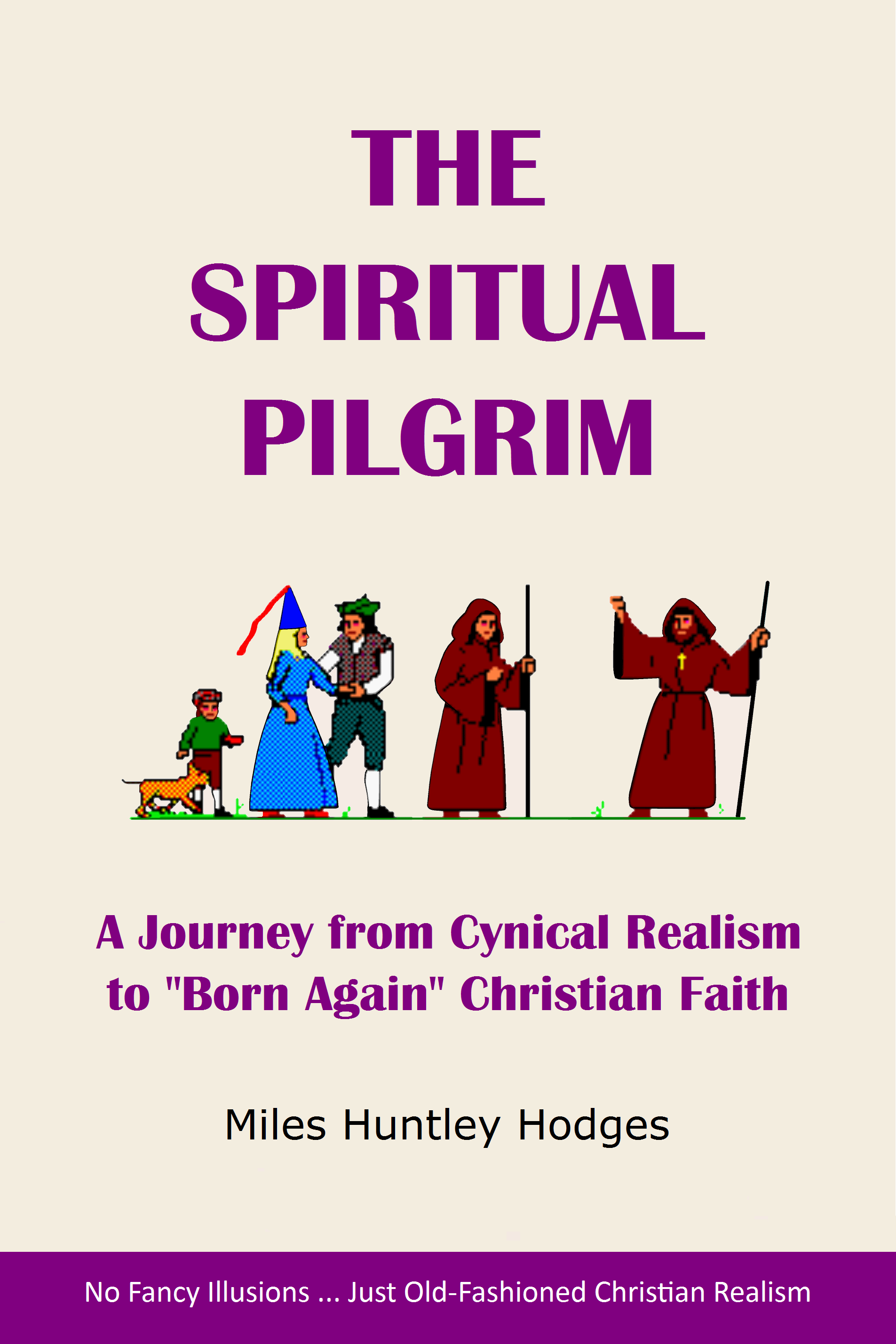
The Spiritual Pilgrim
A Journey from Cynical Realism
to "Born Again" Christian Faith
Introduction
1. Getting Started
2. The Professional
3. Crisis
4. The Way Back
5. The Princeton Days
6. A Tough Call to Garfield
7. The Interim Pastor
8. Teaching at The King's Academy
9. Our Kid's Place in the Hodges Dynamic
10. "Life Goes On
Excerpt 1. My father encounters the ugly world of political journalism (pages 36-38)
Excerpt 2. A Time of Decision (pages 100-103)
Excerpt 3. Course structuring [at TKA] (pages 219-220)
Excerpt 4. John (pages 240-242)
Family-based "Middle America" versus government-official based "Sophist America." I learned through a quite early and very broad exposure to a huge, surrounding world that my beloved America was built on the dynamics of a very sovereign family system ... one most unique in the world, even in history itself. Our American families have from the nation's founding four centuries ago lived by a "Truth" that has come from having to deal directly with the challenging world in front of them ... counseled in that encounter by a Biblical wisdom that has served countless generations most wisely. This political-spiritual Truth has provided America with a very Realist perspective on life ... and helped immensely bring this country to greatness.
But tragically, it is also a Truth that escapes entirely the understanding of those I term as "Sophists" or supposedly "wise ones," sitting at their desks in government offices, dreaming up utopian social schemes for the rest of American society ... as well as for foreign societies that they have succeeded in bringing under America's military grip. Most depressing to me, they are an increasingly powerful force in today's America ... and are determined to bring their universe under their own sovereign authority.
Thus the real challenge facing my America is which of these two patterns – that of Middle America or that of Sophist America – is my country going to follow in the years ahead. Concerned about this decision, I decided to take up the challenge of writing a story that makes it quite clear why that decision must be that of continuing to stay on the "Middle American" road!
My own confusing start. I grew up in a small town in Illinois and went off to Hanover College (Indiana) in September of 1959 to prepare for the Presbyterian ministry – something pretty generally expected of me, having been a very active leader during my high school years in the Presbyterian youth organization locally, regionally and state-wide (Illinois). But at Hanover I was deeply challenged by a professor who felt that the Bible would be strengthened by eliminating all the superstitious miracle stories – and then rattled in my religious faith even further when the same professor committed suicide the next semester.
Discovering a much larger world. Recoiling from the shock, I enrolled at the University of Illinois in the College of Architectural Engineering for the next fall semester. But beforehand, a summer in Europe (June to September 1960) with my family prior to that transfer changed completely the direction I would then take in life. There in Europe I had a whole new world that I previously knew absolutely nothing about now open up to me. It was startling. The American world I had grown up in had been so secure, so complete, so accomplished, so well put together that I had no idea that there were other valid – even very appealing – ways of going at life!
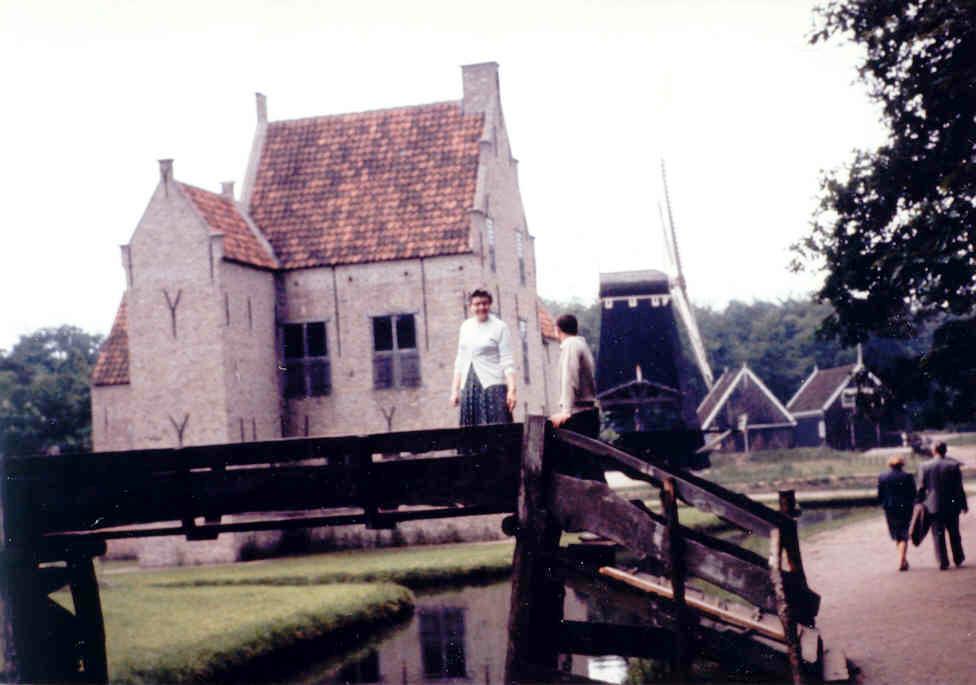
I now returned to the States hungry to know more about this larger world I had just encountered. Thus upon arrival at Champaign-Urbana that fall I immediately transferred out of the School of Engineering and into the College of Arts and Sciences, instead taking up the study of history and continuing my study of French (and starting up German as well) – to get myself ready to spend my junior year abroad in Europe (1961-1962).
Geneva: the junior year abroad. At first I was greatly disappointed when the Presbyterian program placed me at the University of Geneva, because I wanted to study in France, not Switzerland. But once in Geneva it took me no time to realize that I had been posted to the most international of all European cities – where numerous young and vibrant people from all around the world were easily befriended. Here I also had the opportunity not only to study international politics and economics in French (as well as courses on diplomacy in both English and French at the Graduate Institute of International Studies) but also to vastly improve my German by not only meeting my first best-friend ever, Adam, an English-speaking German, but also his German buddies whom I spent most of my free time with and who spoke virtually no English at all.
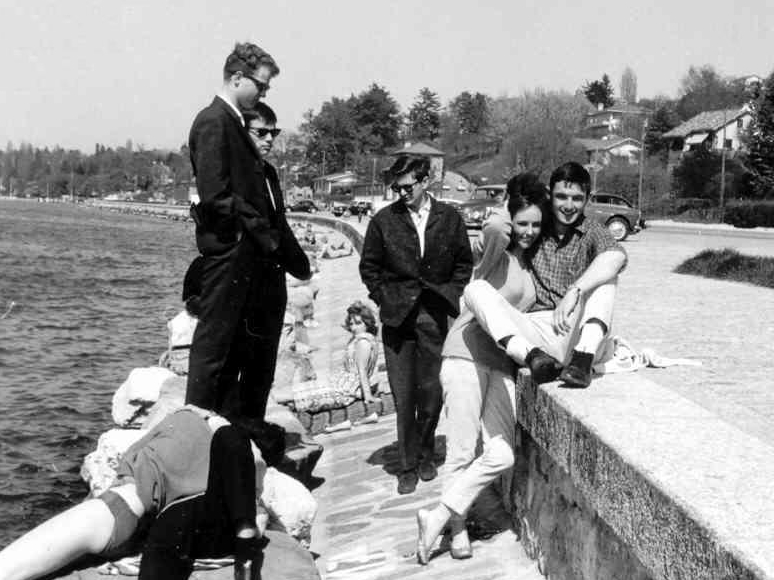
This taught me not only how to move back and forth from one language to another, but also how to quickly move from one cultural context to another, American, French and German perspectives on life varying rather widely. Also having suite-mates from Hungary and Bulgaria added to this perspective. And in March and April I took a Vespa scooter trip through Communist Eastern and Southeastern Europe all the way to Greece and Turkey and back through Italy, and got to encounter yet other worlds vastly different from my American world.
Also, that year in Geneva brought me face to face with the philosophy of Political Realism – or Realpolitik, the German term I like to use because it was the brilliant German political leader Bismarck that refined the concept of Realpolitik to a point of incredible purpose and effectiveness. Realpolitik would be something that would become foundational in how I understood and approached life from that point on.
At the end of that school year in Geneva, I returned to the States, a confirmed internationalist as well as a student of Realpolitik.
Graduate study and work in D.C. After completing my senior year at Illinois the following year (1963), I took up graduate study (political science) at Georgetown University. But I also engaged myself deeply (half-time work in various parts of the Washington bureaucracy) in an up-close study of the way that power actually worked in Washington. I also hung out with the "junior-dip-set" (sons and daughters of the foreign diplomats posted to Washington) but ended up with a law student at George Washington University, Courtney (that was a guy's name back then!), as my best friend – and a Texas girl, Martha, working for her Congressman, as my girlfriend.
Meanwhile, I wrote my master's thesis on the political dynamics of South Africa – at a time (the mid-1960s) when Africa was securing "national" independence everywhere. But on the basis of substantial research – and also on the basis of my sense of Realpolitik – I ended up predicting instead (to the shock of some) that political control of South Africa would remain in White hands for the foreseeable future, certainly at least for another full generation (which indeed turned out to be the case).
Entering fully into that larger world. Martha and I would marry a couple of years later and soon thereafter I would finish my course work and comprehensive exams for the Ph.D. – just in time to be able to "escape" from America (August of 1968). It had been terrifying to watch America (up close) go through the political and social horrors earlier that year – two assassinations of national leaders and rioting, sacking and torching of American cities (including D.C. where the destruction came within two blocks of our home on Dupont Circle).
It was such a disastrous end-product resulting from what was supposed to have been the beautifully conceived "Great Society." But again, based on my sense of Realpolitik, none of that was a matter of great surprise to me. Nonetheless it hurt deeply to watch America reap the whirlwind instead of the grand social harvest that the D.C. social planners had been expecting.
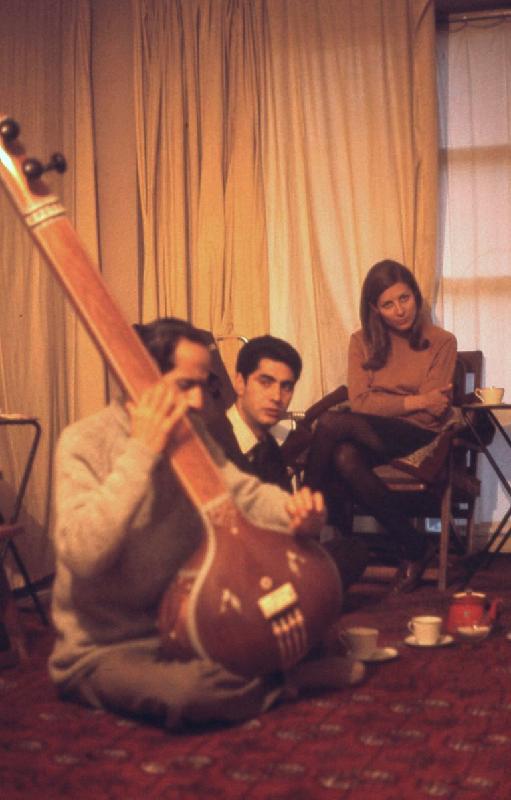
In late August, Martha and I gladly headed off to Europe, bought a VW and took off eastward from Brussels (where we expected eventually to settle), across Italy, Greece, Turkey, Iran, Afghanistan, Pakistan, India and Nepal (we actually flew to Nepal from India) – before heading back six months later. It was quite an adventure, not only seeing awesome sights, but meeting awesome people along the way (including major civic leaders of Afghanistan, who treated us to an American Thanksgiving dinner and who escorted us to a fashion show put on by the Afghan Queen!)
Brussels: doctoral research. Upon our return to Brussels I went to work for IBM-Belgium as a computer systems analyst (I had taken up the study of main-frame computing while in D.C.) and Martha got a job teaching at the NATO American school. Here I would also gain another set of best-friends, Victor (a Fleming from Halle) and Pierre and his wife Anne (Walloons from Liège). But I finally came to realize that my work at IBM left me no time to work on my dissertation: namely, how Belgian political leadership sought to manage national unity in the face of a deep social cleavage existing between the Dutch and French-speaking halves of the country.
But thankfully, Martha's teaching job put us in a position to be able to live comfortably off of her salary, so that we eventually decided that I could and should devote myself full-time to my Belgian research. In this too I picked up a new friend, Newt Gingrich, who was also there at the same library doing doctoral research. We spent many very long lunches together (along with another grad student, Bob Sanders, also from Tulane) discussing the confused state of the American nation ... and the general direction of the world.
Then finally in July of 1970, Martha and I returned to the States for me to write up my research.
Mobile: the young professor. The year after that (1971) we moved to Mobile, Alabama, for me to take up a position as an assistant professor in the political science department at the University of South Alabama (teaching world politics, international relations, American diplomacy, and regional area studies of Europe, the Middle East and East Asia) – and then soon thereafter as the founder and director of the university's international studies program.
And I took up the role as sponsor of a Model United Nations organization that brought in university students from all across the South, to play the role of diplomats from the widest array of nations – to give these students the understanding of not only the complexities of international diplomacy but also how "political reason" could take many forms, always sound very compelling, yet at the same time make it very hard to find the path to a workable truth. I wanted my students to be able to avoid falling into an easy social-intellectual bubble that awaited them as they stepped from their comfortable lives as teenagers into the adult world. I was hoping to make that transition easier for them than it had been for me – yet also as thrilling as it had been for me – in discovering that larger world!
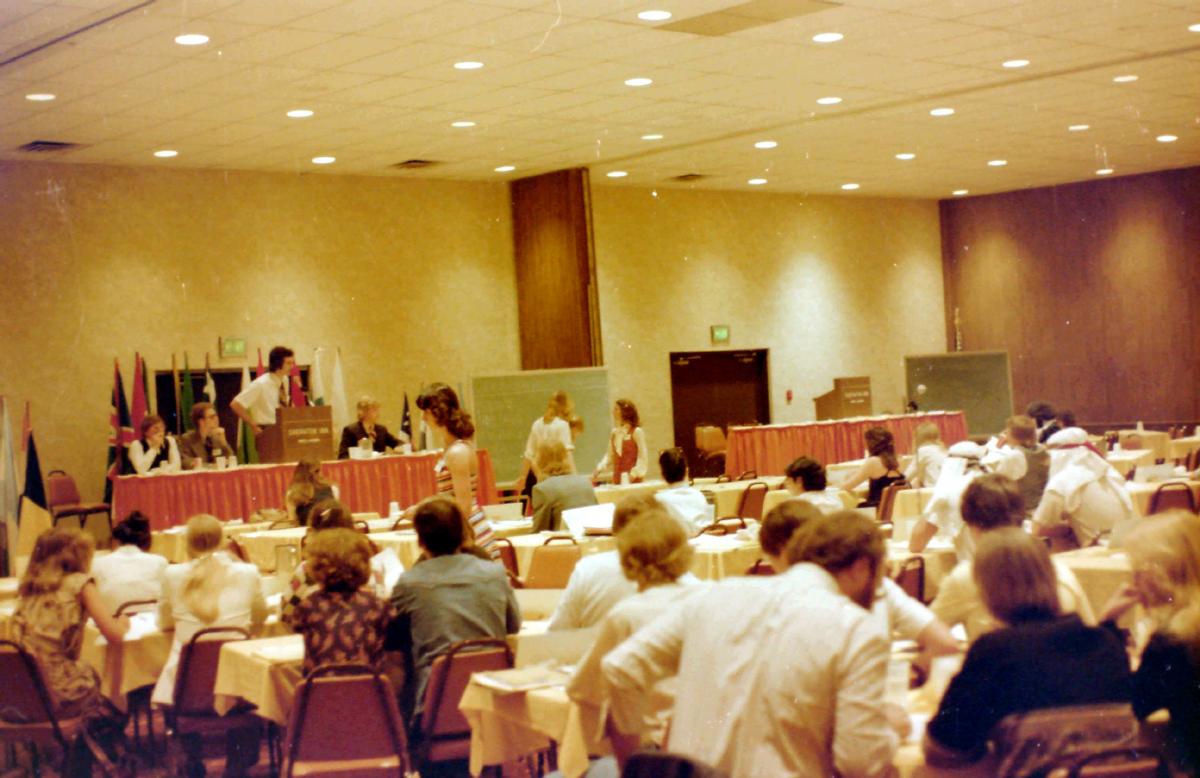
Also, as head of the international studies program, I worked hard to place my majors in internships in the actual occupational fields (finance, law, diplomacy, etc.) they were studying, so that their learning experience would not just come from a book!
Life outside the academic bubble. But beyond my classroom teaching, my natural instinct was to engage myself in the actual world of social dynamics itself. And although I remained active in academic life at the university and around the state of Alabama, Martha and I quickly left the academic neighborhood surrounding the university and moved downtown, where our closest friends were the young businessmen, bankers, lawyers, etc. that directed the life of the city of Mobile itself. Also I did contract work for an international organization seeking a diplomatic solution between the U.S. and France over the politics of town-twinning. And I soon expanded research operations as a consultant with banks and businesses in the American South on the matter of "political risk" (actually, mostly economics!) – that is, the risk involved in overseas lending and investment. I even had the occasion to offer a contract course on this subject held over the summer of 1983 at the London School of Economics.
At the same time, a business partner, Tony, and I became deeply involved in the renewing of historic homes in downtown Mobile, classic beauties that had fallen on hard times (my love of architecture still being a big matter to me). And I spent many weekends (for seven years) crewing for a Dutchman (Tony's father, whom actually I crewed for well before meeting Tony himself) during the region's rather constant run of sailing regattas. Then Martha and I finally purchased our own 30' sailboat and began cruising the Gulf Coast.
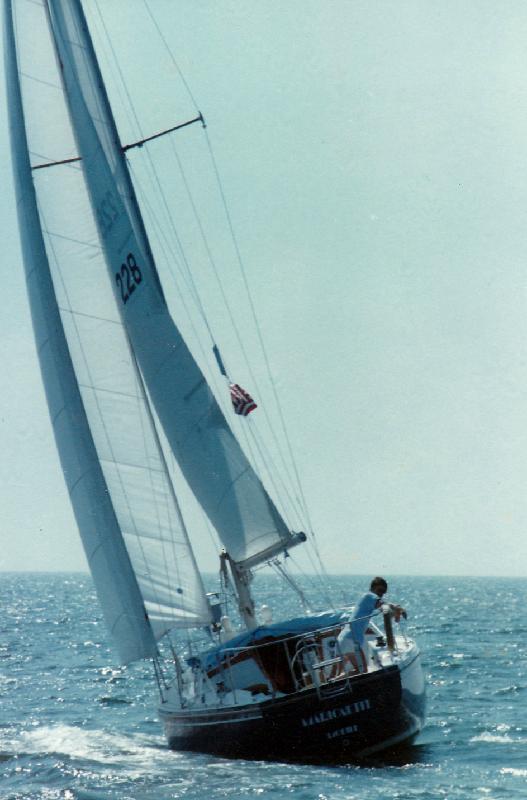
During this time I also took up the study of Arabic (to deepen my study of the world of Islam) – and town planning (in particular the political side of the issue), offering a graduate course at the university on the subject.
Observing "Watergate." Of course I was as interested in American domestic politics as I was in matters of foreign diplomacy – and like the rest of America, found myself following the Watergate scandal focused on the Nixon presidency. Very interestingly, my old friend Courtney had worked for Nixon as legal liaison between the Department of Defense and the White House, but had decided to come away from the D.C. political scene just prior to the 1972 election campaign. By doing so he avoided getting caught up himself in that scandal! Anyway, knowing Washington politics first-hand, I realized that I was looking at political interest rather than national law as being at the heart of the matter.
All of this made my natural cynicism as a political Realist even deeper and darker.
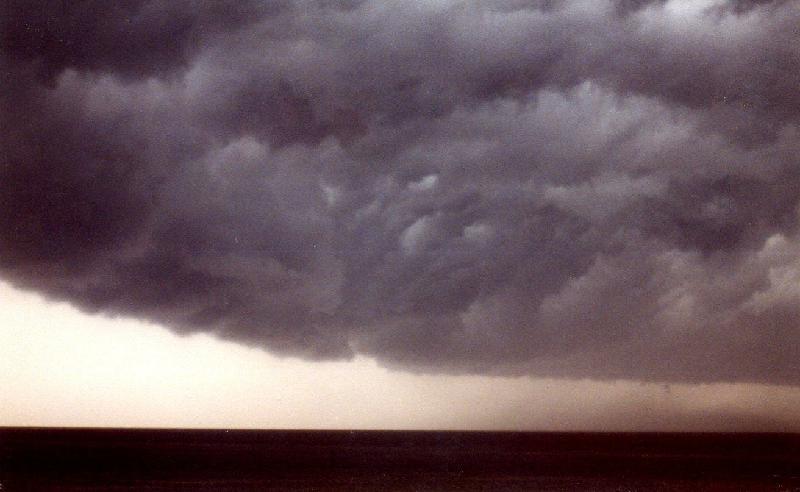
A photo given me by a friend, Stephanie ... which described perfectly the way I came to be feeling about life as the 1970s turned into the 1980s ... and my own seemingly well-constructed world came crashing down.
Martha and I (and in several instances also my friend Tony and his wife) were heavily invested in historic-home restoration (Martha and I were holding several properties ready for resale at the time) financed by constantly-renewable 90-day construction loans, now abruptly running almost overnight from 6 percent to the horrible rate of 22 percent in interest. Worse, purchasers quite understandably proved to be most unwilling to take on our finished work at a time that mortgages were also running at astronomically high rates – thanks to the monetarist policies (a radical tightening of the nation's money supply) of the Federal Reserve Chief Paul Volcker. Thus it was that we found ourselves being slowly driven towards the brink of bankruptcy.
Even a sailing trip Martha and I planned to take us from Mobile to the Bahamas and back (the summer of 1981) ended up aground in South Florida – and we had to make our way back to Mobile with yet another feature of our lives not going as planned, spinning me into ever-deeper depression. Even our beautiful home got broken into by thieves – repeatedly – until there was nothing of value left in our home to attract local thieves looking for easy drug money (we lived next to a public park where gangs were beginning to hang out).
Neither of us at that point looked to God or anything else other than our own well-cultivated abilities to direct our lives – abilities which however were now failing us terribly. This spun me into an existential darkness, one lasting month after month until it became year after year, a time period in which we could find no exit out of this darkness.
Then, strangely enough, in late 1982, someone came to us wanting to purchase our home ... and the sale was enough that we were able to buy our way out of deep indebtedness. We were free ... financially anyway. But the feeling of personal freedom was so powerful that it pushed me to want to be free in all areas of my life ... especially in the realm of the expectations of high performance that had followed me most of my life.
Thus it was that I woke up in early January of 1983, fully resolved to abandon my marriage and my teaching job. I simply wanted to escape to some place where there would be no high expectations, no great responsibilities that I was forced to live up to. At this point, accepting social "insignificance" seemed far easier than constantly grasping for success – only to see things repeatedly fail, no matter how much effort was put into the struggle. I was emotionally and spiritually exhausted.
This decision was a complete shock to everyone. As cruel as it was to Martha, she nonetheless agreed to the divorce (we had no children, making the matter actually quite simple) – and by the end of the same month the divorce was finalized, and she immediately moved back to Texas. But the university dean, when confronted with the decision, requested that I simply plan to take a year's leave of absence rather than just quitting
... which I agreed to – however quite convinced at the time that I was unlikely ever to return to my teaching duties.
A slow recovery. But that next year brought deep changes to my very emptied-out soul – but also to Martha, already returning (well ahead of me) to her earlier Christian faith, and who upon her return to Texas immediately met the man she would marry a year later. It would take me a bit longer to go down the Christian trail than was the case for Martha.
But others, out of a deep concern for the darkness that hung over me, began to invite me down bits and pieces of that Christian path. And indeed, by those same bits and pieces, I began to take deeper note of the very different journey that these dear souls so easily embraced – one not particularly directed towards social status and material success.
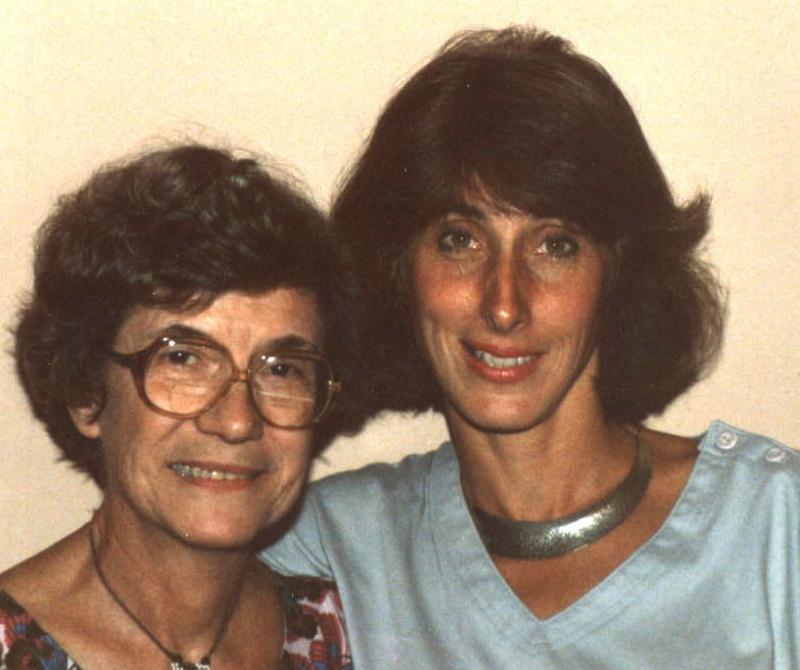
These are two people who were very important spiritual guides for me at that very critical time. It was Martelle (on the left) who, step by step, brought me back to church (Presbyterian). On the right is Stephanie (charismatic Catholic) ... who most insightfully gave me the photo of the storm seen in the previous section ... and who told me that she and her husband were praying for me. She would also – at one point early in this new journey I now found myself on – inform me that God had shown her that I would become a minister of his gospel. This seemed so absurdly unlikely at that point that I tried not to laugh at her totally ridiculous "prophecy." She was so sweet ... but so misinformed! ...... Oh really?!!!
Nonetheless ... I would keep that picture of the storm she gave me on my desk for years.
In the meantime I spent that off-year working quietly for a friend simply as an import-export clerk, happy to be fairly unnoticed in his back office. However, before the year was out I found myself enjoying enormously the opportunity to computerize his entire business operation!
Central America. I did indeed return the next year to the University (the fall of 1984), although now life was conducted much more simply – except for the project I began to put together to bring various authorities (Kissinger and Carter, among others, quickly accepting my invitation) to try to work out some kind of negotiated settlement or truce among the warring parties that were tearing Central America apart. I added Spanish to my repertoire of languages and the next summer (1985) headed to Central America to meet with the local authorities that I wanted to involve in these discussions.
But most importantly, the Archbishop of El Salvador assigned a young priest to help me with the interviews in his country – and soon we two found ourselves relating to each other about our lives and the journeys we had made thus far. The young priest, Father José Maria, was the last man standing in his family – his father, uncles, cousins and a brother-in-law killed in this on-going civil war, some by the guerrilla fighters of the political "Left" and some by the regular army soldiers of the political "Right" ... and some they were not sure who was responsible. But José was a person of amazing peace and awesome love, which struck me deeply when I accompanied him to a mountain village accessible only by foot, to deliver communion and a sermon. In José, I saw a living Jesus when the villagers came out to greet the young priest, the power of the love that flowed back and forth between José and the villagers standing in such sharp contrast to the darkness (the same kind of darkness that I was well familiar with) that otherwise hung over El Salvador.
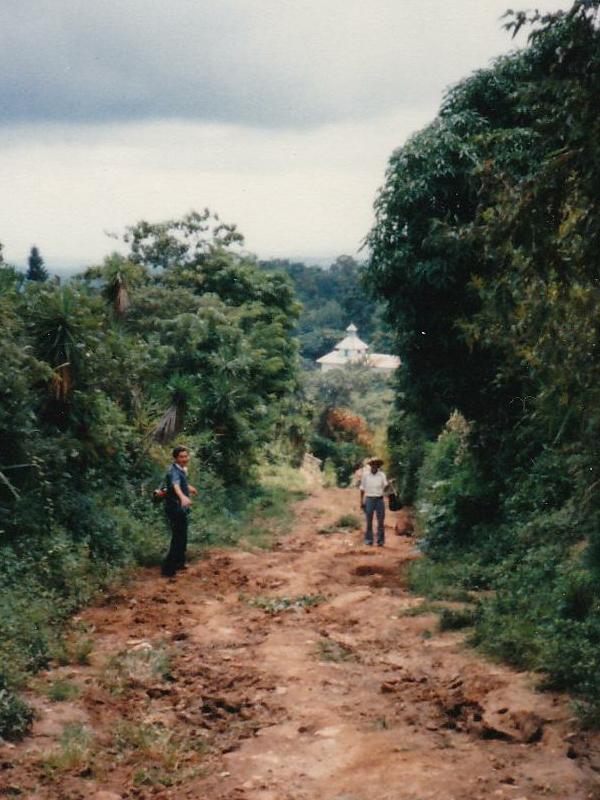
Ultimately I had other Central American countries to visit, but cut my last week in Honduras short to return to El Salvador, to meet again with José before heading back to the U.S. A deep friendship was thus formed (I would visit El Salvador two more times in the years ahead).
Finding Jesus in others. At the same time I had experienced something of a similar nature in finding myself drawn to my assigned spiritual director while undergoing a Cursillo Christian renewal conference – an ex-alcoholic Episcopal priest (no more sipping even the communion wine) of rather humble looks, who regularly served as a minister to the throw-away kids who lived under the boardwalks of Pensacola Beach. He too gave off a Jesus spirit simply in the way he so easily and profoundly connected with the world around him ... including me as well.
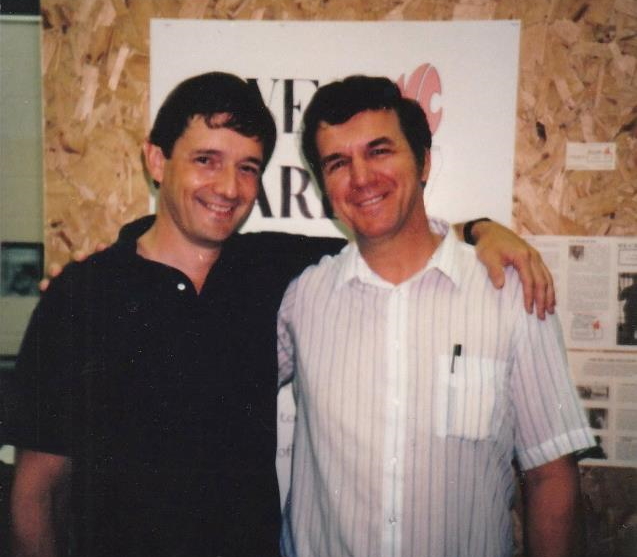
And likewise I saw Jesus in a former plumber, Emmett (dyslexic and attaining only a 6th grade education) who ran the rather charismatic operations of an inner-city / prison and jail ministry – also a person of that same bright and caring spirit as he made his way through the darker world of the homeless and the imprisoned. And thus it was that I became drawn into that world, looking to find that same Jesus in others, regardless of their social rank or situation, wherever I could.
Facing failure more easily. Two things developed for me on my return from Central America. One was that the university president confronted me with the news that I was going to have to call off the conference – because just the expense alone of providing the necessary security for this peace conference was way beyond the university's financial capacity. It was agreed that the event could be cut down simply to a visit by Kissinger, but no more than that.
But what was surprising to me was my own reaction to the news. Ordinarily, after working so hard on the project, I would have been furious at such a setback and would have worked hard to find ways to get around this resistance. But instead, I simply took the matter as it stood, and decided to move on to other things. Anyway, at that point, the quest for Christ seemed to be more important than the quest for success in carrying off a major international conference. But my own calm reaction spoke volumes to me about a new world that was opening up not only around me but in me!
Street and prison/jail ministry. The other thing was that with the start of school again that fall I could no longer attend the daily gatherings at the street ministry. And the director refused to work in the evenings when I was available, because that was family time (and rightly so!). So I decided to head out and do some jail ministry on my own. That happened only once – when I immediately decided that I much preferred working as part of a team, and invited members of the Presbyterian Church I was now attending (and even leading a Sunday School class in gospel evangelism!) to join me in my jail and street ministry. Within short order I had a huge team drawn from numerous churches (from Episcopal to independent evangelical or charismatic churches) to accompany me in this ministry.
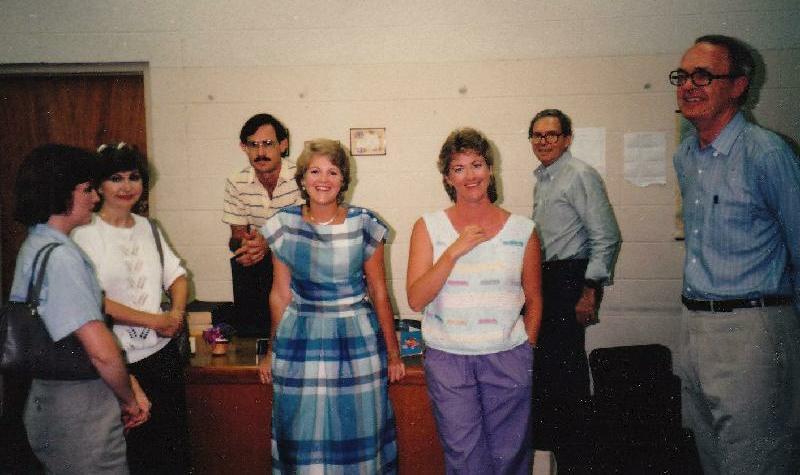
But the best part of the whole project was my discovery that Jesus could be found at any point, anytime, anywhere, and by anybody, whenever this spirit of spreading the light of Christ was to be found. It was all in the secret of human relationship, not in some accomplished project or program (such as had always directed my life previously). It was found just simply in showing up for others and letting some kind of natural bond, arising from some kind of true interest in the life of others, take prayerful command of the situation. It was awesome ... just letting the Spirit of God take command of these events.
Seminary study? But all this presented a major problem: I was being drawn between two worlds, both of which I now loved very much: teaching and ministering. One night I was awakened by a very compelling vision, one which clearly brought me to the decision that it would be the ministerial route I would continue to take. But what that exactly meant was not clear. I supposed that it would simply be a continuation of my Mobile ministry. But at the urging and support of others, I applied to and was accepted at several seminaries ... and finally took the Princeton route when I discovered that the pastor of the Presbyterian Church had actively opposed my application to Princeton, because he had grown bitter about my hanging out with charismatics who, as he saw things, were "church destroyers" (there had been an ugly church split at a nearby Presbyterian church over this issue). But I took his failure in his considerable effort to block me as God's intervention – and thus a sign as to what God's choice in this matter happened to be. As things ultimately worked out, this proved to be a correct reading on my part.
Closing out things in Mobile. But there remained one major problem: what to do about the house that I had bought and fixed up. Renting it while I was away was likely to be a major distraction ... and selling it would be tough because the housing market at the time was quite depressed ... as the father of a young lady I had been dating reminded me one Sunday when I was at their home for Sunday dinner.
But most astonishingly (of course!) just as I was back at my home unlocking the back door, I heard the phone ringing inside ... and was quick to answer it. It was a realtor I had used frequently (in fact she was the one who had introduced me to this very house) ... and she was wondering what my plans were for the house (she was well aware that I would soon be heading off for seminary). She asked me to get back to her with a price as soon as possible. Obviously she wanted the listing – which was actually quite fine with me. I basically set the price for what I had paid for the house when I bought it a couple of years earlier, plus an additional amount based simply on the cost of the materials I had used to upgrade the place ... and called her back with the price I was looking for. She told me that this was fine ... and that she wanted to come by the very next day because she had a purchaser in mind! Wow! That was fast.
And indeed she and another person came by the next day, looked around, and then left. And in short order I got a phone call from her ... and yes I had a purchaser of the house: her! She always loved the house – and my work in upgrading it – and she was not only willing to go my asking price – (with no realtor's fee ... in fact it never even had time to be listed!) she wanted to add $1,000 more to the sale ... as a gift towards my seminary costs! Double wow!
But there remained one problem: she needed the house rather immediately ... by the end of the month, in fact, because she had just sold her house and needed to move within the next couple of weeks. Wow ... that would put me out of the house by the end of March ... and I was not scheduled to head off to seminary until June, to start summer Hebrew studies.
That Thursday evening I was explaining my situation to my street ministry team (Thursdays we gathered simply for prayer) ... when Bill (in fact the first of the people to have earlier joined my team) told me that he had just had the strangest thought earlier that week ... that I should move in with him. But he realized how stupid the idea was, because I had my own house. Now he understood why that thought had come to him: I could move myself and my furniture into his place (it was a huge place – with very little furniture, typical of a bachelor's abode!) and treat it as my home, a place to come back to when I had school vacations, etc.
What could I say! Once again, God had taken care of all the details necessary for me to be able to answer the call he had placed on my life! Awesome!
And indeed, this merely deepened the friendship that Bill and I developed, one that reigns strongly even down to today!
Anyway with that (plus a surprise goodbye party shortly before I left), I was ready to head off to my new life in New Jersey.
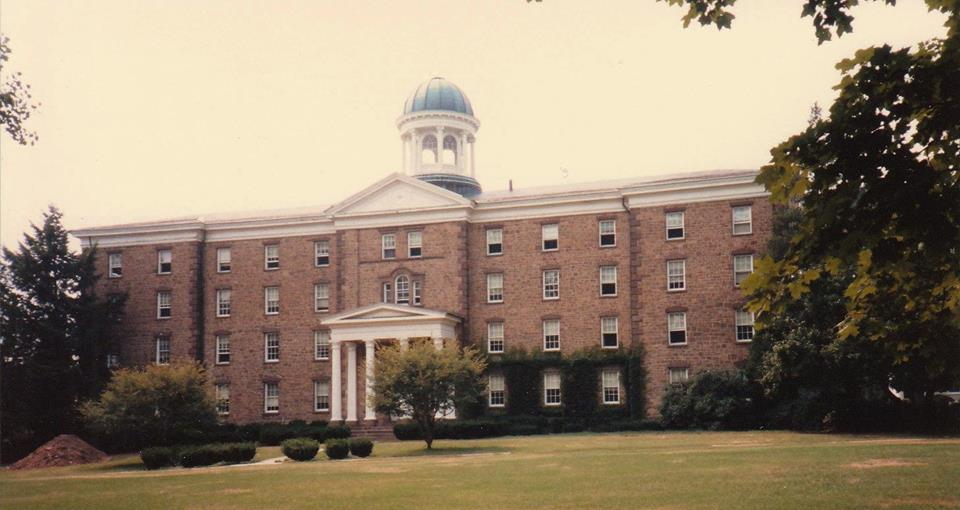
Princeton. I arrived in Princeton in June (1986) to begin that intensive (very intensive!) summer Hebrew, just to get an early jump on things (Greek and Hebrew were academic requirements for the Presbyterian ministry). But after two weeks of very little sleep, I decided that I needed to keep myself from getting drowned in this huge academic tsunami. I took myself to the placement office and found a perfect summer internship (20 hours a week) in nearby Trenton.
When I told my equally-stressed classmates my decision, they thought I had lost my mind. Nobody was getting any sleep ... and spending that much time off campus surely would destroy my academic work (actually, by God's grace alone, I ended up with A's for both summer sessions!).
But with this Trenton involvement, I not only kept my hands on active ministry (and my mind from going crazy!), I met a number of practicing Christians, including the pastor-scholar Scoti (Hughes Oliphant Old!), who would become a very close friend (I always had Sunday dinners with him and his wife over the next two years). And I also became close friends with the pastor of the Trenton Church where I was interning, John Nelson. And (to the great distress of his wife!) I even dragged John off to El Salvador at the end of the summer ... to witness first-hand Christianity in a war zone.
A crisis at the Crisis Ministry! When we returned to the States, John and I were greeted with the news that the police had shut down an aid-to-the-homeless program (the "Crisis Ministry") run out of a storefront behind his church and owned by the church, but directed by an assistant pastor from the very prestigious Nassau Presbyterian church in Princeton (the university itself was built around it) and also supported by an equally prestigious Episcopal church, also in Princeton. It was a huge embarrassment to all three churches, but especially to the Nassau church, because their "street cool" assistant pastor, supposedly directing the Crisis Ministry, had been supplementing his income by running drugs out of the ministry.
At an emergency meeting held over the matter, I made the mistake of speaking up about what I knew to be true from my own experience with street ministry. Having well-meaning Princeton volunteers conducting a back-office program of finding rentals and jobs for the homeless was a program destined to failure in the first place. I was quite aware that street guys were not likely to remember to show up on a regular basis for their new jobs or remember to pay their rent or utilities – because they were in fact street guys, not budding candidates for middle-class American life. Nearly all of them had grown up without fathers, and had no idea of how to "do adult." That's why they were on the streets in the first place.
I did not bother to add the fact that I had avoided that particular part of the Trenton church's multi-ministry (food, clothing, recovery group programs, etc., run from different buildings along that back street) because of a dark spirit that seemed to hover over the front-office of that ministry, where the guys just hung out. There was no particular "Christian" character to what was going on there – a spiritually dangerous shortcoming in such a dark setting (thus I was in no ways surprised as to what had developed with their street ministry).
Needless to say, I soon found out from John that the Nassau pastor (who was a close friend of John's) disliked intensely my "uppity" observations. But I was also not surprised at that because by this time I had become well aware of the fact that not only professors but very often pastors were quite capable of secluding themselves inside polite "bubbles" – where it might more easily appear that the world was under better human control. The only problem with this (which even the Pharisees never seemed to figure out) was that life outside the bubble, where Jesus himself had chosen to operate, didn't function according to well-designed human plans!
Here in the streets of Trenton I encountered again another example of "reality versus the bubble."
Adding street ministry to my Princeton days. That first fall semester of 1986, I supplemented my Princeton study and Trenton internship by also serving as a volunteer chaplain at the Trenton State Prison – assigned "One-Left," the jail within the prison where they placed misbehaving prisoners for a week or two just to get them to cool down. I simply spent my time in prayer with these guys ... Black Muslims mostly. And I was entirely surprised to get Christmas cards from some of my guys when Christmas season rolled around! Just how Muslim were they really?
But I would not be able to keep up this ministry – because I had become fully involved in a new street ministry as the focus of my work at the Trenton church.
It had all started that October when I noticed the street guys just hanging around the church, put back on the streets in the early morning after spending the night at the Rescue Mission – streets that were getting colder and colder with the development of the fall weather. Thus I put the idea forward at a gathering of local Presbyterian pastors (mostly my age and just friends at this point) of opening the basement of the Trenton church for breakfast and Bible-study, just to help give the guys something of a better start for the day. One of the pastors, who supposed himself to be very street-wise, told me that the moment I opened the Bible, these street guys would be a streak out the door. But I insisted that I would do it no other way. Anyway, John gave me the approval to go ahead with this idea. And Scoti even said he would join me to get things up and running. And so it was that I put the word out on the street of what I was going to be doing.
At first only a handful of guys showed up. And no, they did not head for the door when the matter of the Bible came up, but were in fact quite willing to talk about how such matters touched on their own lives. For them to find someone willing to listen to their stories was quite unprecedented. Otherwise they were just "cases" in the files of one or another government welfare program – as even it had been with the ministry that the police had just shut down. Soon others joined them, until we had about two dozen guys who would show up each morning for coffee (with lots of sugar!), peanut butter and jelly sandwiches (lots of them, which they helped prepare) and Bible "study" – and wide-ranging discussion.
I returned "home" to Mobile (and my friend Bill's place) for Christmas vacation. But upon returning to Princeton after Christmas, I learned that a problem had developed at the Trenton church during my absence and that I would have to move my ministry out of the church – possibly to the same building that had previously housed the Crisis Ministry. This was exactly what I did. And thus the "Hanover Street Ministry" was born. The police watched us closely for a while – but soon surmised that this was a very different operation than the previous one.
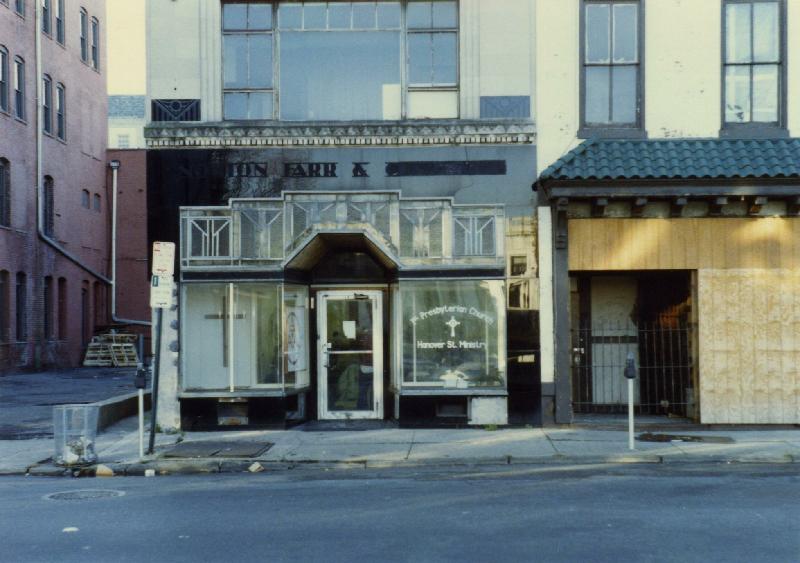
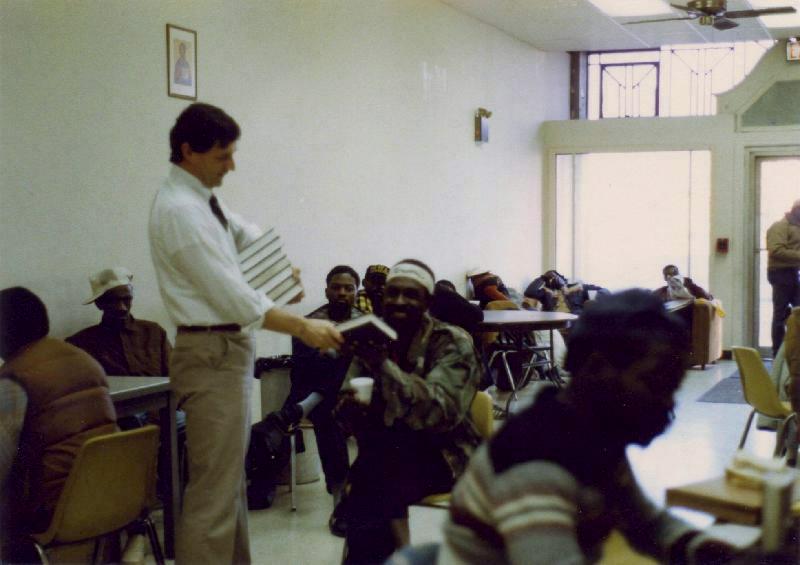
And indeed it was. Soon the ministry began to expand in operation, not just with breakfast items but also Bible reading (those that could read) and prayer, lots of prayer. Within a fairly short order, we had the place packed. In essence I now had my own congregation of a hundred or more street guys. I soon got a couple of guys from the seminary to help out, most notably Tom, who would work with me until he graduated the year ahead of me and move on to a pastoral call elsewhere. And a local Black church linked up with the ministry, bringing in quite lavish breakfasts and some top preaching one Sunday a month. And thus it was that the Hanover Street Ministry took up a well-founded place in the life of the local community.
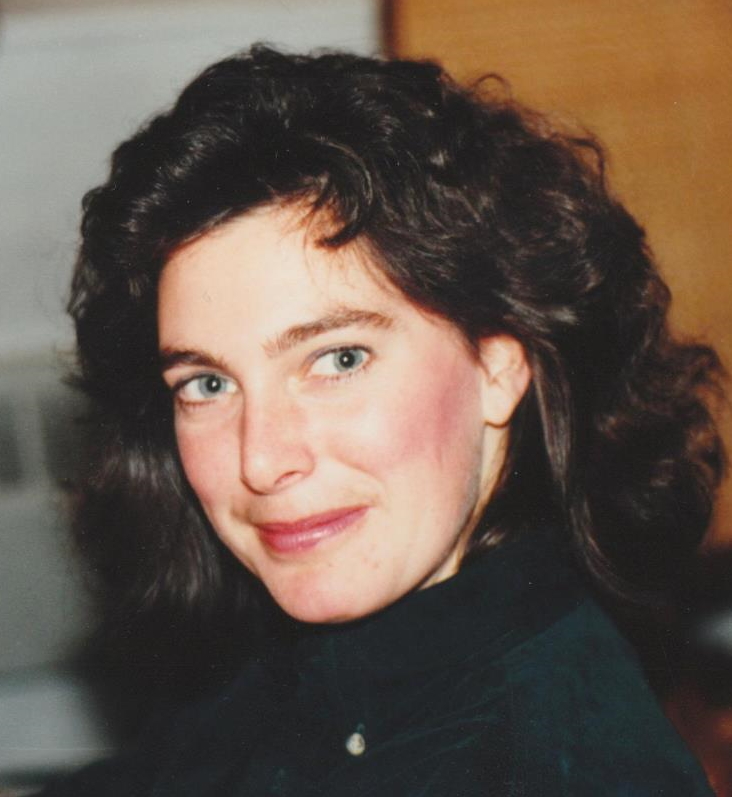 Kathleen. And thus it was also that eventually (August of 1987) I met Kathleen. I had been invited by a friend, Michael, to bring my guys out to a Full Gospel Businessmen's Breakfast held monthly at a restaurant just outside of Trenton – because one of the officers had felt that God was about to do a mighty work of revival, starting with the homeless. Actually, what God seemingly had intended instead in all this was for me to meet Kathleen, who with her mother and friends also attended the Breakfasts. Michael actually had been assigned a prayer request from Kathleen for God to bring a Christian man into her life – and (he later confessed) I kept coming to mind as he prayed over her prayer card. He wanted me to meet her, and pointed her out as she passed by that day of the gathering. I was immediately sold on that idea! Then as the speaker finally got into his message, I found myself writing my name on a card that I intended to pass on to her at the end of the meeting – when I saw her get up from her table, look around, and head my way. She sat down right next to me! And the rest was absolutely easy. I invited her to come to the ministry to see what went on there – not really thinking straight, for where I worked was a very dangerous place for any young woman to come on her own.
Kathleen. And thus it was also that eventually (August of 1987) I met Kathleen. I had been invited by a friend, Michael, to bring my guys out to a Full Gospel Businessmen's Breakfast held monthly at a restaurant just outside of Trenton – because one of the officers had felt that God was about to do a mighty work of revival, starting with the homeless. Actually, what God seemingly had intended instead in all this was for me to meet Kathleen, who with her mother and friends also attended the Breakfasts. Michael actually had been assigned a prayer request from Kathleen for God to bring a Christian man into her life – and (he later confessed) I kept coming to mind as he prayed over her prayer card. He wanted me to meet her, and pointed her out as she passed by that day of the gathering. I was immediately sold on that idea! Then as the speaker finally got into his message, I found myself writing my name on a card that I intended to pass on to her at the end of the meeting – when I saw her get up from her table, look around, and head my way. She sat down right next to me! And the rest was absolutely easy. I invited her to come to the ministry to see what went on there – not really thinking straight, for where I worked was a very dangerous place for any young woman to come on her own.
Anyway, the summer was about over and I rather immediately had to get back to Mobile for a bit before the fall semester started up, and so I didn't see her for a while. But when I returned, Michael told me he had talked to Kathleen, and she informed him that she sat next to me to escape the air conditioning she was sitting under, and the only available seating at the time (my street guys tended to wander about rather than remain seated for the talk!) was next to me. My only reaction to the teasing was to thank God for air conditioning! But soon another Breakfast was coming up and again I was to bring my guys out to the restaurant with me. And there she was, waiting for me – to explain that there was no seating at her table, but that we could talk afterwards. And sure enough, she agreed to be picked up the next day to come join me at the ministry and church afterwards, plus have lunch together before she had to head off to work at the McCarter Theater in Princeton. And thus it was, with absolutely no effort, the woman who would become my wife the next year (1988) came into my life.
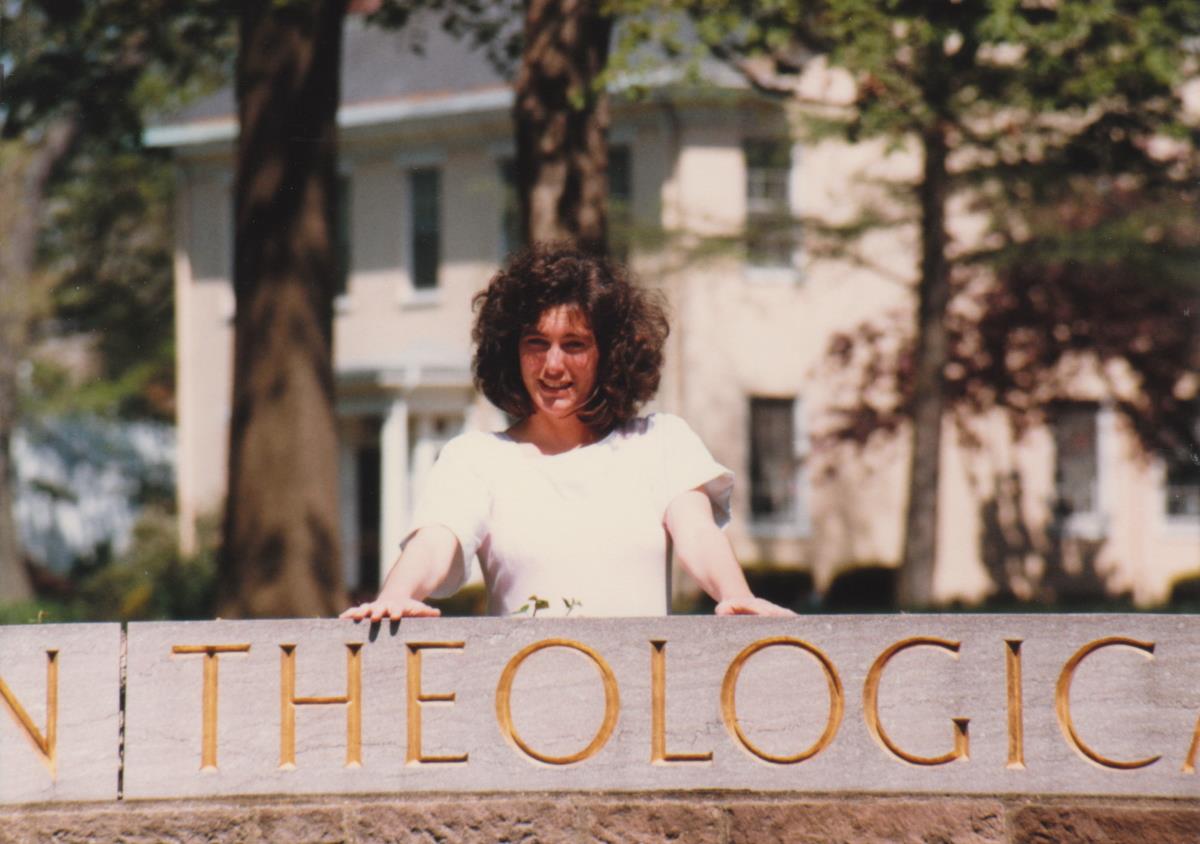
God's directing this key matter in my life was awesome!
Marriage – and South Africa. For reasons never clear to me, the man who headed up an international program at the seminary took it upon himself to offer me a tremendous scholarship, one that would allow me to conduct my senior thesis research the upcoming summer, no matter where or how much (within reason) it cost. At this point an old interest in South Africa had been strongly on my mind – as I suspected that something very peculiar was going on in that country, "peculiar" in that it in no ways conformed to what Americans typically understood as standard political dynamics. I sensed that things were about to shift politically in that country, but not along lines such as revolution or even a racial holocaust as many indeed were expecting. As it turned out not only was my airfare to and from South Africa to be paid for but all living arrangements would be provided for me during a two-month stay in the country, allowing me to do my typical political interviewing (a procedure I had used extensively since my days in Belgium and in my political risk studies) in order to come to my own observations about what was unfolding in South Africa.
The only problem was that Kathleen and I had already become engaged, and had planned to get married in late June. But I was now scheduled to leave for South Africa at the beginning of July. Should we wait until September? But finally we stayed with the June date. We could get participation from John as pastor, Tom as assistant, and Scoti as best man only in June ... as September would bring scheduling problems.
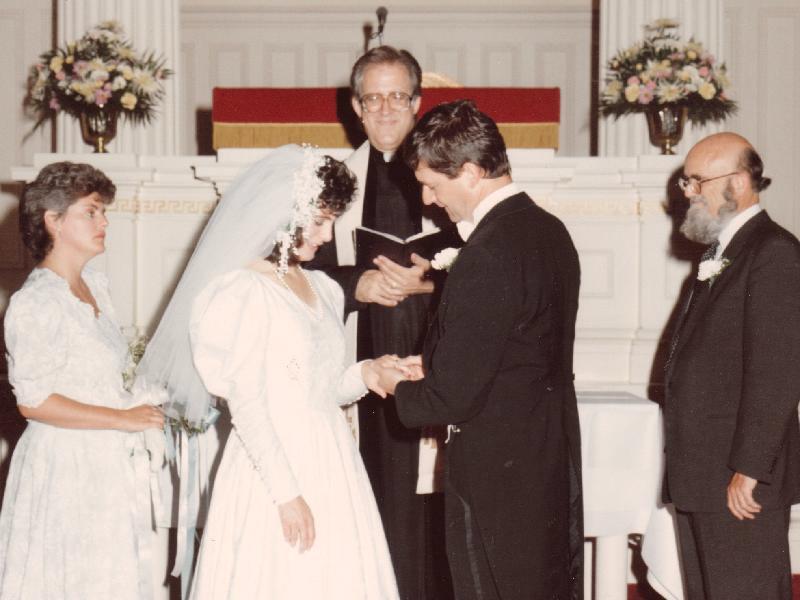
We both had households of furniture and thus asked for no wedding gifts, but instead contributions to help fund the Hanover Street ministry. And indeed, people were generous. But some of our friends proposed the idea of an additional fund to help purchase air tickets ($1400 at the time) for Kathleen to be able to join me in South Africa. Once in South Africa, she could easily then just join me in my arranged accommodations. But she had no passport, and a visa for South Africa was well-known to take months, even as long as a year. Acquiring the passport took no time. But then, by the grace of God, a South African consul that I had become friends with, Sommie, agreed to walk the visa process through himself. So Kathleen could join me in my second month in South Africa. And wouldn't you know, the funding that the friends assembled came exactly to the price of the airline ticket! God was clearly playing this out for us!
Once in South Africa it became clear to me how much ideological inclinations (or just plain ignorance) on the part of Americans had created in the American mind a picture that was in no ways related to the reality of South Africa. First of all, the level of racial segregation seemed no worse in South Africa than it was in most American cities. Blacks and Whites could be found together in shops and restaurants, in the streets ... and most importantly for me at a major Christian mission station (Kwasizabantu) where pastors and elders of all of South Africa's races and ethnic groups gathered from all around the country to worship and pray for the country. I stayed there a week just trying to get a picture of what was actually going on among them ... and then returned to the mission for another long stay with Kathleen with me on this second visit. And we stayed with English-speaking South Africans in Pretoria and Cape Town as well as Afrikaners (Dutch-speakers) in both places, plus a Christian evangelist in the Indian community of Durban (in Natal Province where Gandhi had practiced law for 21 years before heading off to India to "save" the latter country from the British!). And we met with Black pastors and local leaders along the way. And I met with voices (such as officials of the South African Council of Churches - the SACC) that had made it their business to go abroad selling the worst picture of South Africa possible, knowing that this was exactly what the world outside of South Africa wanted and expected to hear (and was thus quite willing to contribute lavishly financially to the cause of "liberation"). But hey, politics is politics.
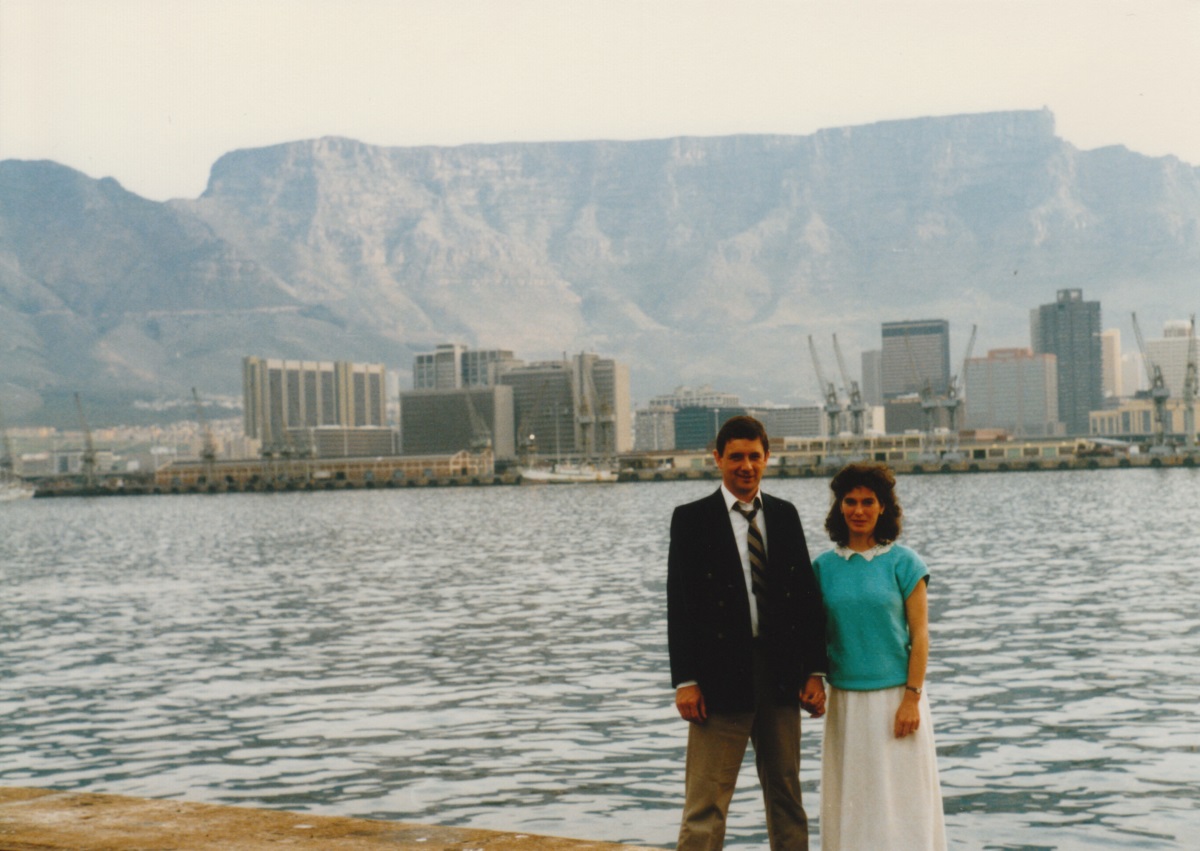
What we found in South Africa was an amazing hunger for racial reconciliation coming from all directions, a mood conveniently overlooked outside of the country by Liberal Westerners who preferred to hold an anti-White racist bias that seemed to gratify their sense of moral superiority – in short, sort of a moral bubble that people loved to place themselves in, but one which ultimately served no one very well, and often quite tragically.
In any case I was impressed by the moral-spiritual energy going into this effort to move South Africa away from the racial tensions that others were expecting (probably even hoping) would tear the country apart. Thus when I returned to the States, I set myself to the task of writing about "Racial Reconciliation in South Africa."
Allan Boesak. One incident stands out strongly in my memory of that last year: Allan Boesak's evening appearance at the Nassau Presbyterian church in Princeton in October. He was out of the country when I was in Cape Town (as was also Archbishop Tutu) so I hadn't had the opportunity to interview him in South Africa. But I was very curious about what he saw in the numerous changes taking place in his country. So I was looking forward to this event.
Actually hundreds of people turned out and the church was packed. I recognized a lot of people from the seminary – most of them from among what I styled as the "peace and social justice" group.
Unfortunately, as the talk proceeded, I quickly recognized that we were simply going to be treated that evening to a repetition of the SACC "true story" – the unbearable pain of life in South Africa and the evil dimensions of those who governed the country – a litany which I (and I guess most everybody else there) knew by heart. But then I guess that that was what most people had come for. I was disappointed – for the talk provided no real insight into what SACC leadership was thinking concerning what was presently unfolding within the country.
Then we went to a question and answer period – and as I was pondering whether or not to disturb the evening's peace and social justice ritual with a question about his views on some of the positive recent developments – a man stood up in the balcony to pose just that question. He announced himself as a minister who had returned from the country after a long stay there and had noticed a number of hopeful developments going on within the country – and would Rev. Boesak be willing to elaborate for the benefit of us all about those.
Whew! I was glad I was not the poor soul who posed that question, for Boesak lit into him as if he were some kind of demented soul who had somehow gotten himself ensnared by the propaganda of the White racist government – for "obviously" he knew nothing about what was really going on in South Africa. There was "nothing" in the unfolding situation within South Africa – past, present or future – that pointed to hope. The only hope was for outside help in crushing the fascism that gripped the country.
The crowd went wild! These Princetonian peace and social justice "sophisticates" hooted, they hollered, they set up a rhythmic stamping of their feet in wild support, as if they were in a basketball gymnasium rather than a church. This went on and on – with Boesak beaming, and with the people finally rising to their feet in wild approval. After several minutes of this, Kathleen and I quietly made our way up the aisle through the frenzy and out the door into a calmer and more refreshing evening.
The whole thing reminded me of how Hitler had so easily mesmerized the masses with his inflammatory (but otherwise rather banal) rhetoric. He gave the masses what they wanted to hear. And that became for him his definition of "Truth" (which even he himself finally got swallowed up in).
Unpleasant drama arising from my senior thesis. I had chosen a Christian-ethics professor at the seminary to serve as my thesis supervisor, a young man who confessed that he really did not know much about South Africa. He was more into "Liberation Theology" (I called it, "Jesus with a submachine gun") focused on events going on in Central America. And although he did not like my thesis title, he admitted that he enjoyed the first 100 pages that I had submitted, a detailed section simply outlining the cultural-political backgrounds of the various racial groups making up the country. Then I had no other conversation with him before submitting towards the end of the semester the last part of what turned out to be a 260-page work. But eventually we found ourselves coming up on graduation day, and I still hadn't heard back from him about his final evaluation of my thesis.
Finally on the Friday before the graduation day on the following Tuesday I got a call from the Registrar. She had finally received his grade: an "F!" The kind soul that she was, on her own initiative she had already shifted things around so that my major was no longer in the area of Christian ethics but instead was now Biblical studies. I had taken multitudes of extra courses (mostly Biblical), and in fact in terms of course load, I could have graduated at the end of two years – except that Princeton had a 3-year residency requirement no matter how many credits a student had earned. And the senior thesis was merely optional and thus my F would not block my graduation. But the professor himself did not know that I had all these extra courses, and clearly his intention was that in failing my senior thesis (worth 8 credit-hours) he would be keeping me from graduating. Was he ever surprised to see me at commencement the next Tuesday!
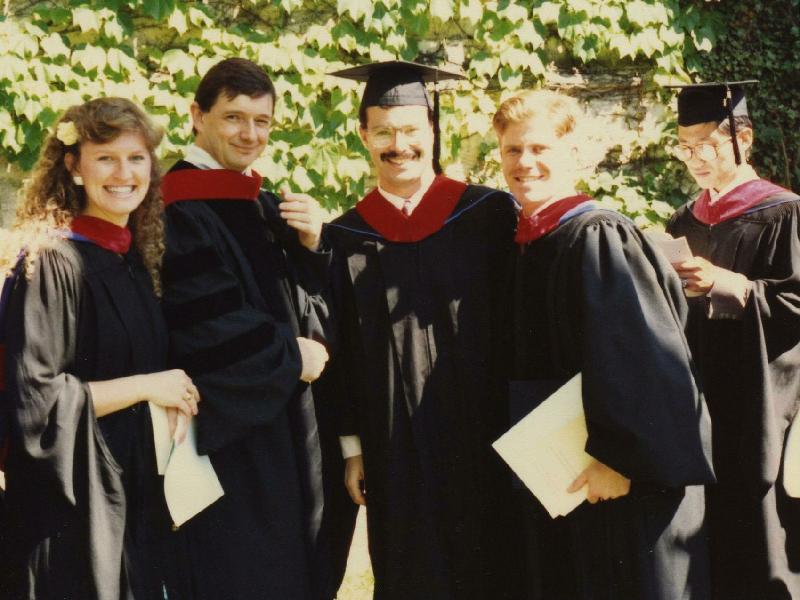
But he had nothing to say to me, he was so angry at my thesis. In finally getting to see his annotated copy, it was clear that he was accusing me of having been taken in by South African "Fascism," so much so that he was totally convinced that I was blind to the reality of the deep racial oppression going on in that country ... and the fact that only violent revolution could cleanse that country of its racial evil. Wow! For someone who knew absolutely nothing first-hand about South Africa, he was equally absolutely certain that he had the "Truth" of South Africa all figured out.
"Reason" and "Truth" are not the same thing. But I had run into this kind of "Reasoning" before – rather frequently, sadly to say. I had learned all the way back in my days studying and working in D.C. that reason and truth were not the same things. I well understood how lawyers argued their cases, wielding "Reason" like a sword. Then juries were forced somehow to find the truth in all the reasoning that competing lawyers threw at them in these court cases. How the juries actually found truth in the face of clever but opposing legal reasoning was always a mystery to me. Everyone knew that the cleverer the lawyer, the better the outcome of a court case for his or her client. "Truth" itself actually had very little to do with this.
The French Revolution as an example. I actually began to learn this key Truth even earlier during my year in Geneva. Europeans were as well versed on the French Revolution as Americans were on our own "Revolution" [the latter which I actually insist on calling the "War of Independence" because in terms of real "revolution," nothing changed or "revolved." Instead we had simply fought off the British in order to preserve what was already well in place in our country – and had been well in place for a century and a half – by way of political dynamics and personal freedoms].
I learned that the French Revolution, occurring at about the same time as similar events in America (the late 1700s) was indeed a real revolution, a massive attempt to change deeply the very way French society worked – a revolution supposedly led according to new, more "enlightened," social principles, ones dreamed up by the political philosophers in this "Age of Reason." And although it was directed by the supposedly brightest of those French intellectuals (or philosophes: the Girondins and the Jacobins) the French Revolution ended up savagely disastrous – in the absolutely worst way possible. In the name of Reason, thousands of leading French citizens were executed via the famous French guillotine. Finally the Jacobins turned on the Girondins, before even turning on each other. Little wonder this time period is known as the French "Reign of Terror" (1792-1794). So much for human Reason!
History taught me that intellectuals living in their academic bubbles of perfect plans and grand ideas (usually designed to put other people under their command) could be said to be perfectly "Rational." But Human Reason is merely clever self-justification, the ability to convince others that what you are or what you want is completely correct – and that others should bow before such intellectual correctness. Even six-year-olds are perfectly able to answer a scolding parent with a perfectly "reasonable" response as to why they did the thing that has the parent so upset (and in fact are quick to employ this clever tool ... hopefully not successfully however!)
Anyway, when I ran into the same young professor sometime later, when things had worked out in South Africa exactly as I had predicted they would, he was not interested in pursuing the subject!
Moving on. As the end of my studies approached I naturally faced the question of "what next?" I tried very hard to turn the Hanover Street Ministry into a full-time call, but got only one Presbyterian Church in the Presbytery to promise some support ($2,000 a year). When I approached the pastor of the Nassau Church for some support, he told me outright that he had grown up in the South and had come to dislike intensely Christians with my approach to ministry (whatever that meant, because other than leading Bible study and prayer at the Hanover Street Ministry there was no other "style" to what I did!) I guess he must have liked the style better of his "cool" assistant pastor who got hauled off from that same place by the Trenton police for selling drugs. Anyway, no door opened there ... although I would continue my work at the ministry for the next year and a half while I was still in the Princeton area.
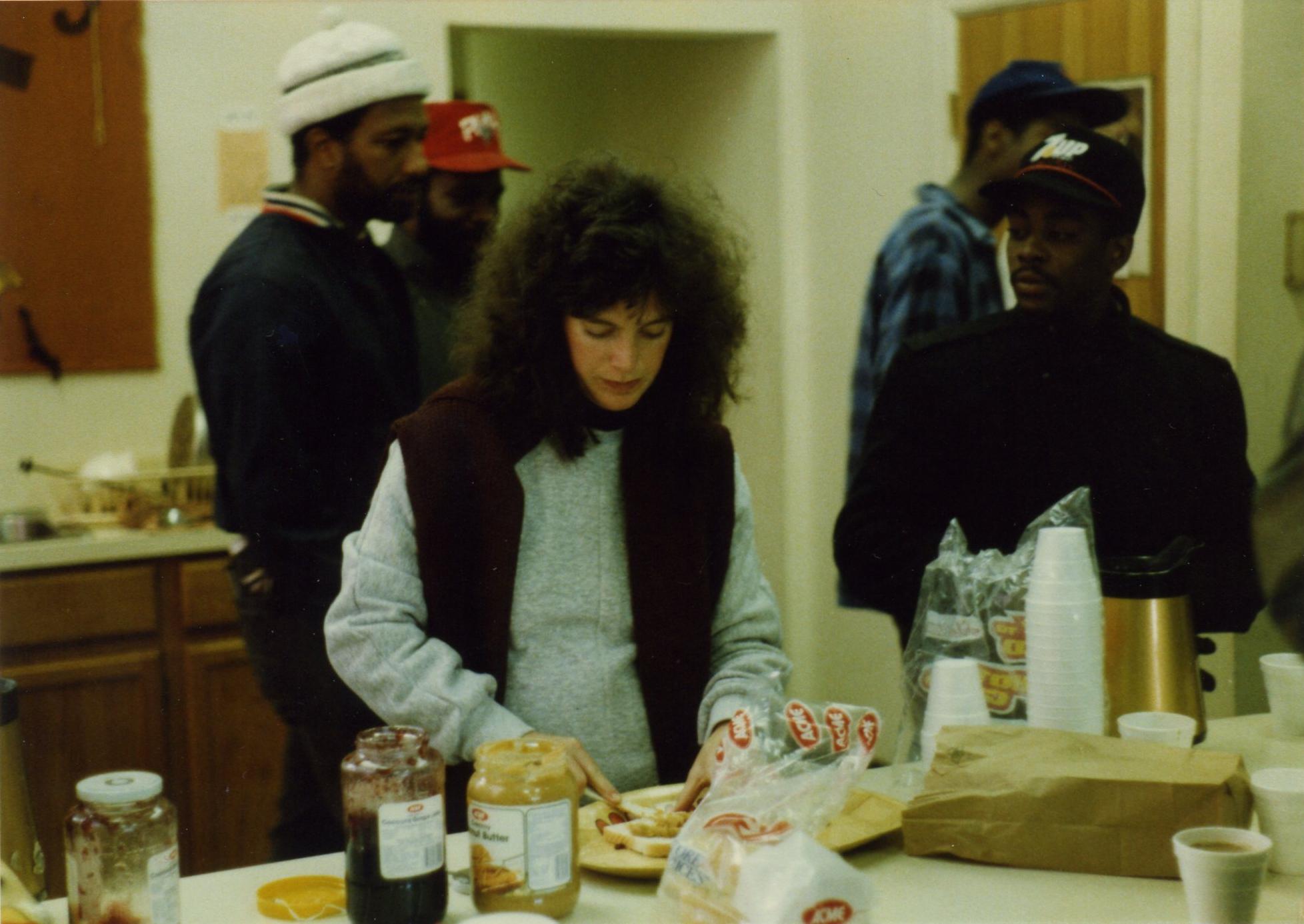
I got a post-graduate "scholarship" (thanks to my previous experience in house-restoration in Mobile) that paid a bit for a three-month job as supervisor of a five-house Habitat for Humanity project in Trenton. I also got an offer as a university chaplain/political science professor at a college in North Dakota. And I got an offer to do mission work in French-speaking Zaire (Africa). But Kathleen had just given birth to our daughter, Rachel, and she really was not ready to leave her world of extensive family (Irish-Catholic, although she herself was Protestant Evangelical) all located in the Princeton area. And then a young English architect, for whom Kathleen's brothers worked, offered me a job in construction. So that's what I would be doing for the next year and a half ... not exactly what I expected, but okay work nonetheless (actually lots of fancy work at businesses and homes in the Princeton area).
I applied everywhere for a Presbyterian pastor's position, but just could not seem to interest any church in the East. Was my resume too, too much academically, or was it too, too much in the realm of street and prison ministry? But somehow I just couldn't get any interest once I was out on my own. As mentioned, this dragged on for a year and a half.
The Garfield, New Jersey, pastorate. Then one Saturday morning returning from the street ministry I was told by Kathleen that I had earlier received a call from a church in Garfield (New Jersey), interested in interviewing me. She told me that she was somewhat familiar with the area ... and that it was in a tough neighborhood, formerly industrial, and now just abandoned factories, immigrants and poverty. Wow!
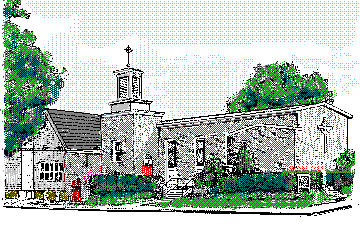
And yes, wouldn't you know, it was here at the bottom-ranking church in the presbytery in terms of membership and church finances that God finally opened a door for me to take charge as a full-fledged minister. It would be a very tough assignment.
But things almost blew up for me when I was presented before the full presbytery (the Palisades Presbytery) for acceptance and ordination. In my Statement of Faith, I had mentioned God in the masculine (using the highly taboo word "he" in reference to God's work in my life) and a strong reaction erupted from some of the women pastors. One was almost in tears that I should be so insensitive as to use a male reference to God, because of all the suffering she had experienced from men.
Wow ... it was just like being back at seminary where the same anti-male atmosphere dominated strongly (some poor student from Thailand, who had not yet figured out the subtleties of Princeton cultural politics had inadvertently used masculine language during a chapel sermon, and the women gathered a petition to have him expelled from the seminary)!
And these women called men "sexist!"
Anyway, with the strong support of the Garfield pulpit committee, I was (barely) approved for acceptance and ordination. And I would be immediately recognized as the sole "conservative" voice in this very Liberal Presbytery – just across the Hudson River from New York City, with some of the Presbytery members working at the "God Box" (the Presbyterian Church national headquarters on Riverside Drive in the city).
In the end this status as a "conservative" would work to my favor, because the presbytery was (once again) "reorganizing" (always looking for programmatic improvement!) and had restructured its working committees or "units." I was asked to serve on the new and most-sought-after Spiritual Development and Theology Unit, in order to give it "balance" as the unit's sole "conservative" voice!
Actually, much to their surprise, they found out that I had a brain, and soon I was asked to take the lead in a number of projects (such as helping to design and organize the annual pastors' retreat). Then within a couple of years they even asked me to head up the Unit itself! This is when I began to bring in speakers for presbytery conferences and retreats on the subject of science and theology, one of my favorite subjects – and a key part of what would soon be my very first website!
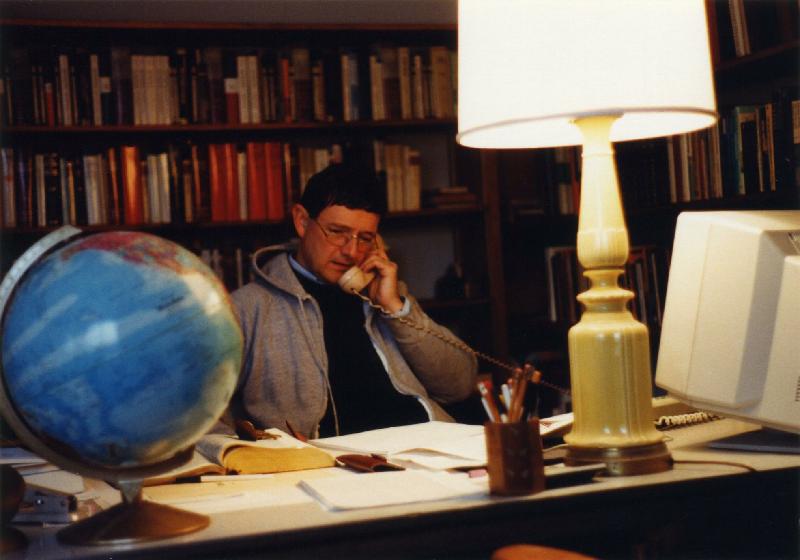
Some training of my parishioners in their own American cultural-spiritual historical legacy! Always the teacher as well as the preacher, I started up a class for the half of the Garfield congregation that supported me (the other, the mostly older half, in constant opposition because I just didn't fit in to their expectations of what a new and "inexperienced" pastor should be all about!).
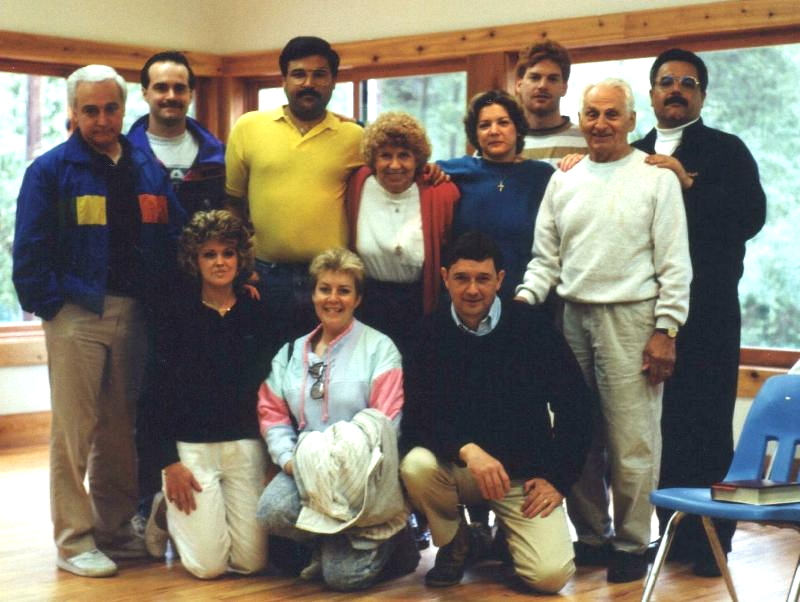
Over the next year I led this group (making up most of my Board of Elders or "Session") on a long cultural history of Western Civilization, using a book by Esalen Institute's Richard Tarnas The Passion of the Western Mind: Understanding the Ideas that Have Shaped Our World View (1993) which I absolutely loved (and so did a number of my parishioners, until I had a dozen or so of the 30+ active members of the congregation participating).
Then I got the bright idea of inviting Tarnas out to New Jersey to do a seminar for the Presbytery. Since he was headed for New York City on business, he agreed to give us a full afternoon and evening of his insights. I just supposed that the members of the Presbytery would jump at this chance to spend some time with an outstanding young historian, but made the terrible mistake of scheduling the event at the Garfield Church. We really busied ourselves for this big event. But in the end only a couple of people outside of my little group showed up for the event. At that point I realized what a huge mistake it had been hosting this event at the lowest-status church in the Presbytery. I should have scheduled it a one of the prestige churches instead.
But Tarnas was very gracious in all this, proving to be very humble in the company of our own very humble little group. In fact, he decided then and there to extend an offer for me to come out to California to an event (very "New Age" in spirituality) focused heavily on the Transpersonal Psychology school of thought and such individuals as Stanislav Grof and Ken Wilbur... and he would see that the conference fee was waived for me. And since my sister's boyfriend (eventually to be her husband) lived not far from where the event was to be hosted, I would even have a place to stay.
I was aware of what I was getting into. In fact that's why I chose to buy the airline tickets to do this little venture ... just to see where the Boomers were at in their more recent thinking. Considering the fact that the conference was supposed to focus on all the various worldviews and philosophies of our world (some 50 different sessions available), it was typical of Boomer anti-Christian prejudice that Tarnas (a Roman Catholic) was the only one to present the Western or Christian viewpoint at the conference. A recently defrocked Catholic monk (at that time now an Episcopal priest), Matthew Fox, was also speaking. So I made my way to his session ... only to find out that he was talking about the Seven Chakras of Hinduism! He had nothing to say about Christianity. In fact former-governor Jerry Brown (who would be California governor again 2011-2019!) spoke at the conference. And when he mockingly mentioned something about Christianity, the boos went up rather widely. Ah well. The Boomers were still Boomers!
A growing family. Several months after arriving in Garfield, our son Paul was born. Then we were four: Rachel, now Paul, and Kathleen and me. Then a year and a half later another daughter, Elizabeth, was born. Then there was a gap in time. It was very close to the end of our seven-years in Garfield that then our second son, John, was born. Wow! Now we were a family of six.
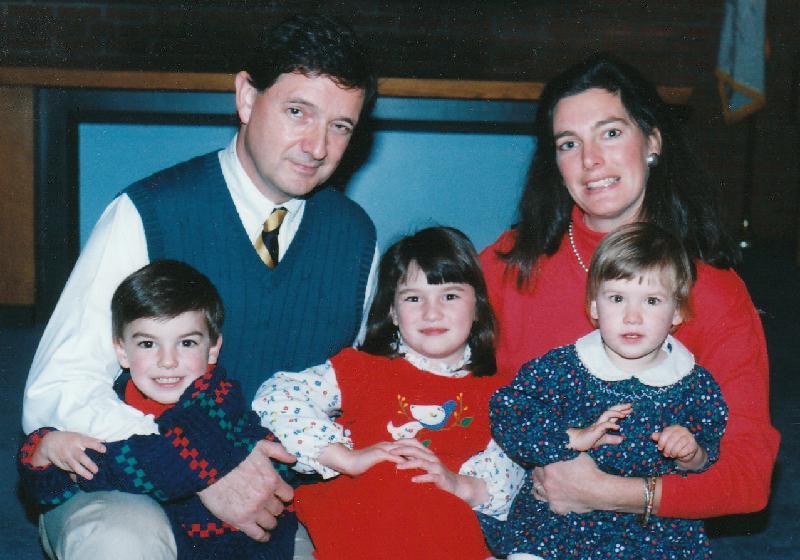
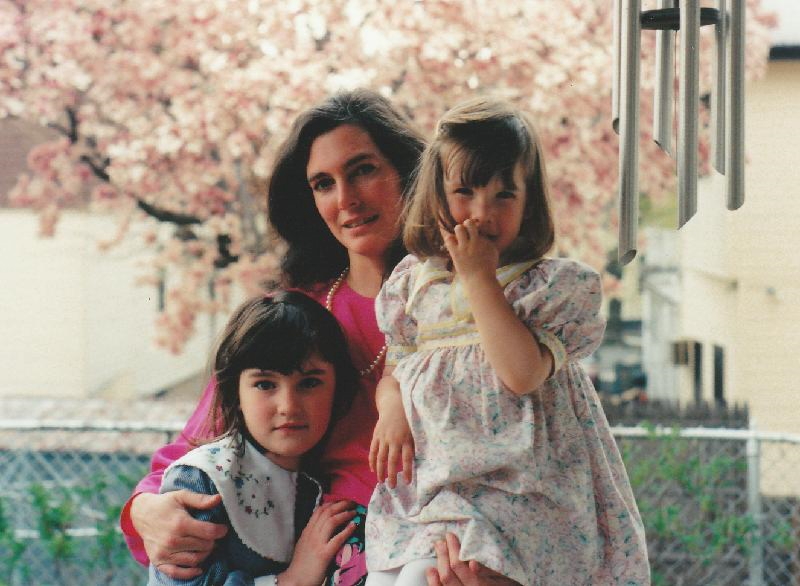
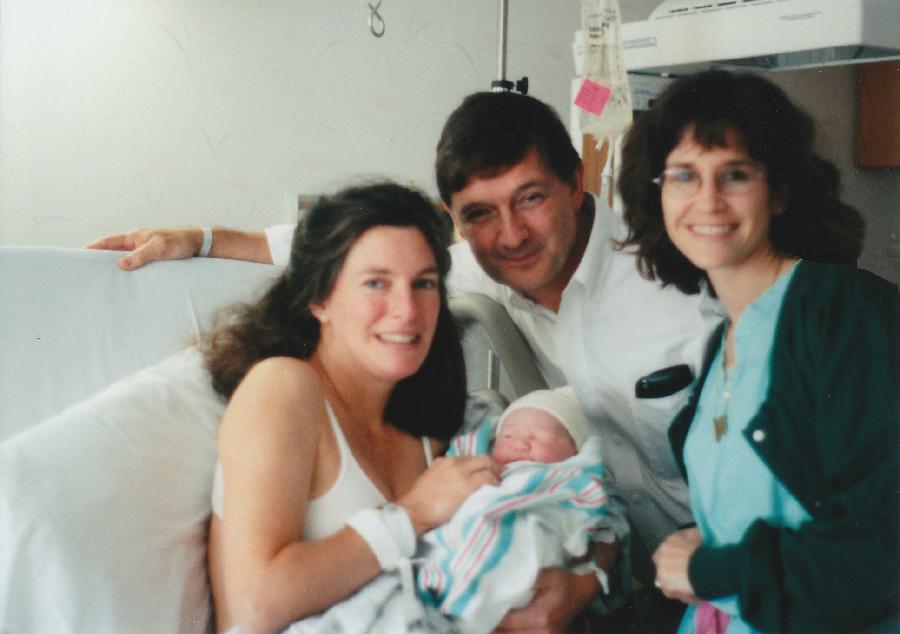
How I loved it all. I had no idea that "family" could be such a fabulous blessing. Our "manse" ("parsonage" in other denominations) was only 15 feet from the church and thus there was not really any kind of break between professional and family life. The two just blended into a single life experience. And it made the toughness of the Garfield challenge doable.
Trying to grow the church's ministry. When I first interviewed with the Presbytery's Committee on Ministry for the Garfield position, I was told that given the church's financial condition (and the Polish and Italian cultural character of the town), I would probably be able to carry the church no longer than two years, at which point its cash reserves, built up from hiring only weekly supply pastors for the last couple of years, would run out. But I was sure that with God's hand on my life I could turn that dynamic around.
Actually I never turned the dynamic around – but did manage to hold off the inevitable for seven very hard years.
A very strong Catholic church next door in Lodi (with even services in Italian) I came to love working with closely (food and clothing ministry mostly, but also just town events that were fun to get involved in). For the more recent Polish portion of Garfield (found also in huge numbers just across the river in Passaic), the best I could do for them was eventually to offer a Polish breakfast-Bible study for the large number of homeless among them. Many of them had turned to the heavy use of alcohol when they came to America (after the Soviet Empire collapsed in 1989) and found that there was no Socialism in this country able to carry them even marginally, as had been the case back in Poland. Thus a couple of Polish AA (and Al-Anon) recovery groups – including one just for Polish youth – would meet in our church. But I eventually decided to add the breakfast when I came upon one of them sleeping at the bottom of the steps leading to the basement. I had to conduct the program in Polish (I had one young man who could speak English and translate for me, and I had purchased a number of Polish Bibles we could work together from) – also substituting oatmeal cereal with raisins for the peanut-butter and jelly sandwiches used when I did this ministry back in Trenton (the Poles did not like peanut butter at all!)
I also had put my youngish Session members (my board of elders) through Chuck Colson's Prison Fellowship training, and we then proceeded to undertake a number of the Prison Fellowship programs at the Middlesex County Prison. It was an eye-opener for my Session members, who responded nobly to the challenge (when an individual goes out into the world in the name of Jesus, how wonderful is the light and love that goes with that person, rewarding both the giver and the receiver of that light/love!)
At one point along the way, the Executive Presbyter (something like a CEO) of the presbytery asked me to attend the denomination's first New Church Development (NCD) training program, held in Atlanta (Georgia). She thought that I had just the spirit and background to be able to take the lead on such a program our presbytery was hoping to attempt – with the hope of starting up a more "contemporary" church in the rising city of Hoboken (just across the Hudson river from downtown New York City). As far as the Atlanta training went, it was modeled after some kind of market-feasibility study program, which I don't think any of the dozen of young (much younger than me, anyway!) attendees found very helpful. Almost all of us understood NCD work to be a matter of Spiritual direction, not religious marketing!
But try as we might, the presbytery was just not in a position to be able to afford to rent,
much less purchase, property in fast-rising Hoboken. We finally looked at a movie theater more central to the Presbytery to possibly rent.
But by that time a new line of ministry seemed to be coming my way: interim ministry. I had also undergone training for this role, which I found to be much more dynamic ... because it involved basically helping churches get past all their old and precious religious habits established under a previous long-serving pastor so that a new pastor taking over the pulpit did not get crushed by a congregation that simply wanted the new pastor to be exactly like the former one. Typically churches do not do well making such a transition, and go through a rapid pastoral turnover ("eating up pastors") as new pastors simply tire of the deeply-cherished and tightly-held atmosphere they are expected to maintain – and the constant trouble they get into with irate parishioners when they cannot meet these expectations – and thus simply move on.
An interim pastor is actually some kind of "church doctor" – one who takes hits by purposefully changing as much as possible of the "old ways." People will tend to put up with the dismantling of their old habits more easily by an interim pastor, simply because they know that he will be moving on in a year or two. But because of all these changes brought on during the interim period, the new permanent pastor will have a congregation to work with that has managed to put the "glorious" past behind it and readied itself for the new things that will be coming from their new spiritual leader.
I was warned that interim ministry is not good for a pastor with children because of the impermanence of their postings. But I had every confidence that my four kids (John, our fourth, had just been born) would adapt easily to such change – because they were already growing up in a family that was quite used to a wide-ranging social-cultural variety in its life. In fact, the kids, it would turn out, did very well through all of the changes.
Moving on. It was increasingly time to move on. For several years my strongest supporters had moved on to other parts of the country (Garfield was a kind of desperate place, one that people would move on from when they had the chance) – but continued to support my ministry from afar as if it were a mission station (a mission to the hurting, which it in fact was) rather than just another pastorate. But even then, the more success I had in helping move people on with their lives, the harder it was to meet the costs of running the ministry and supporting my family, even at the most basic level. The Presbytery finally swung in to subsidize the church's finances. But we all knew that this was not a permanent solution. Finally I simply had to go to "part-time status" (although the only thing part-time about it was the salary, not the workload, which remained the same!)
Dunellen, New Jersey. The husband of our executive presbyter happened to be the interim executive presbyter of another presbytery close by, Elizabeth Presbytery, closer to the center of the state. She passed my name on to him when the Presbyterian church in Dunellen had a horrible church split between the pastor and the associate pastor, (both of whom left the church within a week of each other, without either knowing of the plans of the other to do so!). They would be needing an interim pastor to go in and heal things. An interview with a Dunellen search committee proved most positive, and suddenly Kathleen and I knew that we and the family would be moving to Dunellen, although only after the upcoming Christmas holiday, which I wanted to finish out in Garfield.
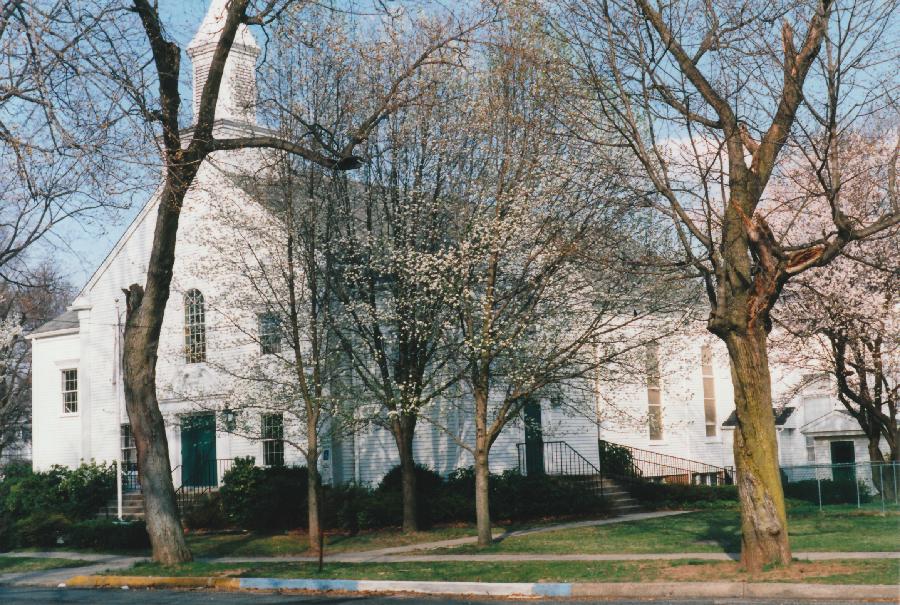
The interview before the full membership (pastors and elder-representatives) of the Elizabeth Presbytery proved to be very different than had been the one with the Palisades Presbytery seven years earlier. During the question-and-answer period, one of the pastors, whom I had known in seminary, spoke up: "Miles, we know you are coming to us only as a short-term pastor for interim duties. We would love to have you stay on as one of our permanent pastors. What are your plans?"
I answered laughingly, "Plans? Plans? I have had no plans since I put myself full-time in the hands of the Lord!" Indeed, there was great truth in that statement ... one that would be reaffirmed over and over again. That fundamental truth about how I now went at life would come into play in a very, very big way several years later.
I was warned that given the depth of the hurt caused by the split in the church, I was facing a tough challenge. But as it turned out, all I actually had to do was to step into place and take up where both pastors had left off – and whatever hurt there was previously never showed up. The next two years as interim pastor at the church would, in fact, be one of the most blissful times of the Hodges' lives. We loved them and they loved us. And Dunellen was right in the heartland of Middle America, with great places to eat, shop and just find things to do. And it was less than a half hour away from the Princeton area where Kathleen's family could be found, so the get-togethers would be frequent, including the huge family Thanksgiving dinners hosted at our very nice manse.
The "New Geneva" idea is birthed. But the educator in me still played very big. Thus as a side activity I began to put together detailed plans to build a special learning center, a place of retreat for pastors and elders with its own campus of classrooms, worship center, dorms, playing fields and even homes for the staff (to be built on some 25 acres). I called it "New Geneva" in honor of the city I had studied in and which centuries earlier had birthed the religious Reform Movement that Presbyterianism (among other Protestant denominations) had been formed from. I wanted to be something of a new John Calvin, helping church leaders catch a vision of Christian renewal, formed from an ever-deeper sense of the Biblical and historical legacy behind the Calvinism that inspired the Puritans and early Founding Fathers ... and many American leaders over the generations since then.
I was concerned about the cloud that seemed presently to darken America's spiritual life, and wanted to bring the bright light of renewal to America's national soul. The Secular path that America seemed so excited to head down I was well aware (having taken that path before myself) was not only undercutting the spiritual unity of the country, it was offering only political, social and cultural confusion instead of the kind of clarity in those same areas that a great country like America would need to remain as a "City on a Hill" or a "Light to the Nations" – as the Puritans of New England had once understood their new experiment in America to be (by God's own calling).
Thus New Geneva.
Pottsville, Pennsylvania. Almost two years had gone by and the Dunellen church had just issued a call for its permanent pastor and everyone wondered what was next for the Hodges family. In December (1999) I was called for an interview in Pennsylvania to a church that had been running through pastors rapidly since the retirement of the FBP (Former Beloved Pastor), who had remained in the area (not usually a good thing for a church). I warned the search committee to expect deep changes if I took the position. But at this point they either did not believe that I could be that serious, or that things were so bad that they were willing to put up with deep change. But the deal was closed and so in January of 2000 we made our move to Pottsville.
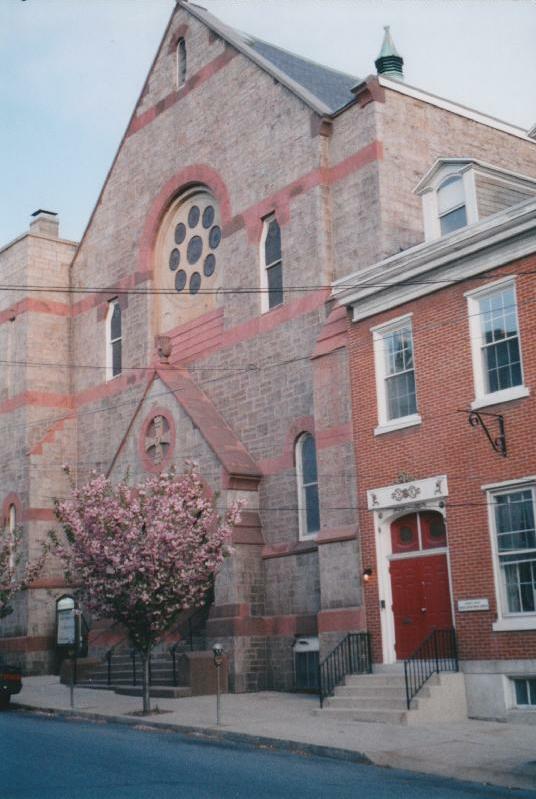
But once again things worked out very nicely with the congregation. I put a 12-foot drop-down projector screen in their very traditional sanctuary on which to project music, scripture and sermon points and illustrations (it's still there!) ... and then that coming summer, moved them out of the heat and humidity of that sanctuary to a fellowship hall downstairs that volunteers had joined me in repainting, adding comfortable cushioned seats, air conditioning and a very fancy sound system – and of course also a projection screen. And I got rid of the dungeon doors at the front of the church – and had clear glass doors replace them, making the church much more inviting to the outside world.
As it turned out, nearly all of the congregation was very accepting of all this change. And over those two years at that church a deep spirit of mutual affection linked the Hodges family with the parishioners. Those would be another two wonderful years for us.
The New Geneva idea actually takes form. When I was interviewed by the executive presbyter of the Lehigh Presbytery, the one that I would be joining in my new call, he took a strong interest in my New Geneva idea and asked me why not put that project together right there in the Lehigh Presbytery. The presbytery owned 17 acres of land just to the south of the twin cities of Allentown and Bethlehem and it would be a perfect siting, being easily reached from New Jersey and other eastern states. His offer certainly sounded like an excellent opportunity to actually start up this project I had been working on, and so I agreed.
So I assembled a New Geneva team of four other Presbyterian pastors, a young and adventuresome group – including my friend Tom, who had moved back from the West Coast to take a church in nearby Western New Jersey. The team also included the young owner of a huge car dealership, who had been part of my call to Pennsylvania in the first place and a leading supporter in all the physical changes in the Pottsville church. He was interested in turning his business over to a young manager and becoming the full-time business director of New Geneva. The whole thing was perfect.
And so for the next year and a half we all met in Allentown at the presbytery offices to plan the details of this huge project.
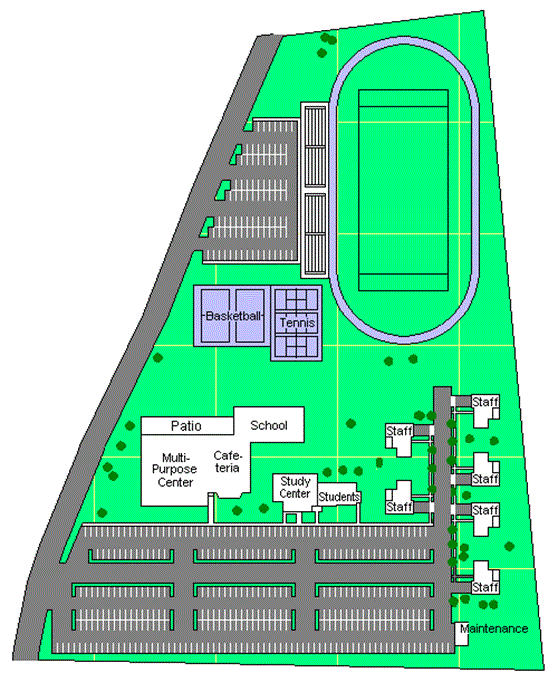
New Geneva is blocked. Then just three days before we were scheduled in early July (2001) to hold a meeting with a number of potential financial backers for the project, I got a call from the executive presbyter to tell me to call off the event. His excuse was that we had not brought this project forward through proper channels – which I knew was a complete fabrication because we had long been working through proper committee channels (one of which I myself was chairman) to get the presbytery solidly behind the project. And the executive presbyter himself had been closely involved in the program from the very start.
But it did not take us long to figure out that the real problem was coming from the formidable Presbyterian church of Bethlehem, which had originally granted that land to the presbytery, and which alone contributed one-fourth of the presbytery's operating budget (out of the 50+ churches comprising the presbytery!). But with the closing of the mammoth Bethlehem Steel Corporation, the church had lost a lot of corporate executives, and the church was running a half-million-dollar deficit in its own budget for that year. And New Geneva's meeting with financial sponsors appeared to the Bethlehem church to constitute something of a "sheep raid" on its flock (some of the potential supporters came from some of the major Bethlehem contributors, although they gave no indication that supporting New Geneva would cut into their support of the Bethlehem church).
So it was that the Bethlehem church threw a full body block at our project, one which there was no way to get past. I and one of my team members, whose father had long ago actually pastored that same church, met lengthily with that church's Session. But we still got nowhere in our explanation as to what New Geneva's goals were: training and support of pastoral leadership, not the building up of some kind of new church community. But they pointed out that since we would indeed be offering worship (of course!), this qualified us potentially as a new church. That was just not going to happen, New Geneva being located so close to the Bethlehem church's own recruiting territory. Thus the Bethlehem session simply refused to end the blocking of our effort.
Realizing that if God were in full support of our project, no one – not even the wealthy Bethlehem church – could have ever successfully stood in New Geneva's way. We prayed one last time over the matter ... and came to the realization that each of us simply had to move on. God wanted us elsewhere.
But what once again surprised me greatly was the calm by which we greeted this failed project. It was like the closing down years ago of my Central American peace project by the university president. We had put almost two years into this New Geneva project (as for me personally, almost four years). And we simply shrugged our shoulders – and very soon moved on to new calls, or simply remained in place where we already were.
As for me, I presumed that I was also now in the process of finishing up my interim position in Pottsville, for they had just issued a call to a permanent pastor (although, as it would turn out, I would continue to pastor the Pottsville church until the new pastor actually arrived some five months later!) ... and had no other position lined up.
(The next 18 years!)
[Please note that the following, highly pictorial, section is itself a grand departure from the simple presentation of this section in the book itself. I just could not resist going "pictorial" concerning these wonderful 18 years!]
Then one of my parishioners suggested that I call the director of a new Christian school that recently had started up in the area – because she could easily see me as a teacher there. I followed up the suggestion and phoned the school. And sure enough, they needed someone to teach high school history and social studies, and I certainly had the qualifications for the position. The only catch was that the salary was half what I was making as a pastor, and there would be no health benefits offered by the school (or pension benefits either).
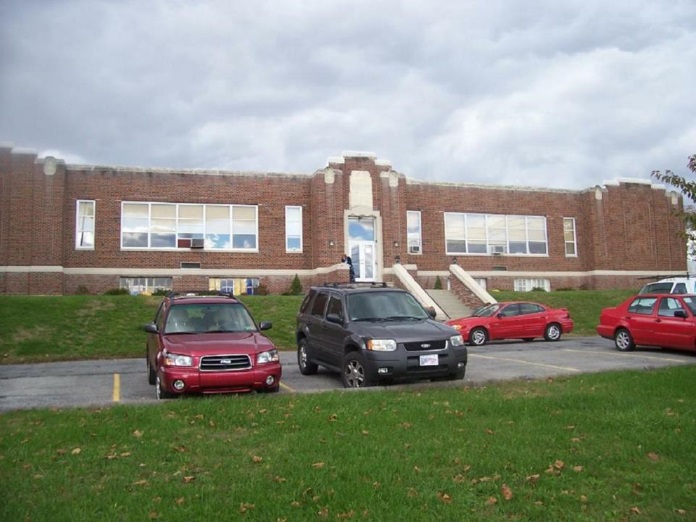
I knew immediately that God was behind this! I learned long ago how God likes to "show off" – by putting us in impossible situations, and then working out beautifully the issues and details himself. All we had to do in life was "show up," do what was expected of us, and he would then work out the rest, which was the biggest portion of the whole deal! As one of my friends put it frequently: "God's got it." Thus it was that the life of Christian faith was always something of a rather thrilling adventure!
But there were other important features to this new assignment. Our oldest, Rachel, would be entering 7th grade, and I would have the chance to be her history teacher – and then eventually also her social studies and French teacher as she went through high school. And Paul was soon behind her, and Elizabeth also just after him (it would be a while for John, who was just entering kindergarten before he would come my way!). In essence, I would have the opportunity to "homeschool" my children right there at TKA (The King's Academy)! And through them, I would come to have a very special relationship with their classmates. It was more like "family development" at TKA than just academic or classroom teaching.
My actual "introduction" to my students: Political Realism and 9/11. As classes got up and running that early September of 2001, I swung into my "preaching" (moral instruction) which always accompanied my teaching. One Friday early in the month I mentioned to my classes about how America could no longer rely on being simply "Fortress America," safe behind the wall of two oceans – and thus supposedly able to be selective about if, when, or how it chose to engage the larger world beyond our borders. It was a new world now, and whether we liked it or not, we were intimately involved in the dynamics of the larger world, with no way of escaping from that relationship – wanted or unwanted.
In fact, I pointed out how the world of Islam was on a mission to destroy exactly the very things we most importantly stood for, the Muslim world wanting to bring down our culture – just as much as we certainly would like to see Islamic culture come down (freeing up women, giving all people more personal freedom, and just in general joining us in the "democratic" West). I in fact pointed out how much they wanted to bring down the Twin Towers of New York City (they attempted to do so back in 1993) because of the fact that it was a most notable symbol of what America exemplified – and what they hated.
For some reason I repeated that same example the next Monday ... and on Tuesday those Twin Towers did indeed come down! 9/11 had just occurred.
My students were not only shocked (as we all were) at the sheer horror of the event – but also that somehow I had "called" the event just before it occurred ... something that seemed a bit like prophecy. Actually, I had intended no such thing. But it certainly caught the attention of my students. From then on, they would take very seriously the material I put in front of them.
This success at "prophecy" was not something that pleased me at all. Two of the people who died in that event had been former Dunellen parishioners of mine (one of them the church treasurer) and the whole thing gave me chills to think about. But Reality was something I was quite familiar with – though since the restoration of my Christian faith something I was ready to face rather than to go into cynical retreat from ... no matter how ugly that "Reality" could be. And it could at times get to be very ugly. Such was the case of 9/11.
More "Political Realism." Then over the next months, I watched in deep concern as President Bush (Jr.) decided to take his quest for justice against the al-Qaeda perpetrators and expand it as a new "Bush Doctrine," announcing how he intended to take down all supporters of such Islamic terrorist instincts, such as the Taliban, an extremely radical Muslim organization that had just terrorized Afghanistan into submission – and had offered their country as training territory for such terrorist organizations as al-Qaeda.
I was quite aware, however, that this huge expansion of our foreign policy goals would engage us in something much more than just dealing with the criminals of 9/11. It would throw us into a cultural-moral quicksand of Afghanistan, something that potentially had all of the same features as our involvement in Vietnam.
I was so vocal in front of my students in this matter that finally the school's new director, who behind it all largely agreed with me on this matter, nonetheless asked me to tone down my commentaries. Some of the kids' parents felt that I was being very unpatriotic in not supporting our president. Not patriotic? Really! It was out of the very deep love I have for my country that I was distressed in watching Bush lead this dear country into massive calamity.
Okay. I was not called on to save our country from stupidity. But I was called on to do my best to acquaint my students more intimately with that world out there – at least a portion of it anyway. I was to show them what little I could of how the rest of the world went at life a bit differently than America did ... under its own quite laudable merits. I wanted my students to "appreciate" that larger world ... yet at the same time appreciate their own America, something that God himself had called them to the task to defend. They needed sophistication, wisdom, discernment ... not foolish ideological patriotism (the kind that has killed millions of "nationalist" soldiers of all variety in the 20th century alone).
So, the least I could do is get them off ... to Europe, in particular Paris – and eventually London as well. Thus I made it a point every-other-year of organizing a 7-to-10-day trip to Paris (and then also London) over their spring break. In both cities I would organize a morning together to see some special sight, show them how to get around using the subway systems of Paris and London, and then allow them to go out on their own (at least in small groups ... as no one was permitted to go out on their own personally) afternoons and then evenings after dinner ... to learn how rather easy it was to do such personal travel.
The larger world was not a forbidding place! And they came to appreciate that matter very much!
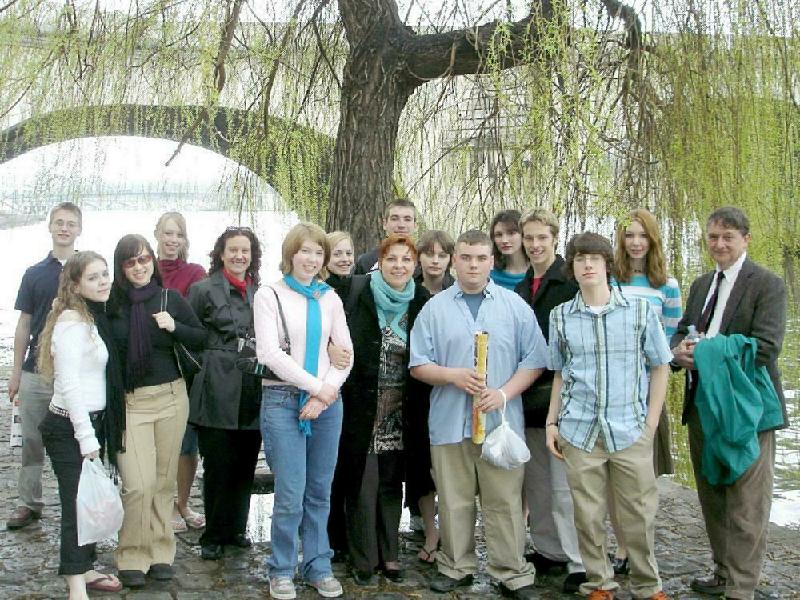
... Rachel barely visible in the background (4th on the left of me) ...
the first of five such trips I would make with my students
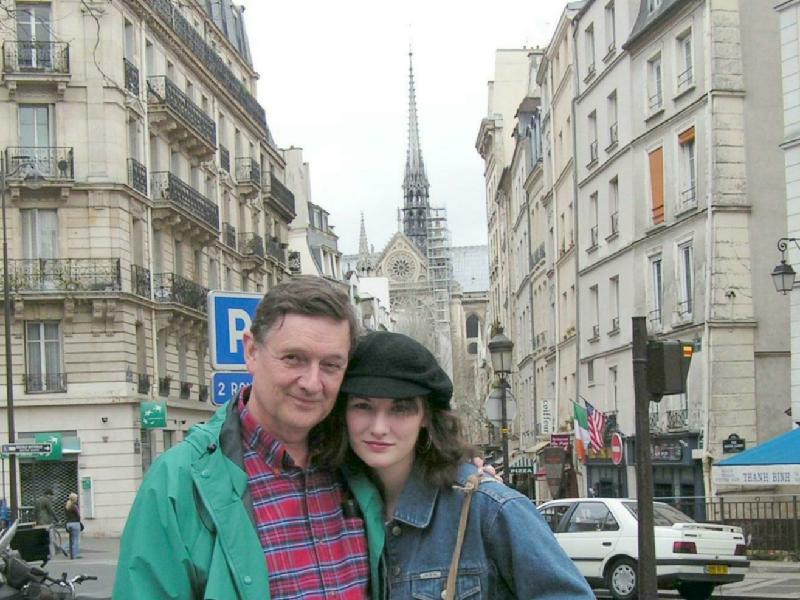
(and the Notre Dame Cathedral behind us)
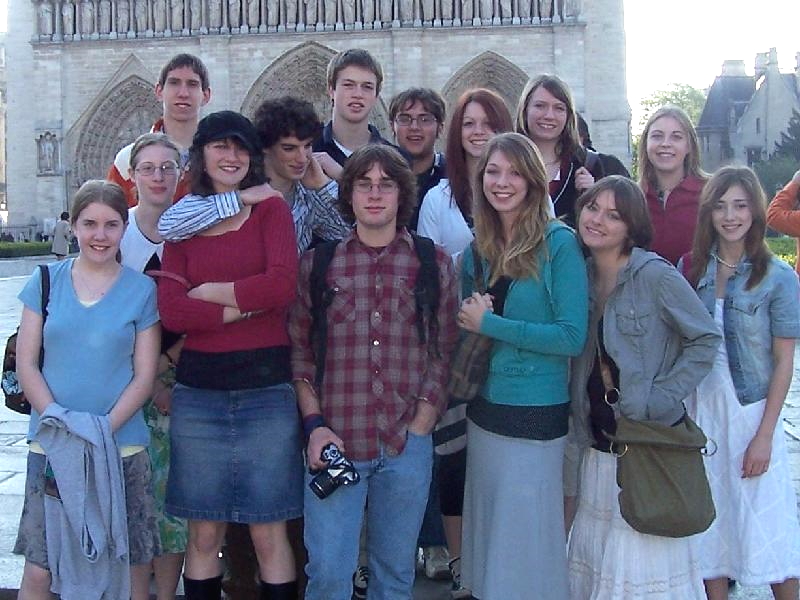
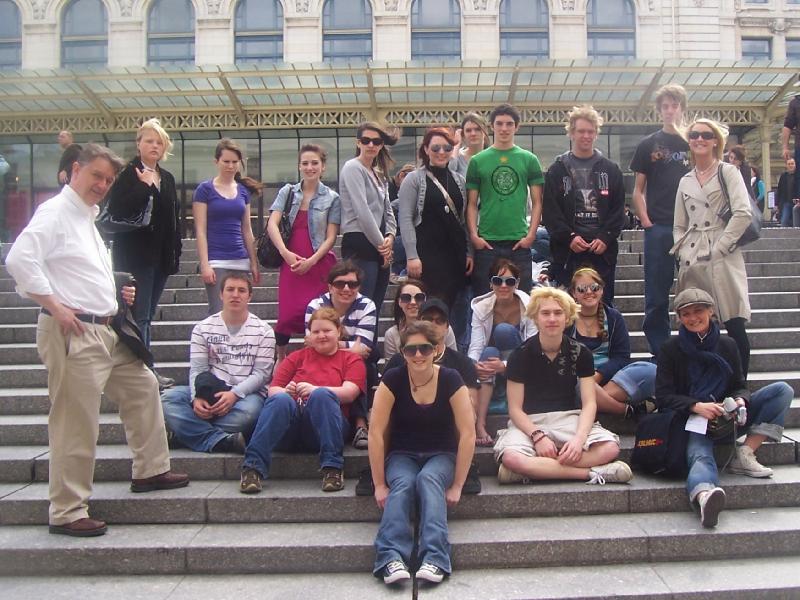
Elizabeth joins Paul on the trip ... and Kathleen is with me as well.
This picture is of our group in front of the Musée d'Orsay,
with Paul in a green shirt and Elizabeth ducking behind him!
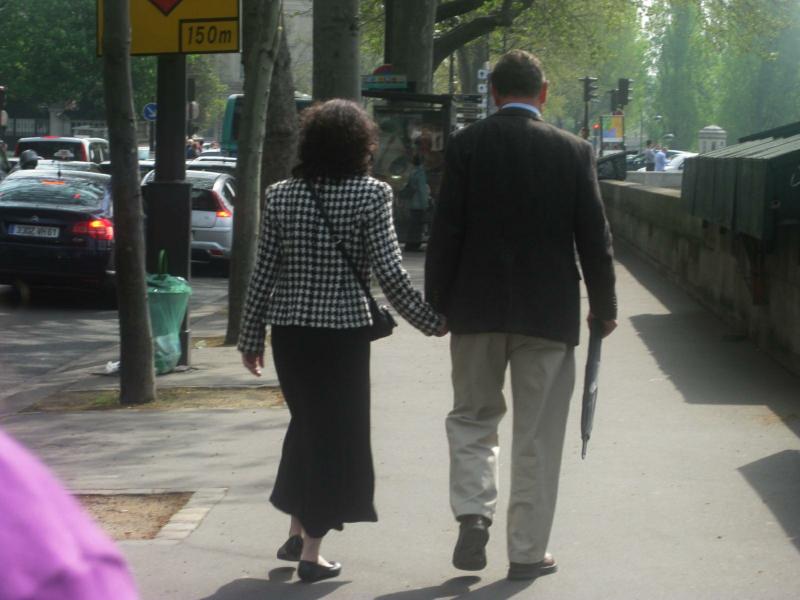
... as we walk along the Seine River towards the Eiffel Tower!
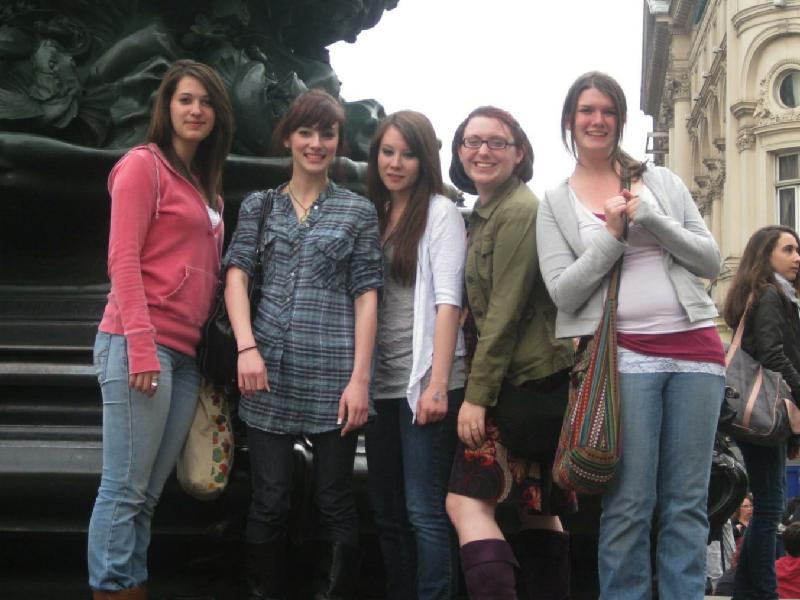
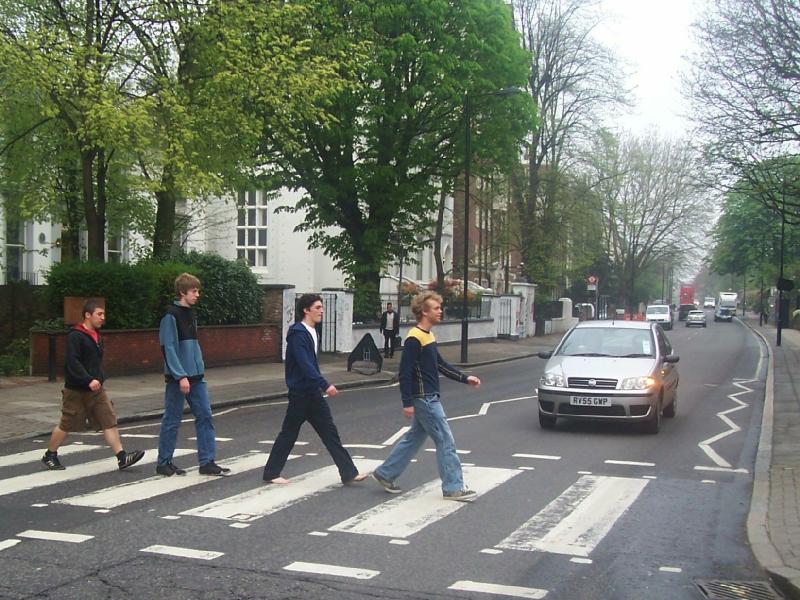
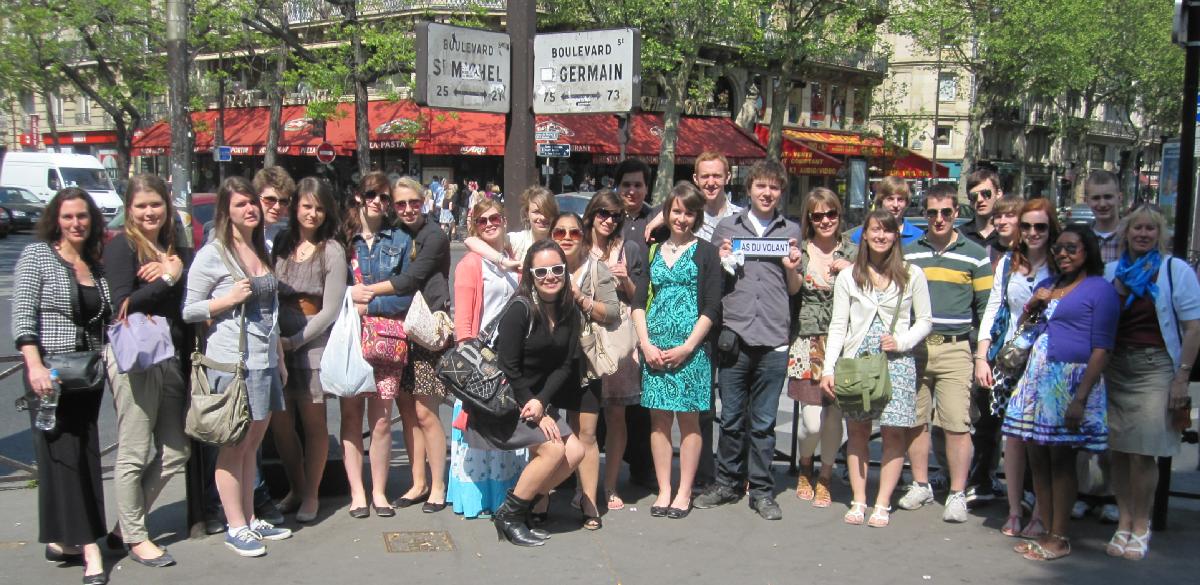
(Kathleen on the left and Elizabeth two persons to the right of her)

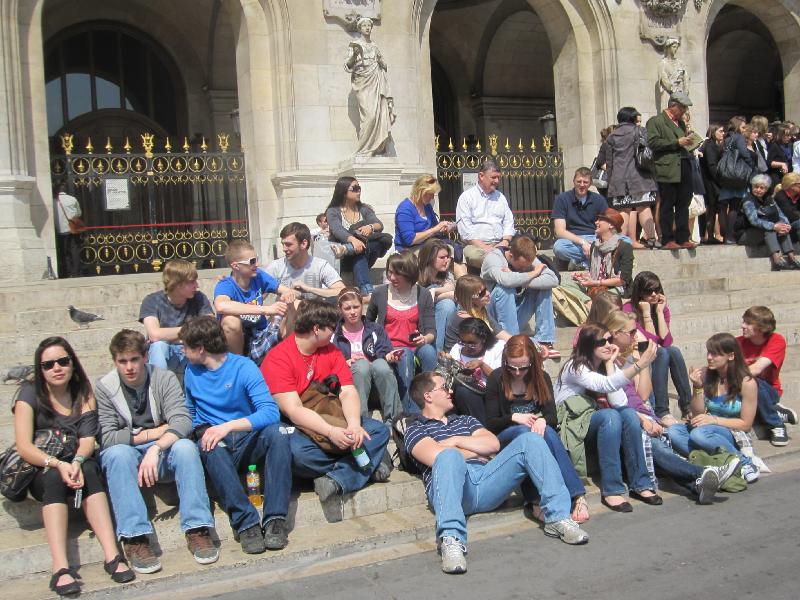
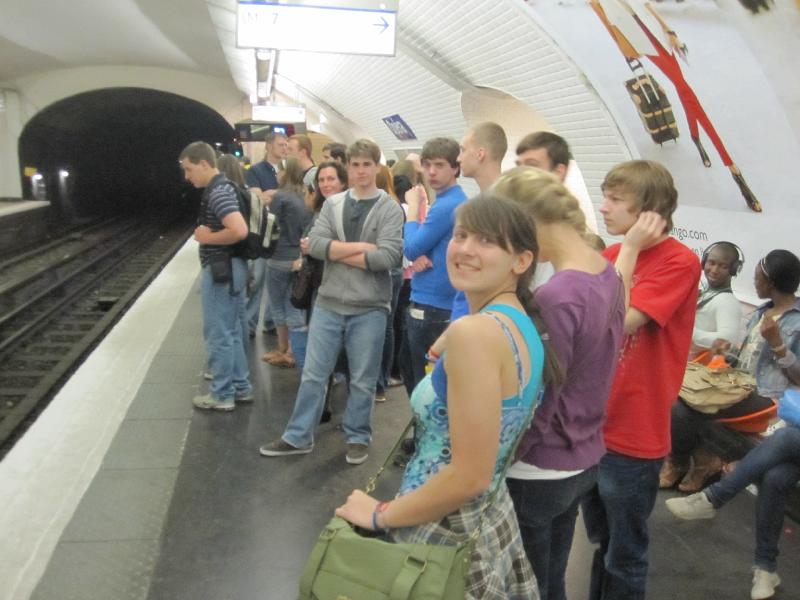
Part of the trip's purpose was to teach these students how to get around on their own.
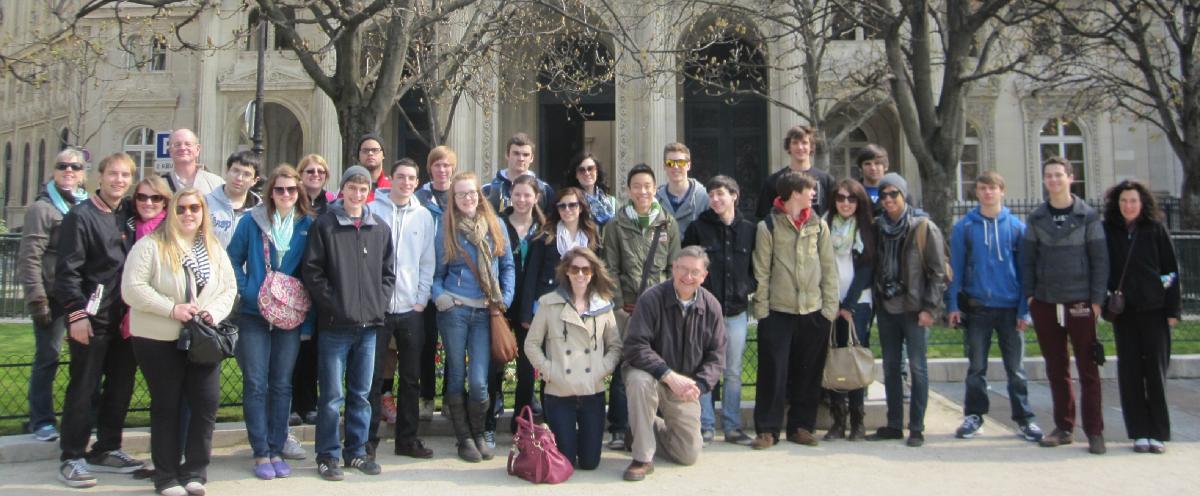
Our Norwegian student, Haakon, staying with us for the year, is also with us.
(Paul in the white jacket; John in front of him to the left; Haakon behind Paul to the right
... and Kathleen on the far right)
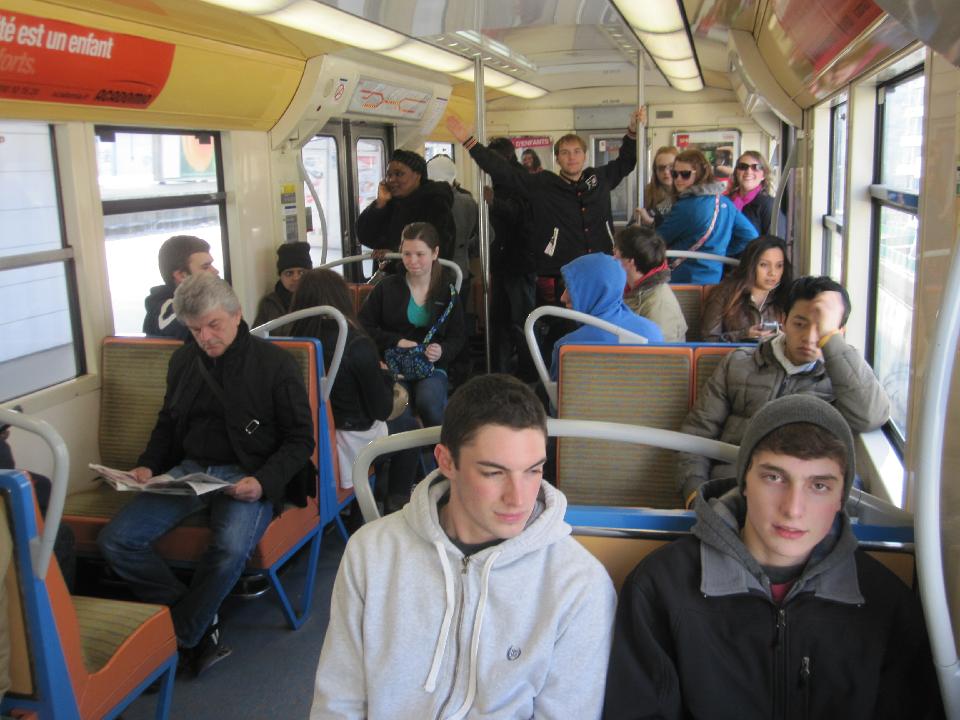
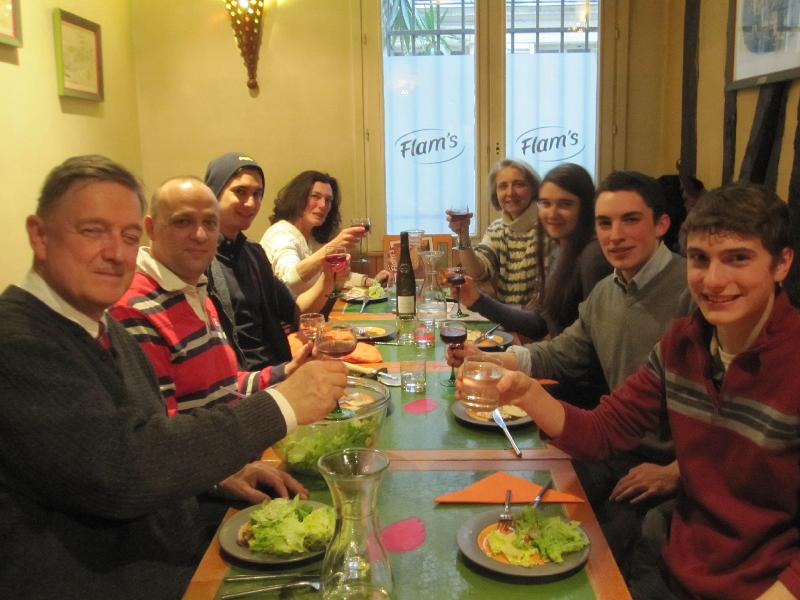
and her mother, father and brother
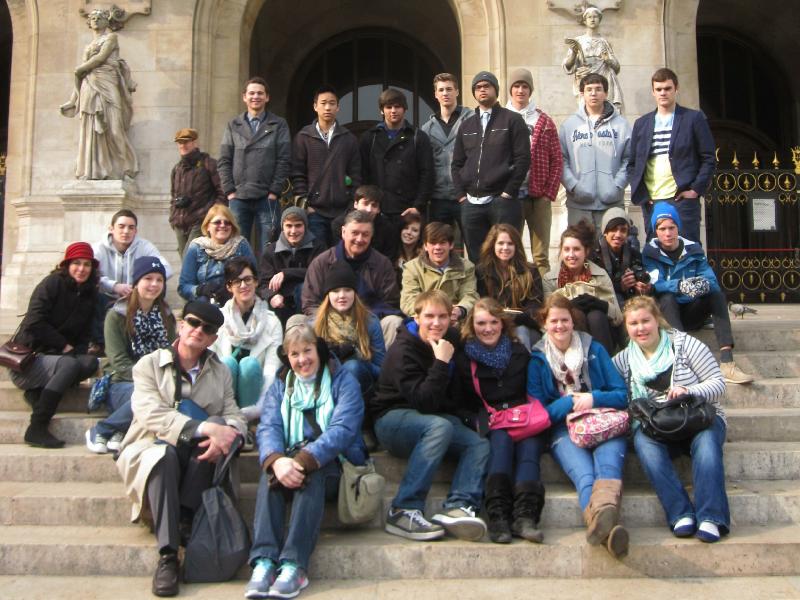
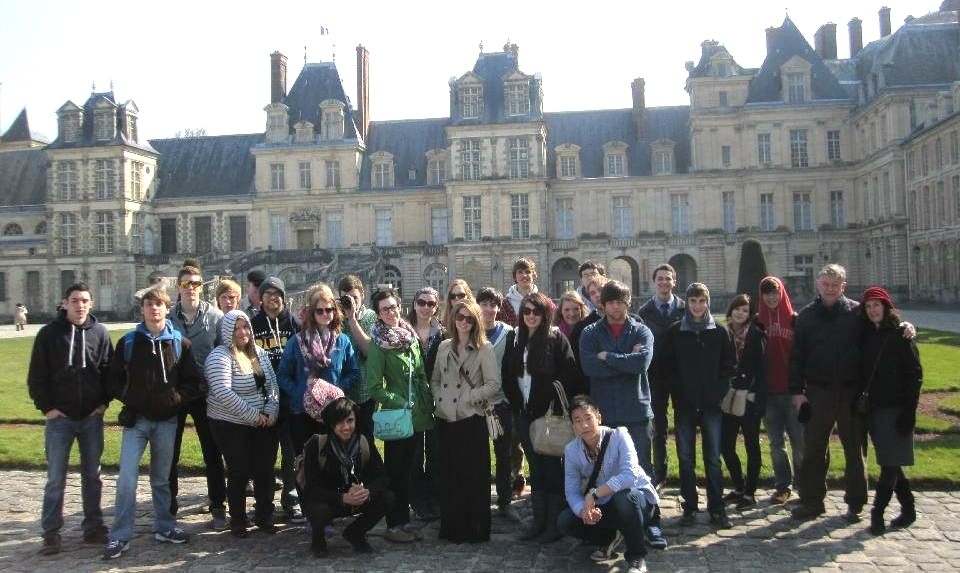
Every visit, we seemed to have the place to ourselves!
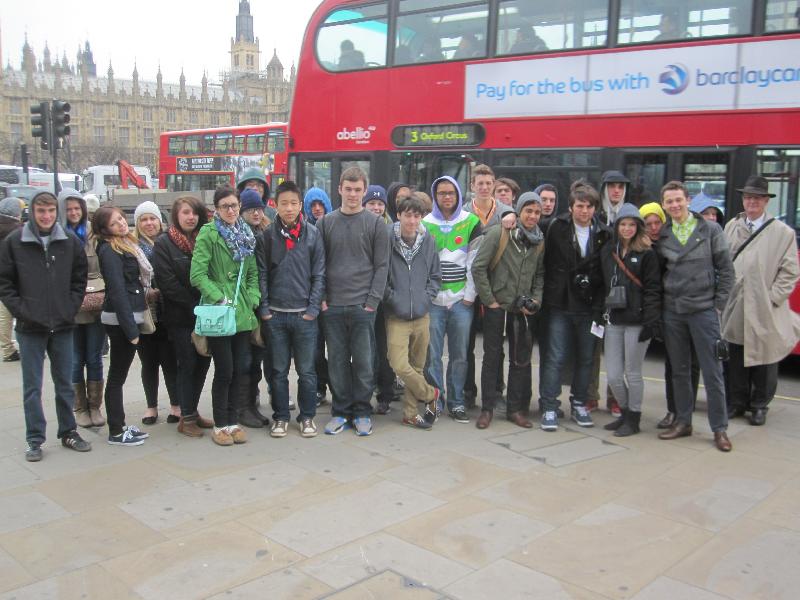
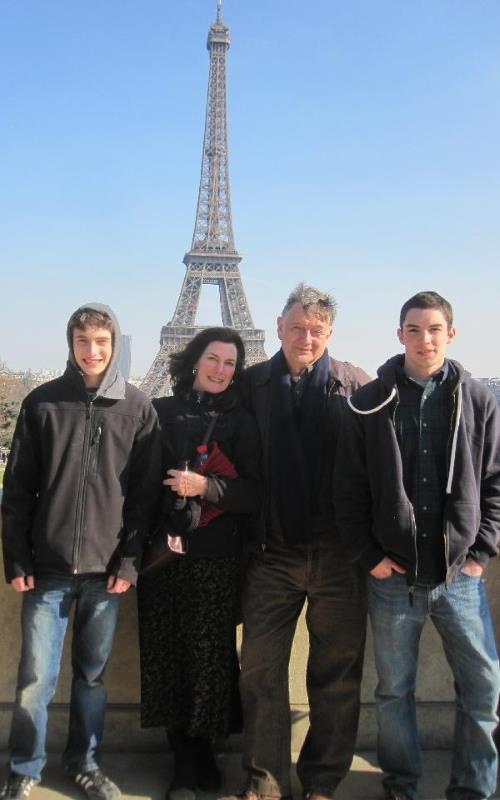
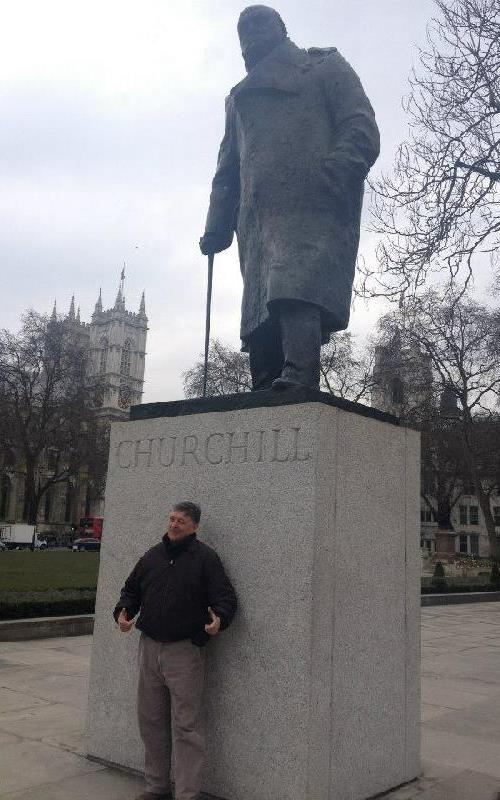
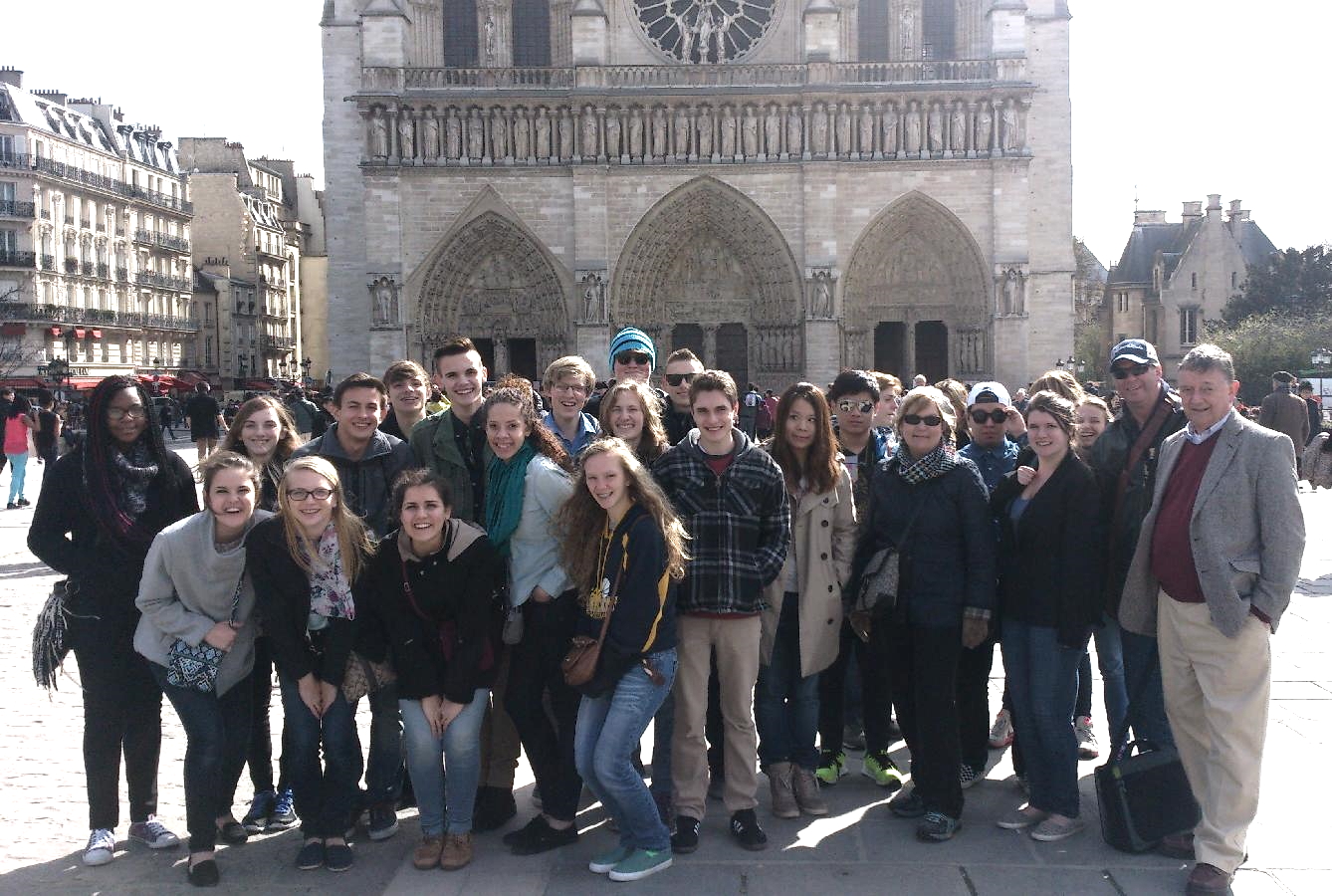
Elizabeth has joined us as a chaperone,
along with family friend Sue, fellow teacher Jim (all of us over on the right)
with John (center) and his friend (and Sue's son) Jacob ... the tall guy back behind John
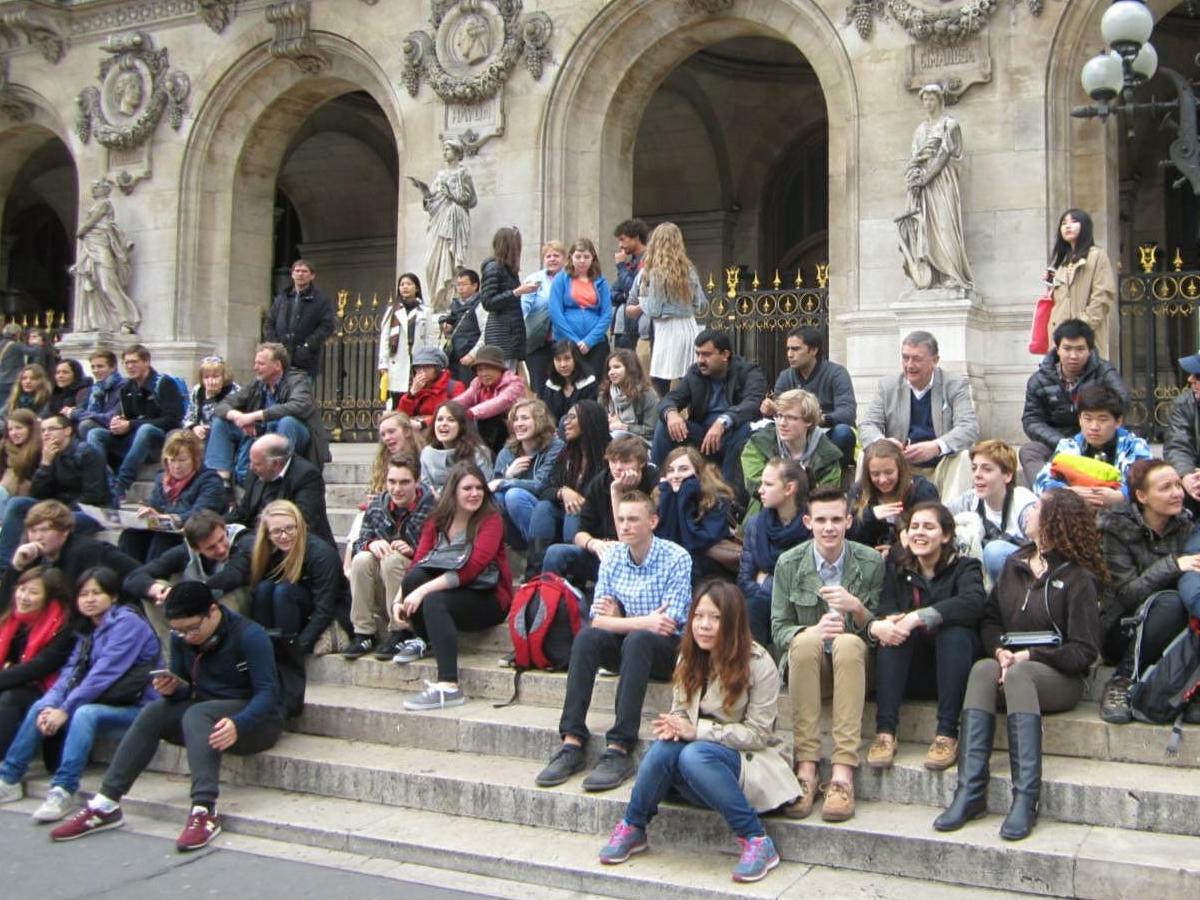
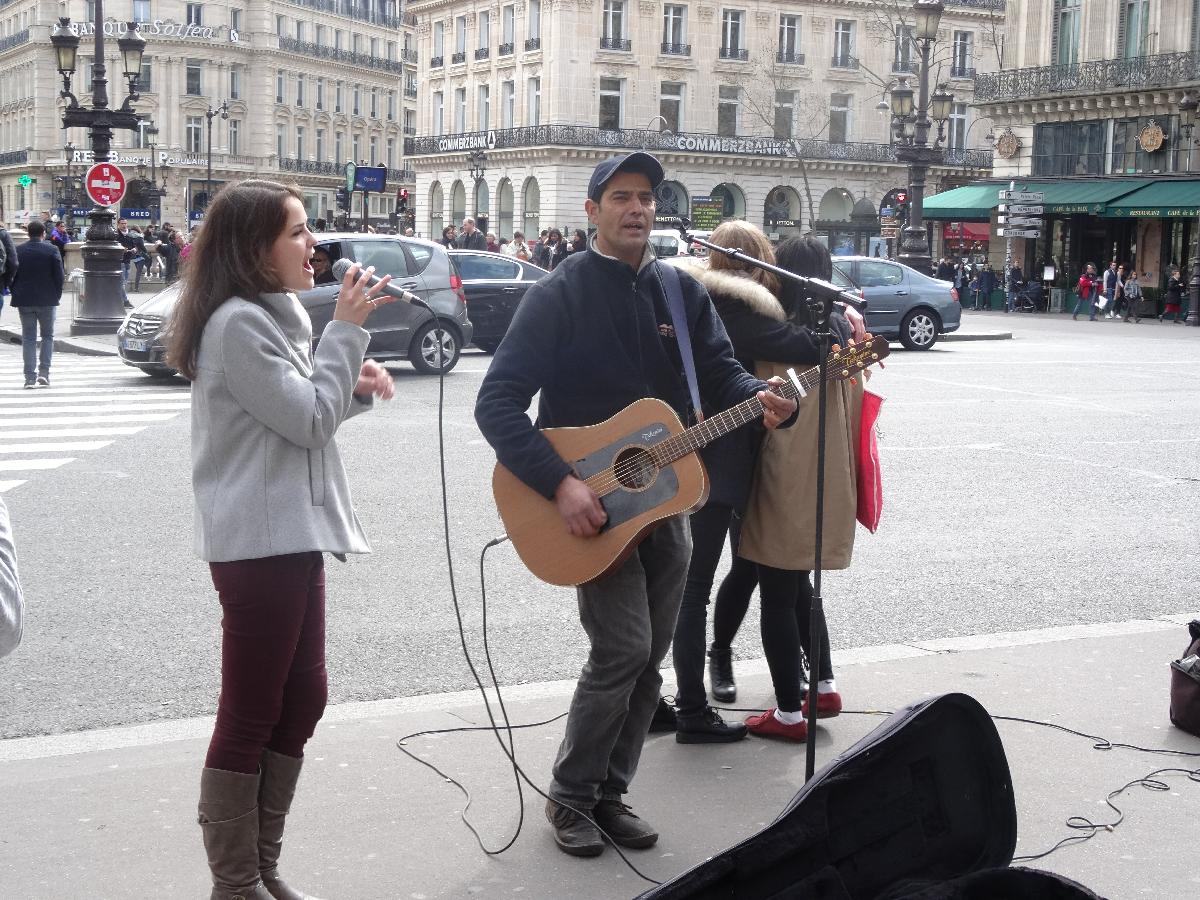
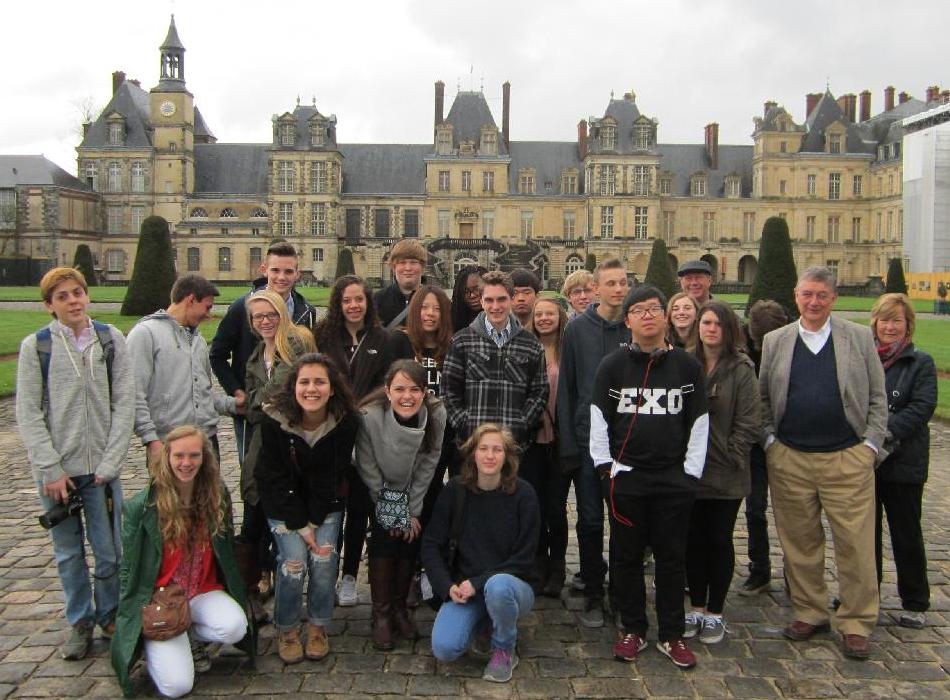
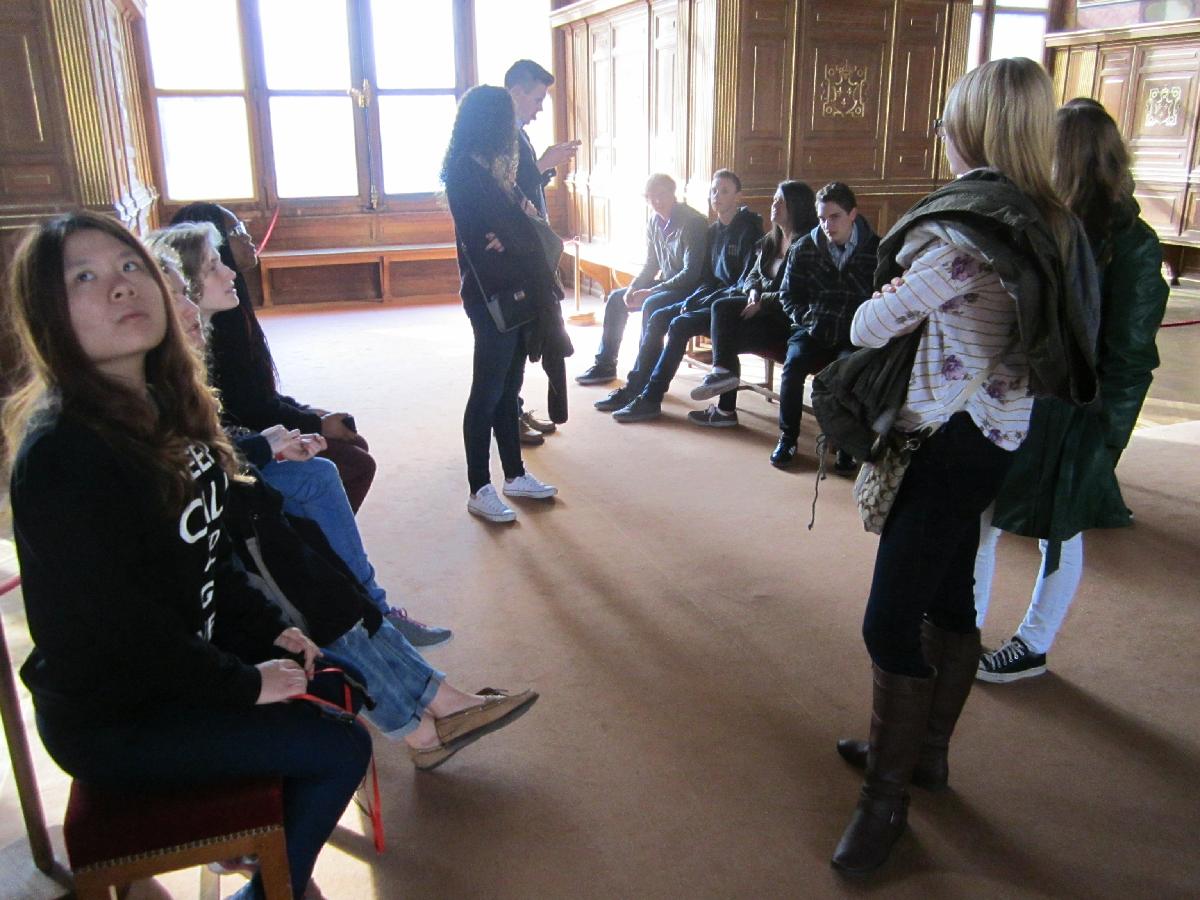
We once went to Versailles (just outside of Paris), a grand royal residence only somewhat larger than Fontainebleau. It was so crowded that we had to wait a whole hour before our group was allowed to enter. We never went back to Versailles. And why should we? Fontainebleau was absolutely awesome by comparison!

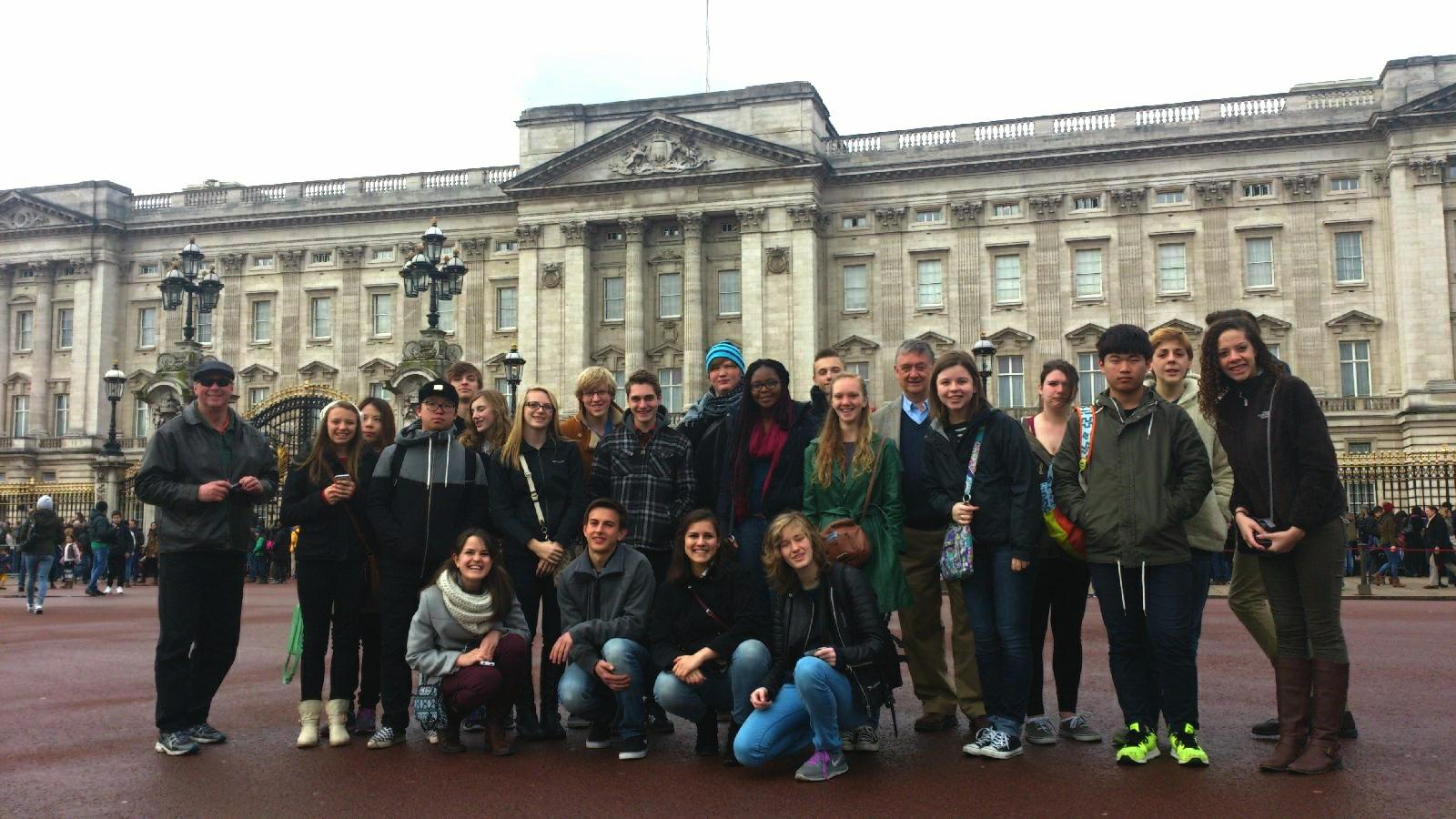
On another front, I was very active in getting all my students most every spring (late April or early May) to Washington, DC ... in particular to the Heritage Foundation. Because our headmaster, Dan, had earlier worked at the Heritage Foundation, TKA was extended the very special privilege of having resident researchers deliver special presentations to our students, several sessions in the morning and early afternoon. This helped immensely bring home to my students the reality of the DC dynamic ... good and bad (this being the good part!).
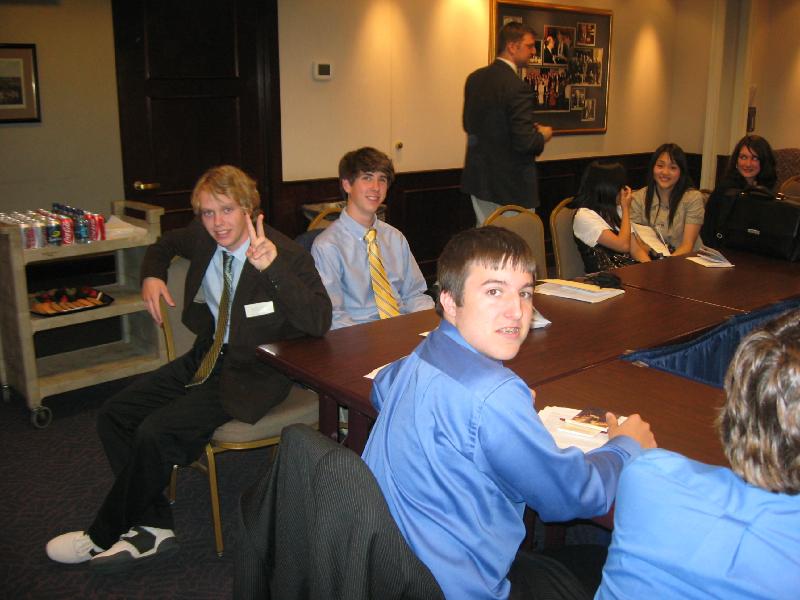
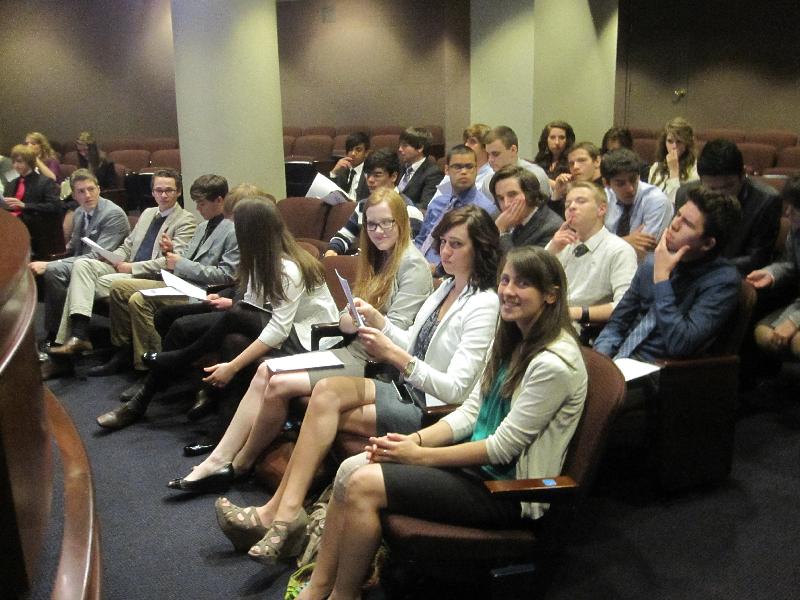
I was hired to teach a wide range of history and social studies courses, which over the years I shaped into a number of courses I offered every year or every other year: Western History to 1900, World History since 1900, American History (later recaptioned as American Government and Economics ... but basically the same political, economic, social, cultural and spiritual history of the American people!), World Cultures ... and for seniors, Social Dynamics. I also added French language study from my second year at TKA onward. I would teach French I and French III one year and then French II and French IV the next.
All in all, I was a very, very busy teacher ... having usually only one of the eight periods of the school day without students in class with me.
I worked them hard with required essays each quarter (typically 5 to 25 pages in length, depending on the energy of the student!) ... which I would go over the questions in depth the week before they were due at the end of the quarter. That ended up being a massive amount of grading for me to do. They also had portions of the world map to identify in test form each quarter. Then the last quarter I would test them on historical dates in Western and American history. And I repeated these same geographic and historical tests year after year, so that as they progressed through high school, they would come to know such vital information deeply. It would give them a deeper perspective on the lay of human life on this planet than was typical of most high schoolers!
By the way, all this material can still be found on my website, spiritualpilgrim.net.
I also kept things as personal as possible, seating my students in a circle (no rows ... so everyone was sitting "up front"!) and engaging them as much as possible in discussion of the points in question.
We worked from written texts I had prepared, posted online, and photocopied for them as we came into each new section. ... This is of course the foundation for what would one day (quite recently) become the textbooks I just had published. But back then, it was all very informal.
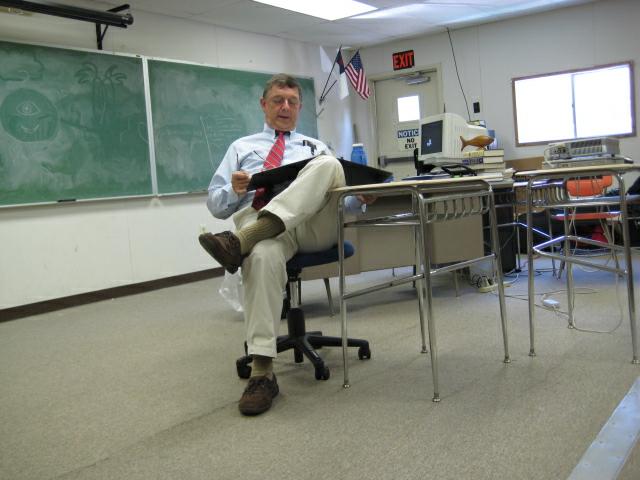
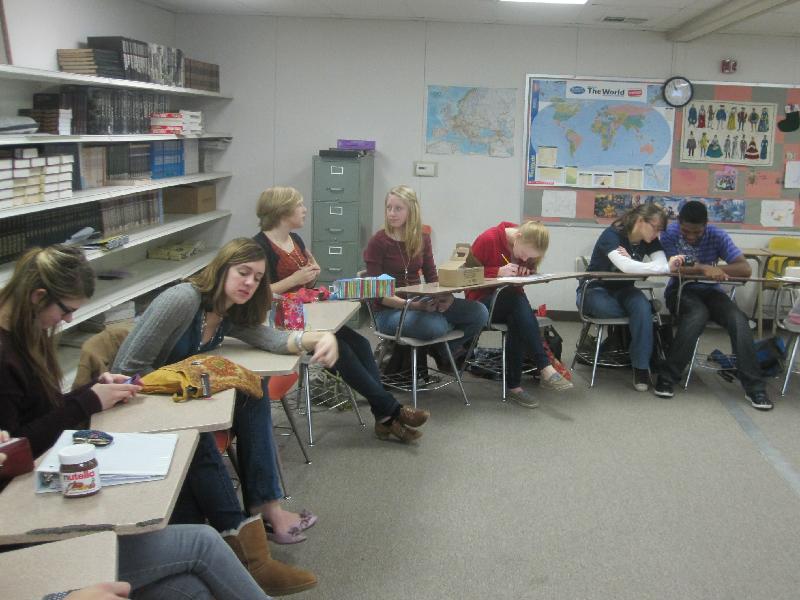
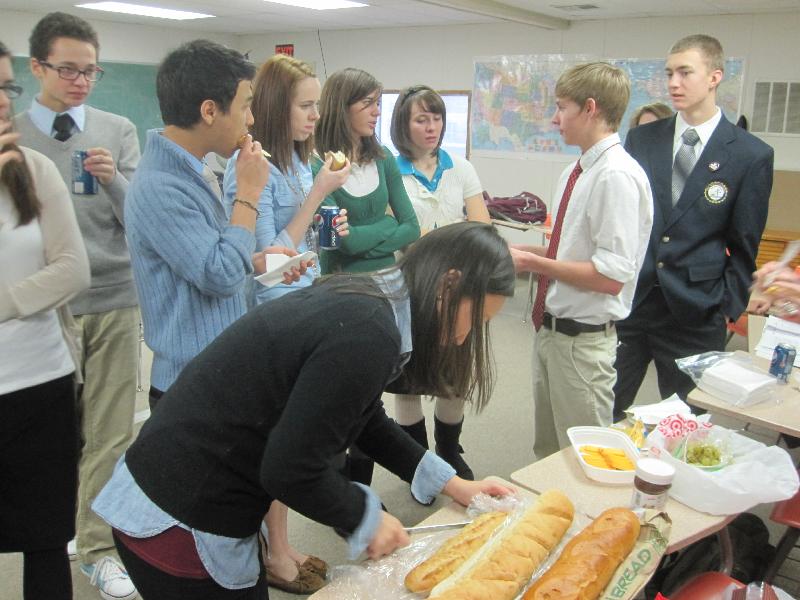
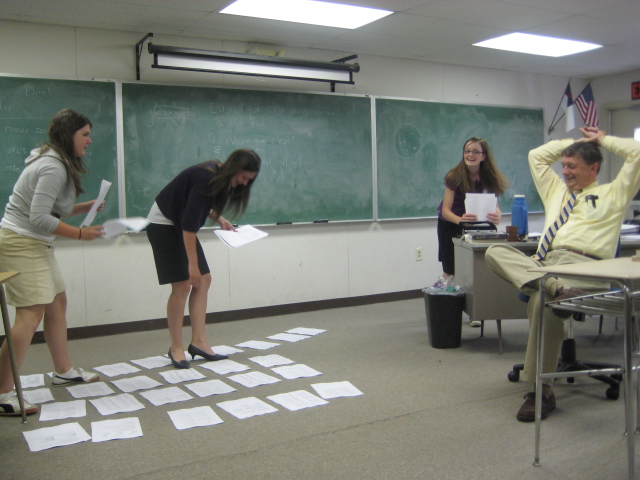
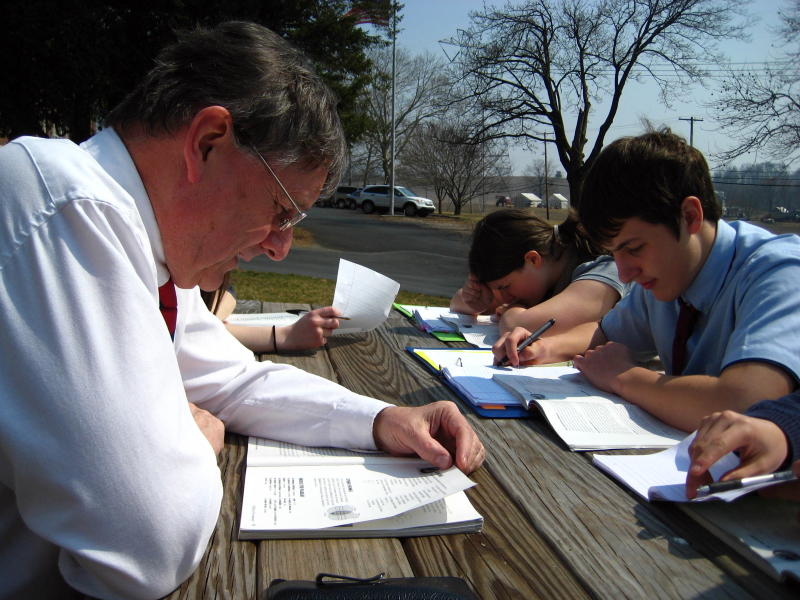
Meanwhile, family life at home developed along some very interesting lines for the Hodges family. Something that excited our kids greatly was the numerous foreign students who came to live with us, some for just the summer, some for the entire school year.
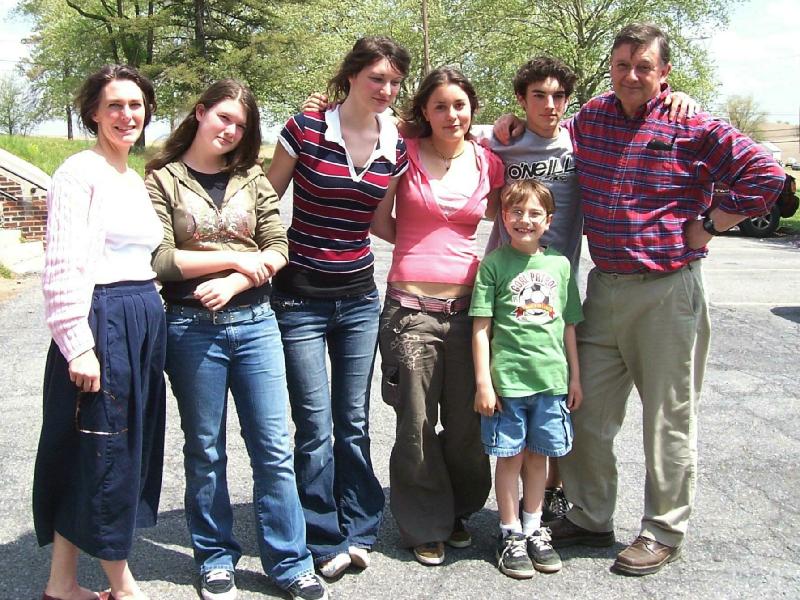
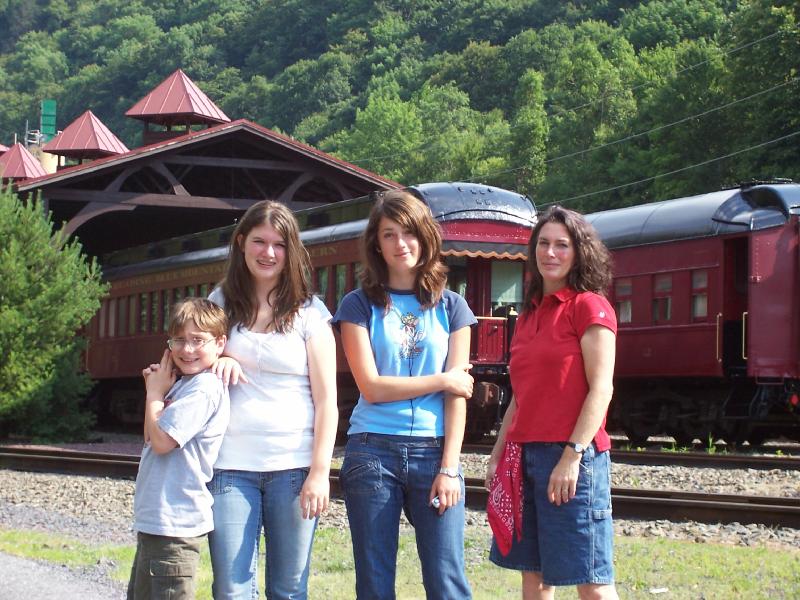
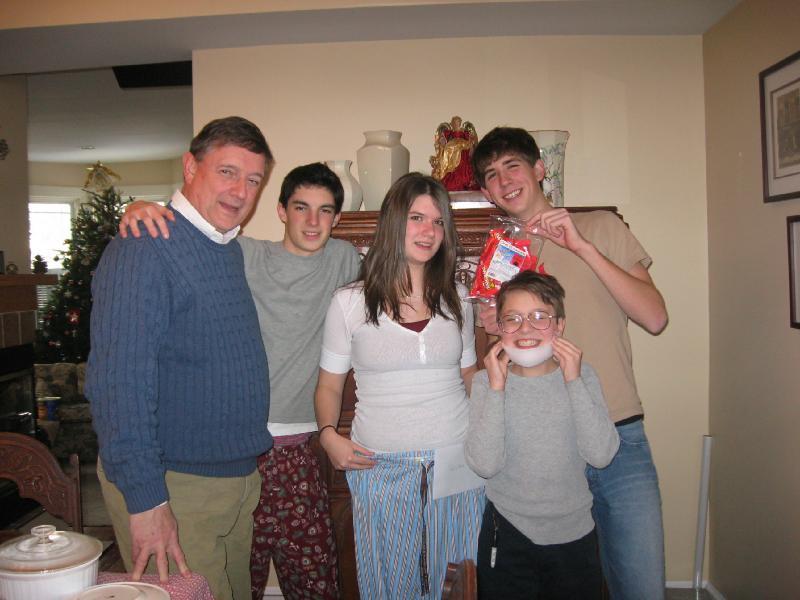
not a foreign student, but the son of my close friend, Bill, back in Mobile
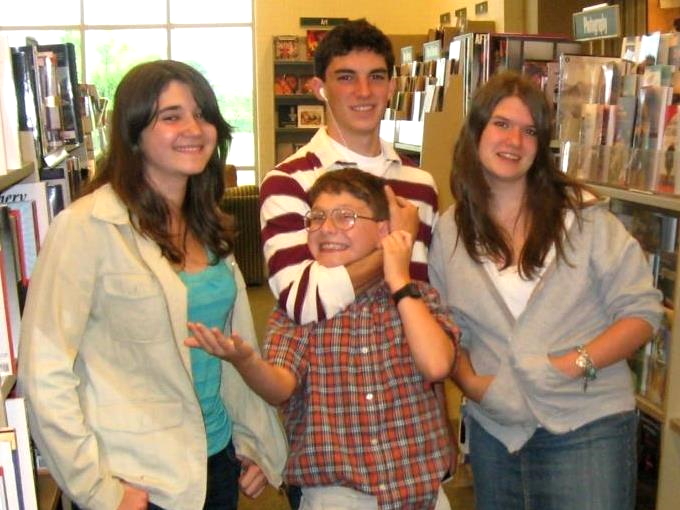
She would then invite Paul to join her soon after her return to Paris
... where her dad would let Paul fly his plane
from France to Germany and back (but not take off or land !!!)
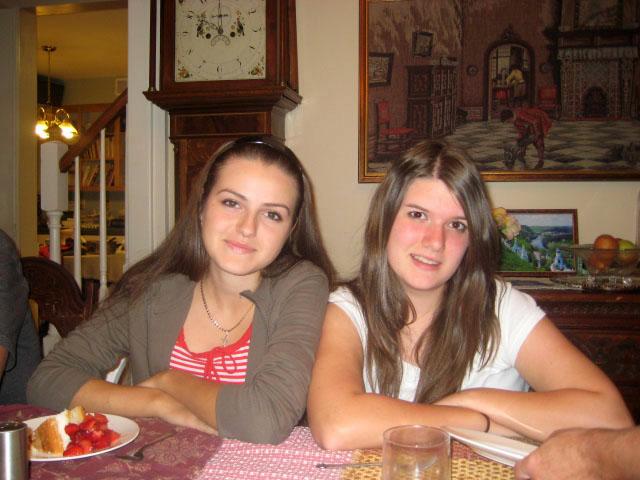
by Ukrainian (but Russian-speaking) Ira
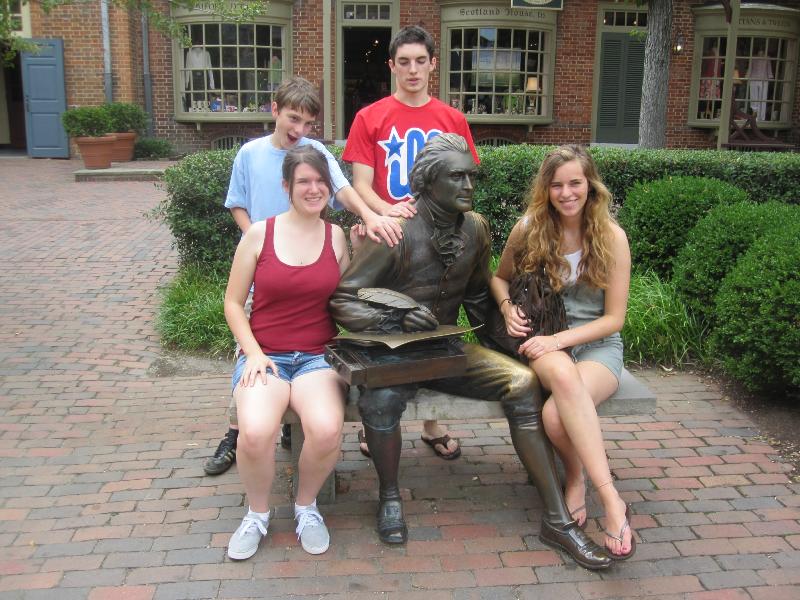
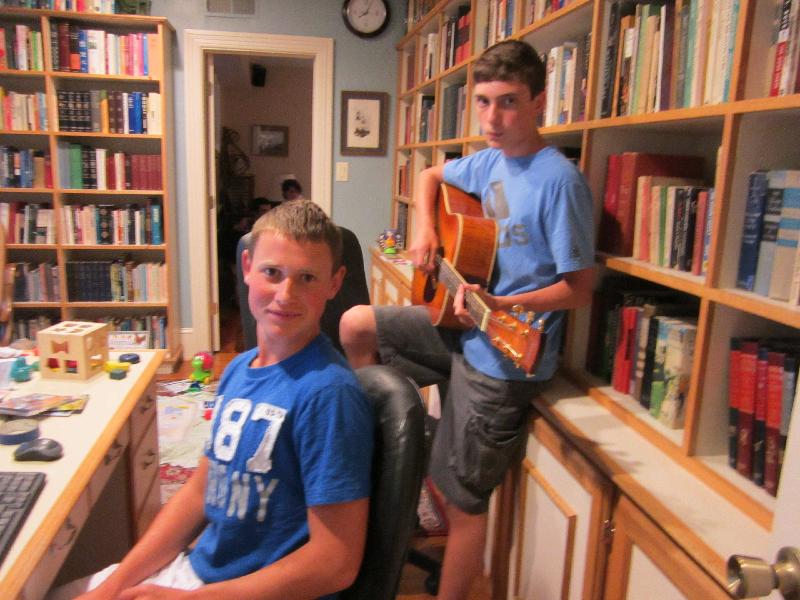
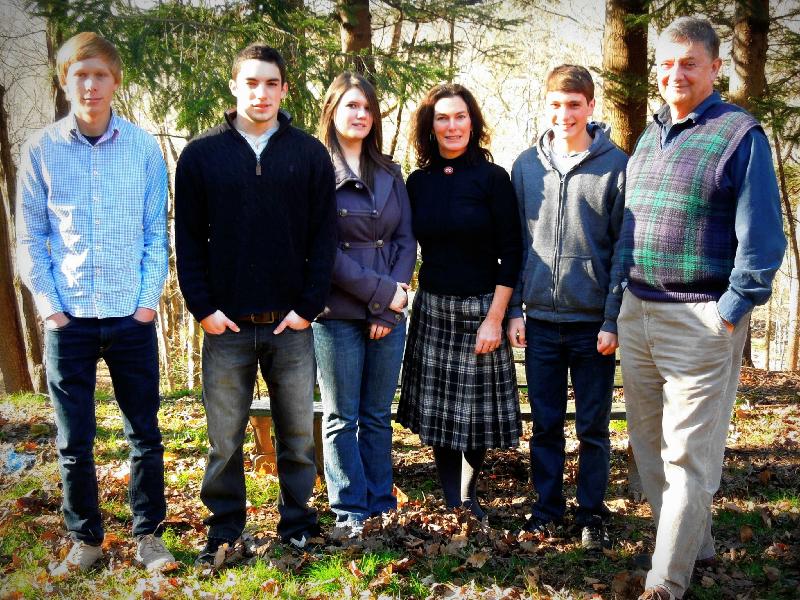
... giving me a chance to brush up on my Norwegian!
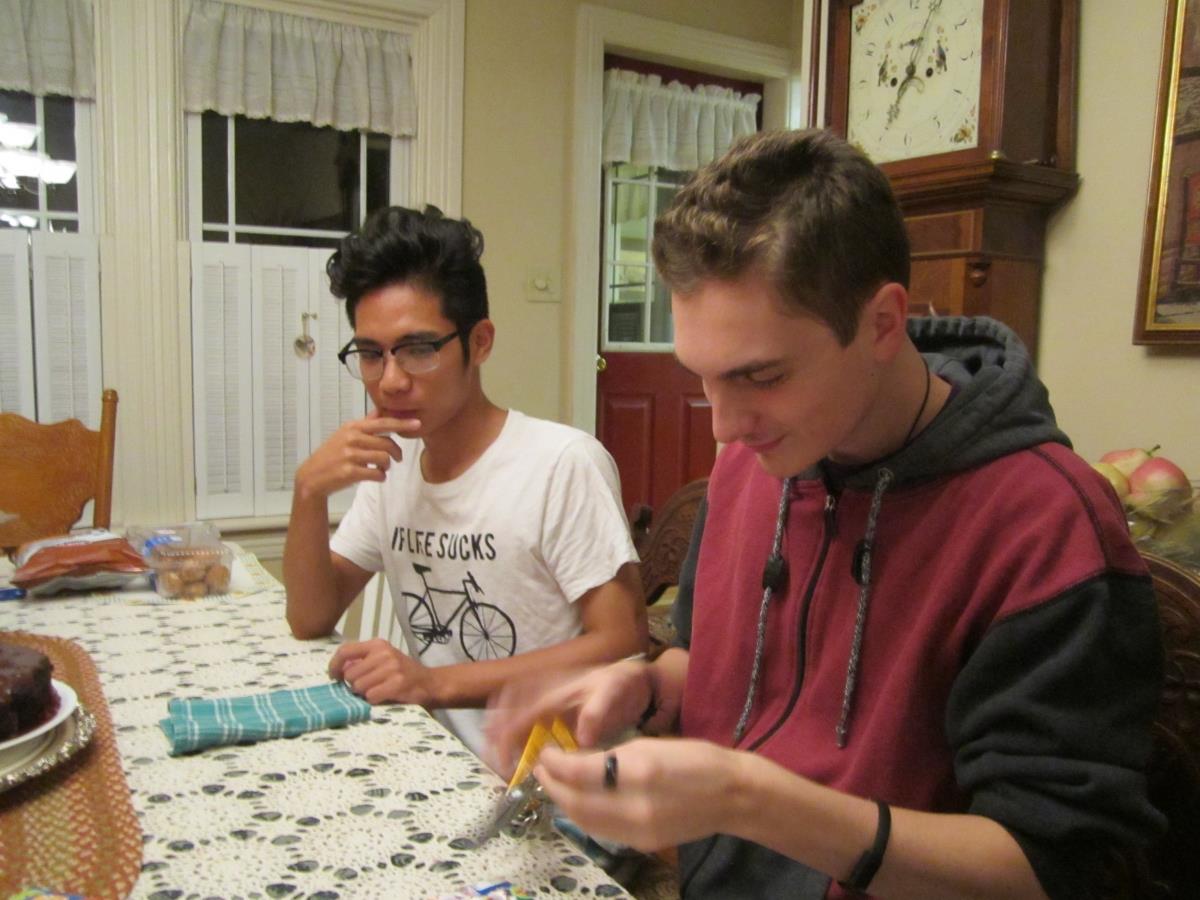
it would not be until the school year 2017-2018
that we took on another international: Dat (Vietnamese)
Then too our own kids were taught the wonders to be discovered in the disciplines of music and sports ... something that in going at these matters in that disciplined manner revealed to them what wonders in life could come their way. From just some serious study and practice they would find real wisdom as to how success in life itself actually comes our way.
They definitely were not taught that somehow they were just "entitled" to life's rewards by just showing up. They would have to apply themselves seriously to life's challenges ... if life were going to yield up its blessings.
Such discipline applied itself to all matters of life: work, study, human relationships, even the spiritual life itself. Morality was a matter of such discipline. "Plenty: was a matter of such discipline. Authentic friendship was a matter also of such discipline ... loving relationships requiring more than just "being in the mood" for such!
Thankfully they have learned these lessons well.
They all became quite capable musicians. They all took piano lessons ... and then went on to develop interest in other instruments (though the piano would remain John's primary interest): Rachel the flute, Paul the cello (and guitar and drums), Elizabeth the violin, and John the trumpet (and guitar and drums).
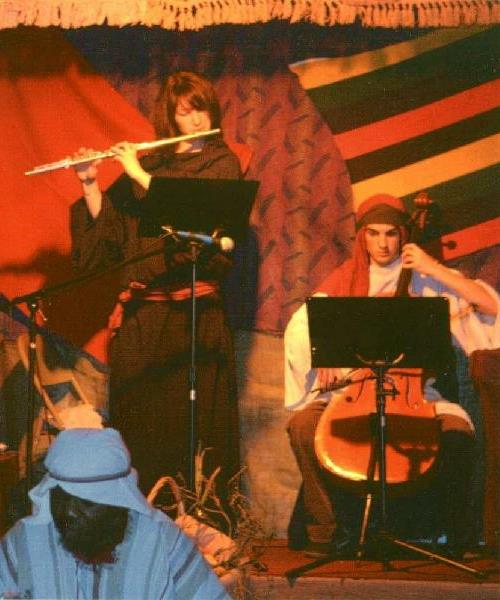
at the Lighthouse Church's Bethlehem Live Christmas event
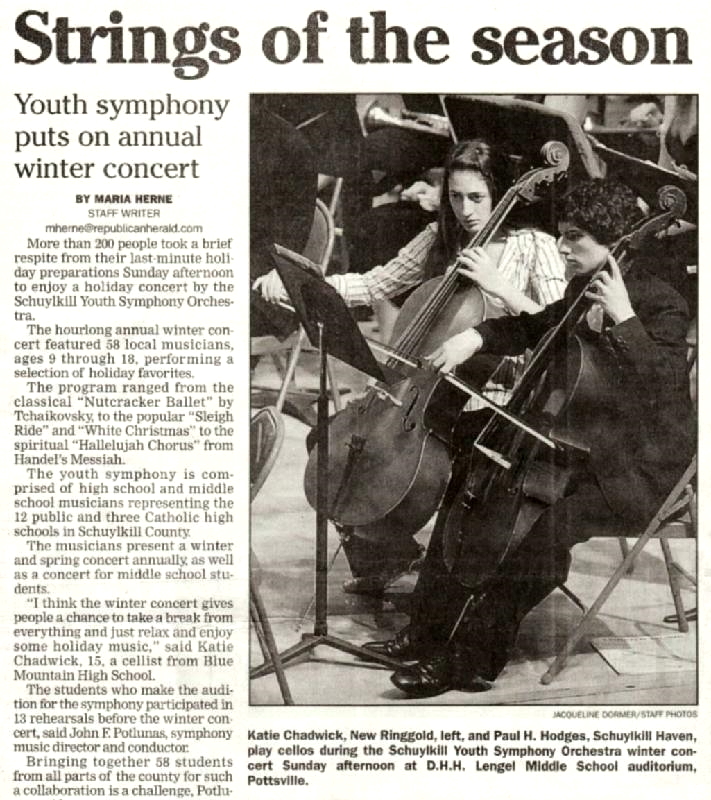
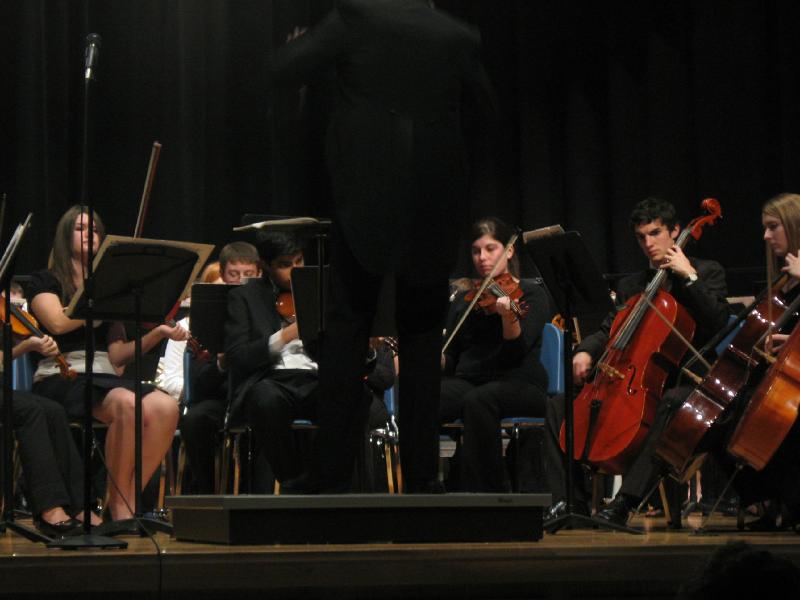
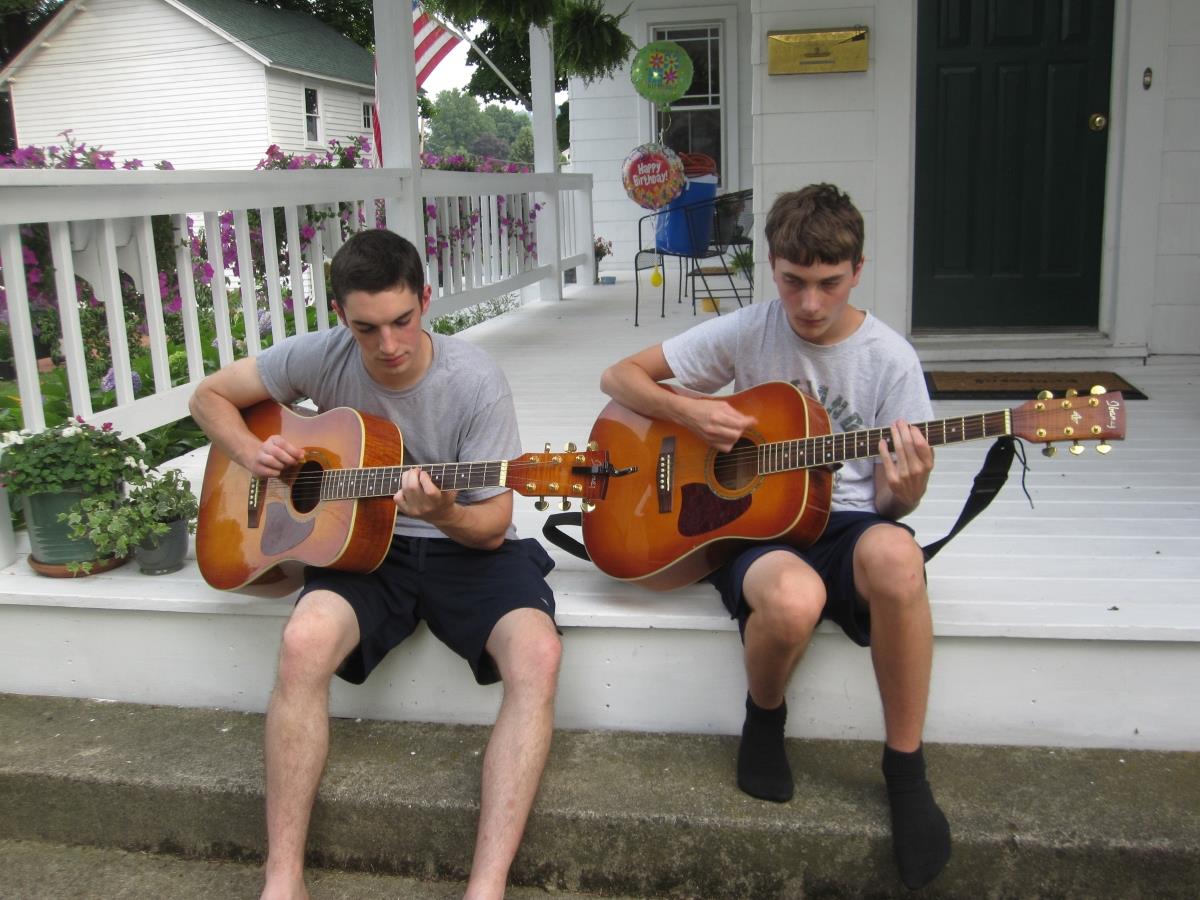
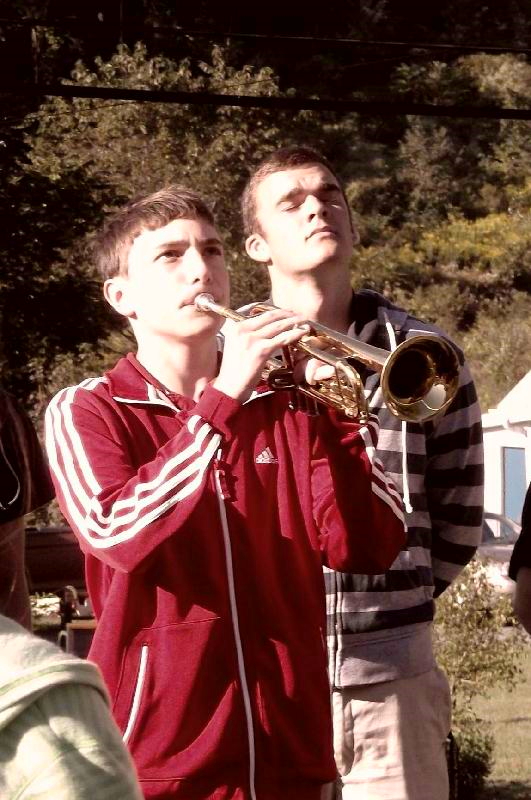
Soccer. High school soccer proved also to be a matter of great interest to Paul, Elizabeth and John ... although Paul made it a very central matter in his life, playing club ball across the state of Pennsylvania. He was offered a college soccer scholarship ... which he declined because he knew he was expected then to be a PE major, when instead he planned to major in political science and minor in history (and language study).

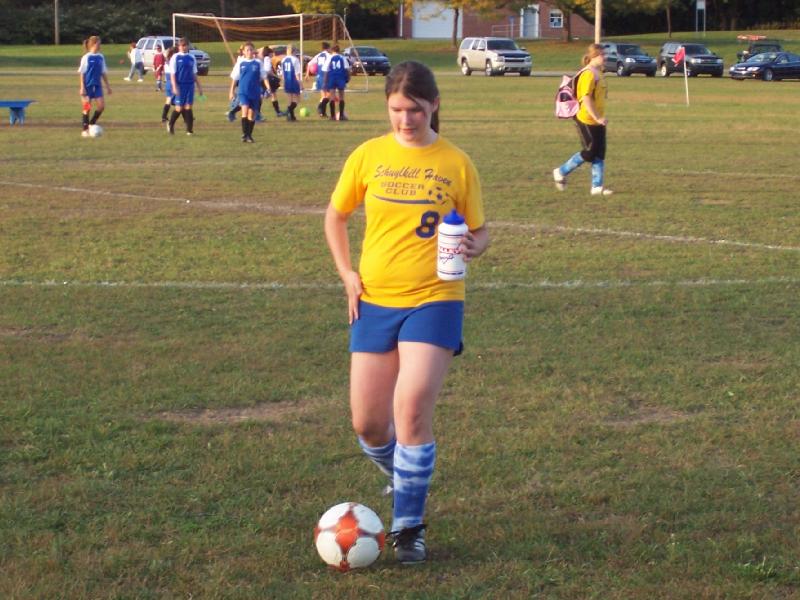
October 2007 - Elizabeth finishing up after playing soccer for the town's girls-soccer team. Paul, Elizabeth and John first played for the town's various soccer teams before moving on to play with the TKA school teams. Paul, in fact, helped put together the TKA men's team in 2007.
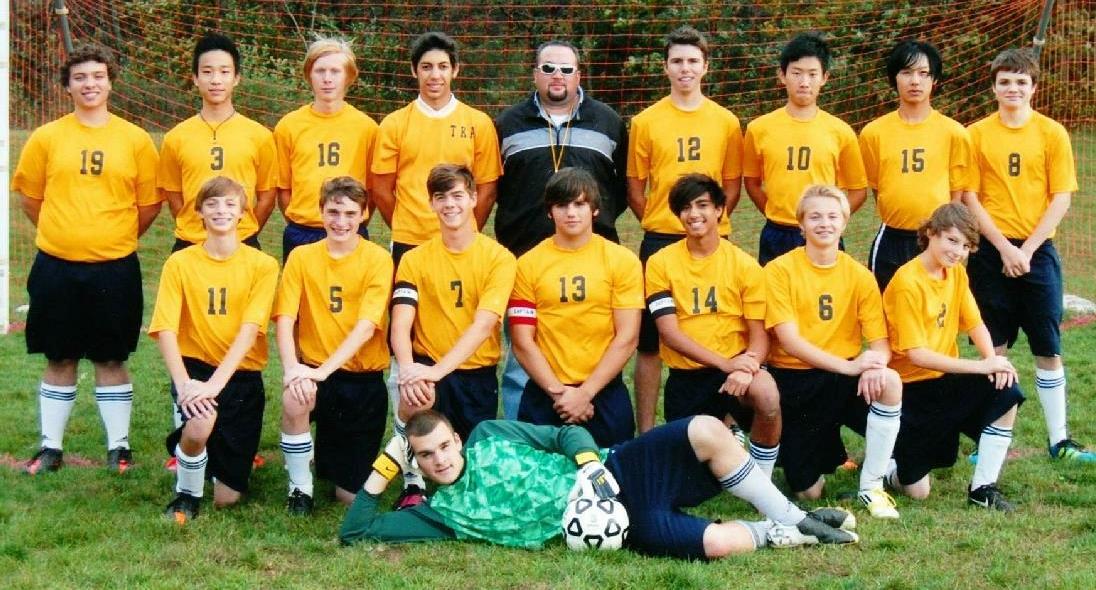
In early 2004 we bought a quite dilapidated dairy-farm house (which a newer subdivision had been built around) ... which had been converted into four rather unlovely apartments.
When I first showed this house we had just bought to some construction-savvy friends and family, they told me that I had lost my mind! What was I doing? This was crazy!
But I was determined that I would put my family in some decent quarters! And thus the rebuilding began ... the whole family involved.
We first of all (summer of 2004) updated deeply a newer apartment at the back of the house ... for possible rental income. That part of the project, keeping us very busy painting and refinishing things, went forward without too many complications.
Then (beginning that fall) we turned to the three apartments in the main part of the house ... which we were going to convert into our single-family home.
We hoped originally just to strip the walls of layers of wallpaper. But we found that the plaster beneath crumbled to dust when exposed. So it all had to go, plaster and lathe strips ... down to the studs. But at least this left us with the possibility of more easily installing our electrical circuitry, plumbing, and wall insulation.
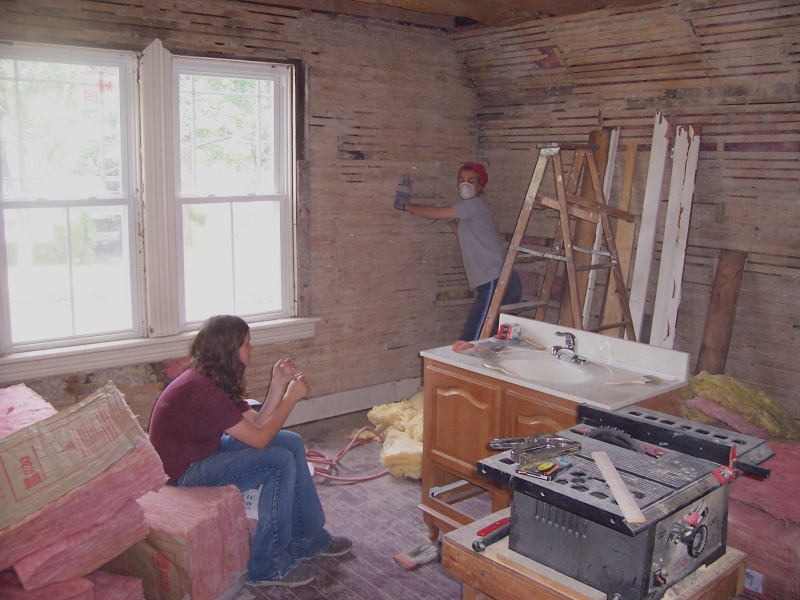
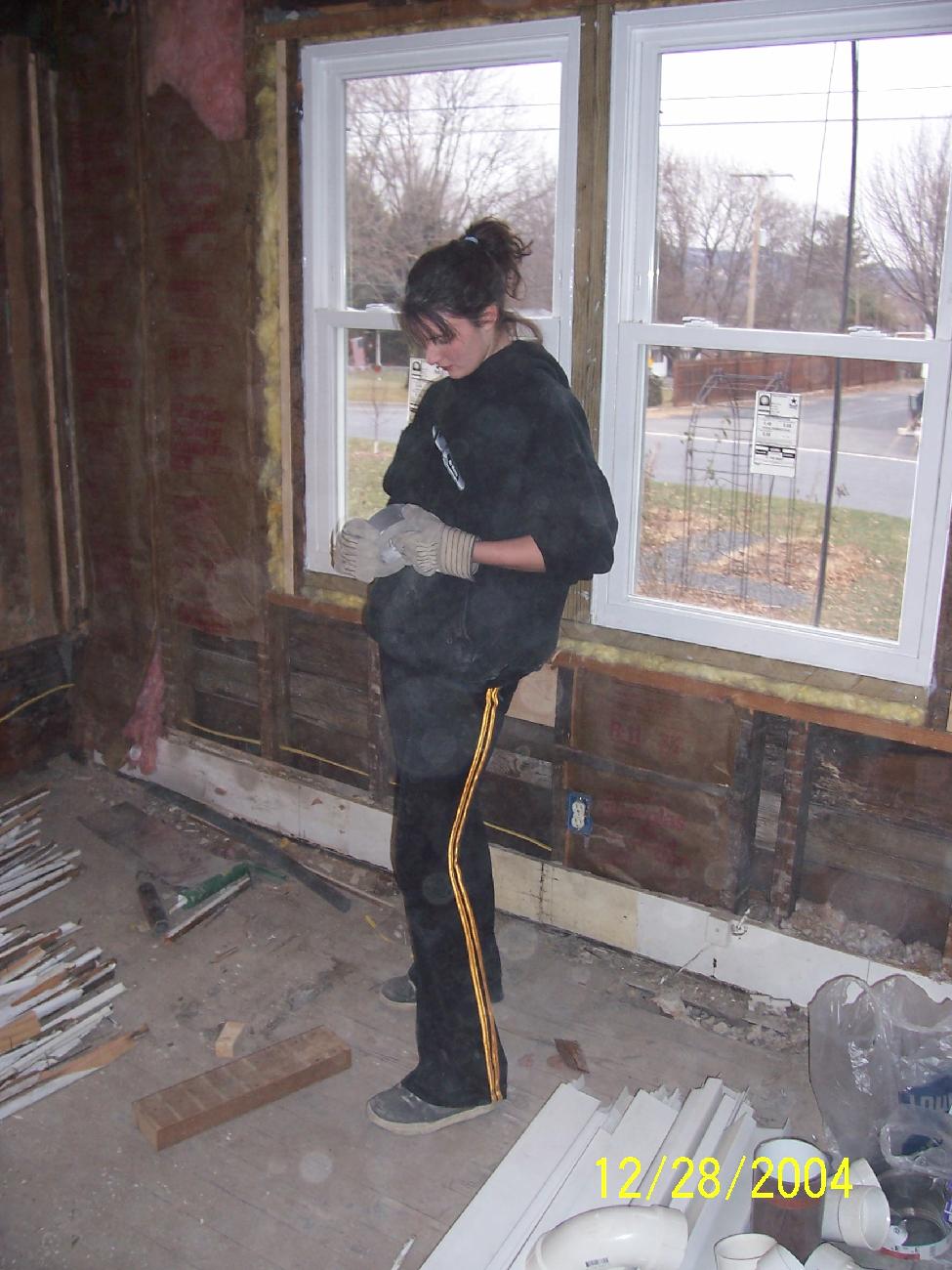
We built from scratch ... everything: electrical, plumbing, cabinetry, floor finishing, etc. Most of the work was done in the 2004-2007 period, though it would take me all the way up to 2009 to put the finishing touches on things.


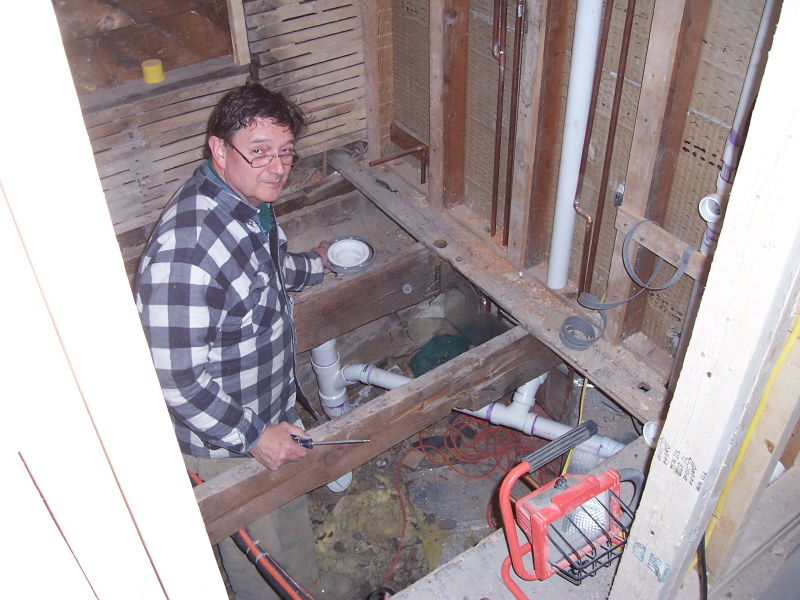

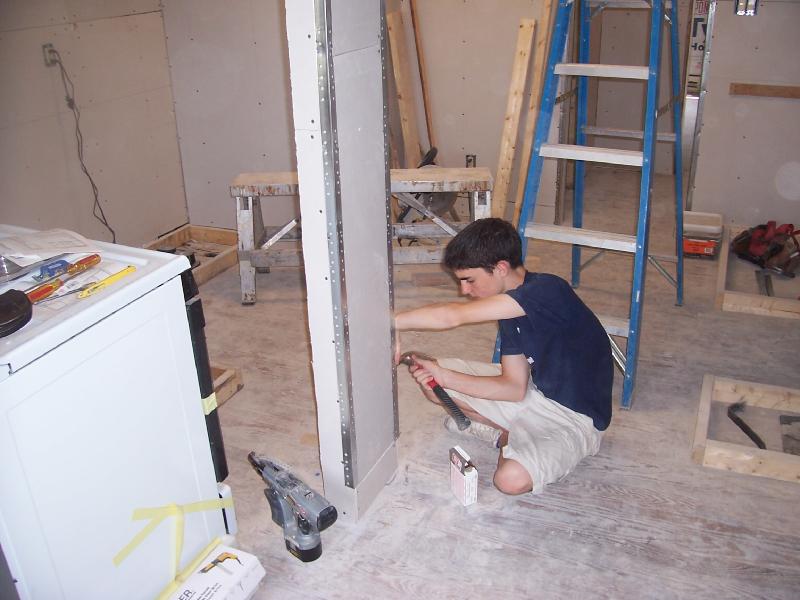
... and learns a lot in the process
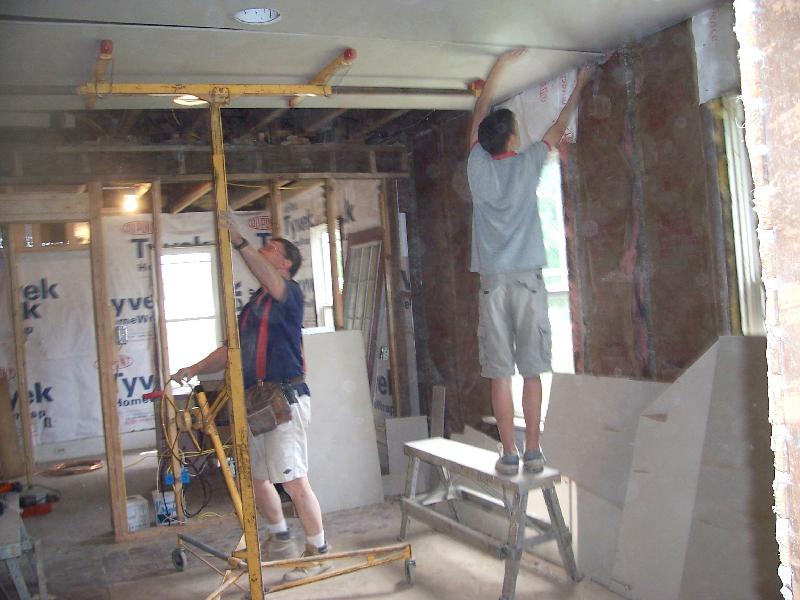

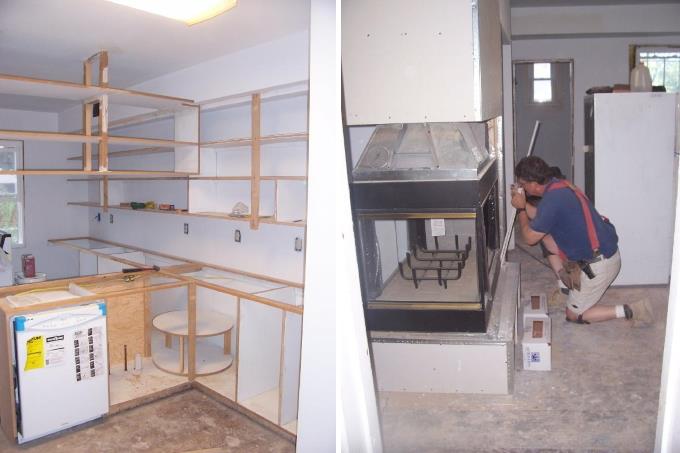
By Thanksgiving (2005) we had everything ready enough (floors on the first floor refinished just days earlier) so we were finally able to move in. The five bedrooms on the second floor were also finished ... except for the floors. That would have to wait a bit before we could tackle the second-floor refinishing project.
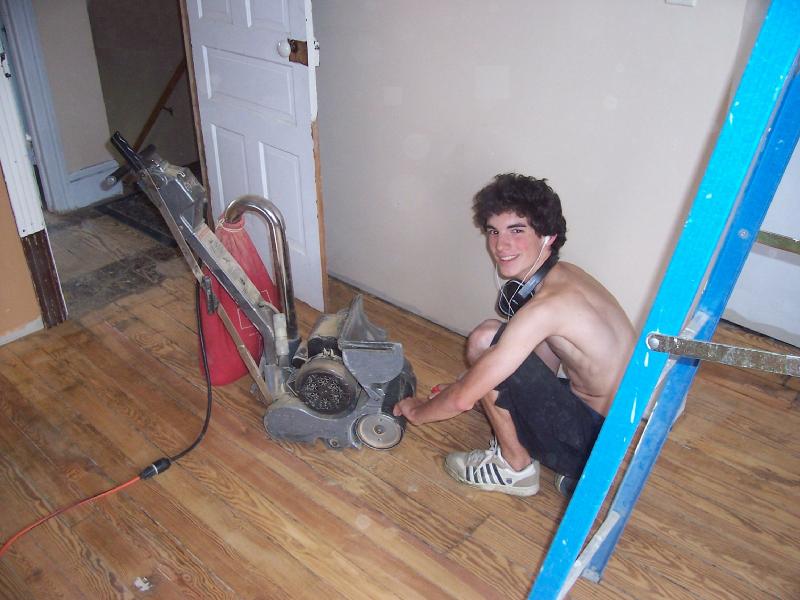
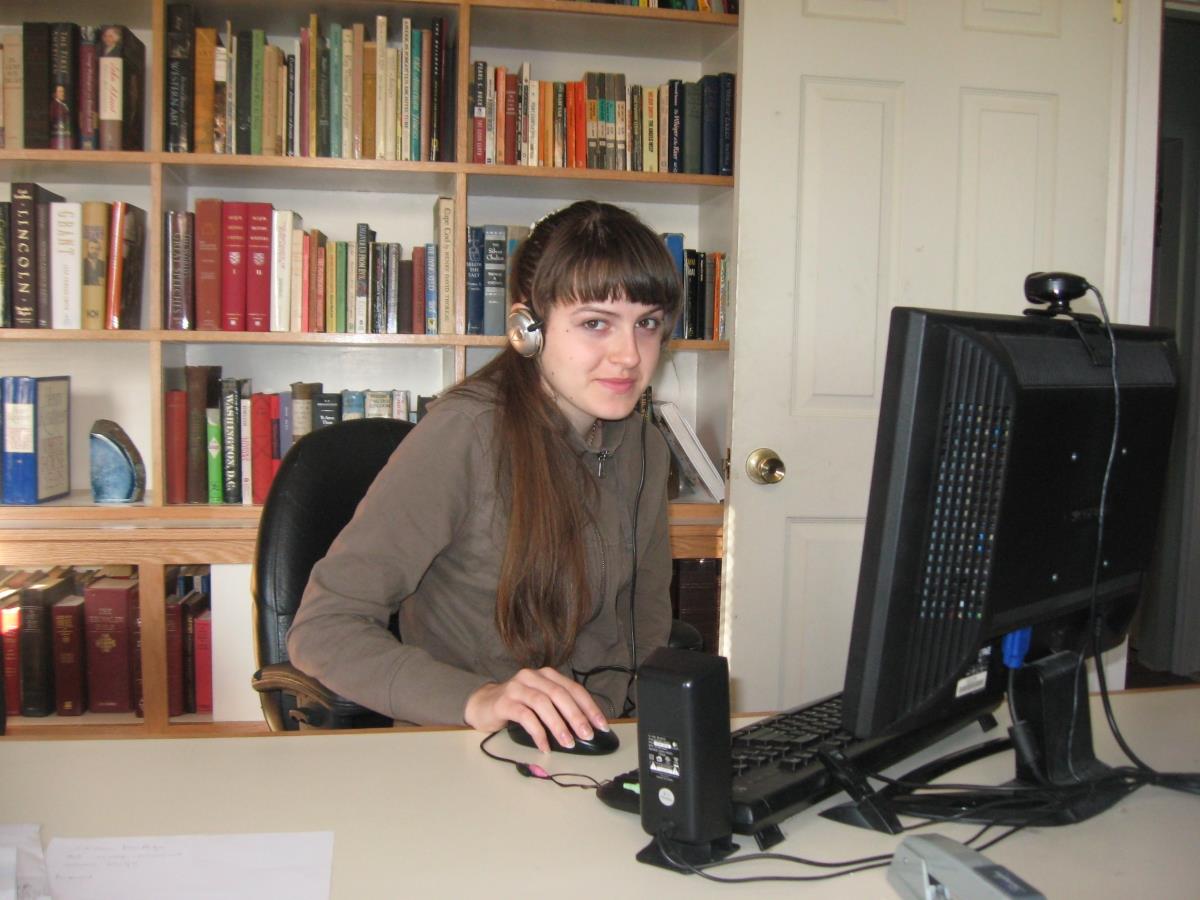
But the huge library and "superdesk" project does not get underway until the summer of 2008 ... just prior to Ira's arrival.
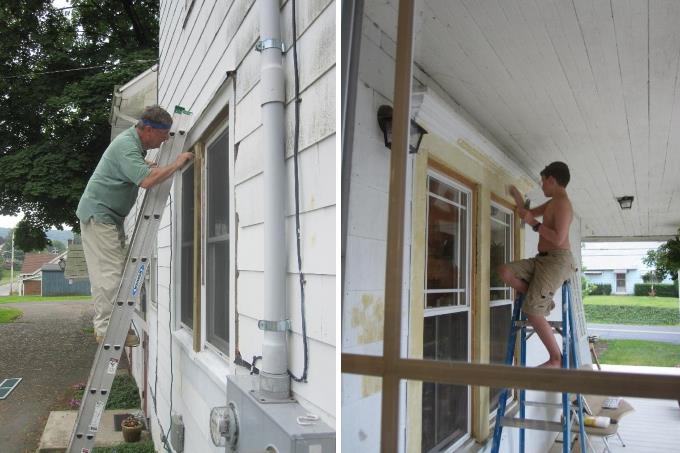
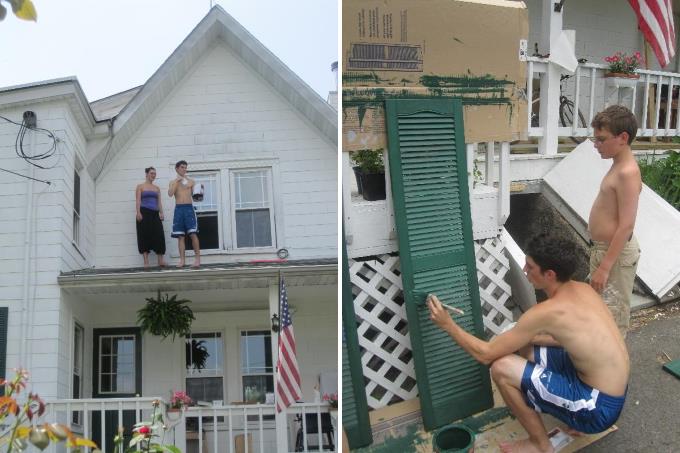
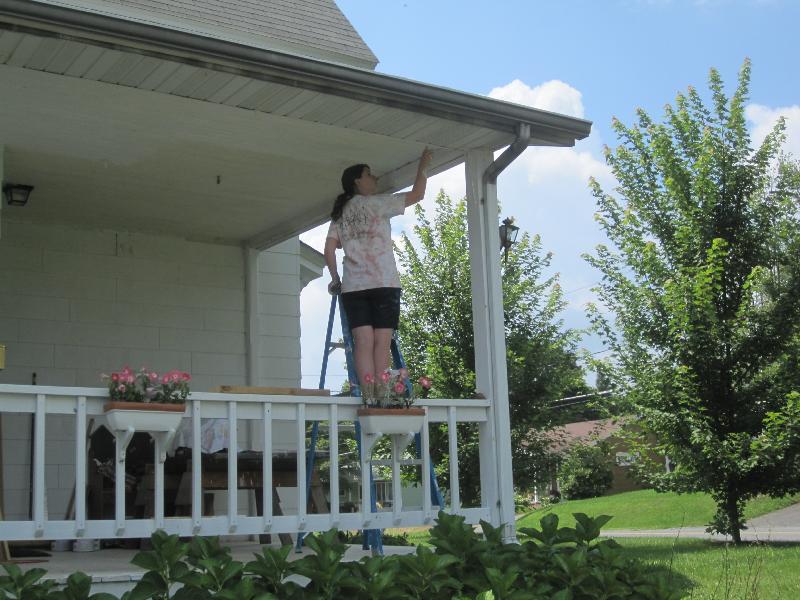
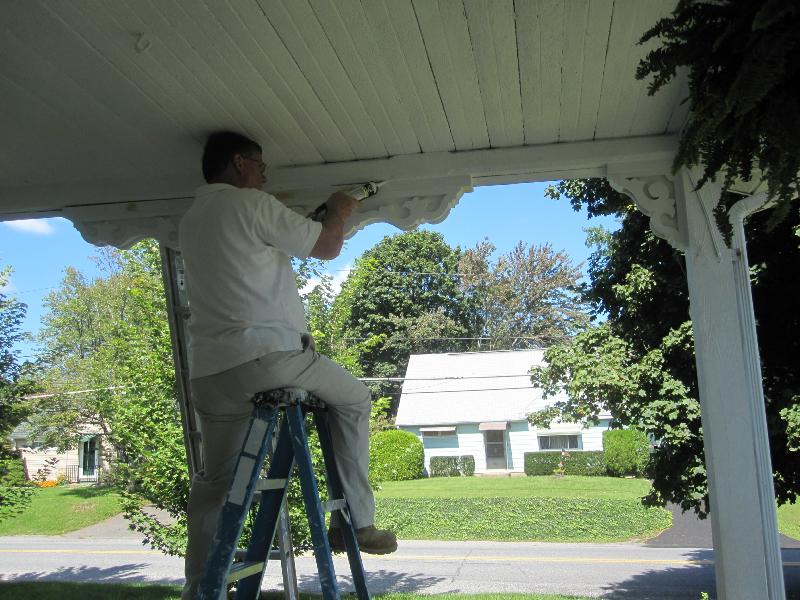
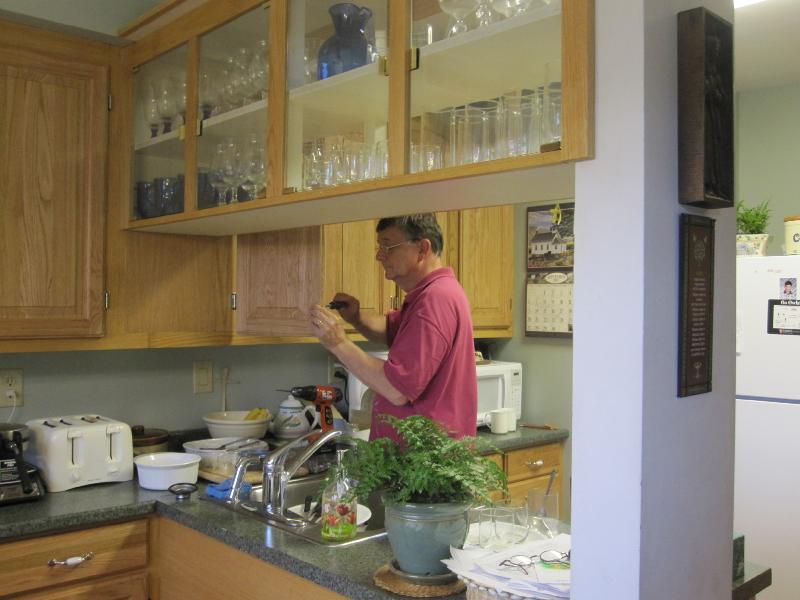
The kitchen cabinets still did not have doors for them. I thus took up that project that same summer (2009) ... and cut and shaped the cabinet doors from mere oak planking ... enjoying it all (the architect in me loving this challenge).

(I'm still working on putting doors on the library cabinets!)
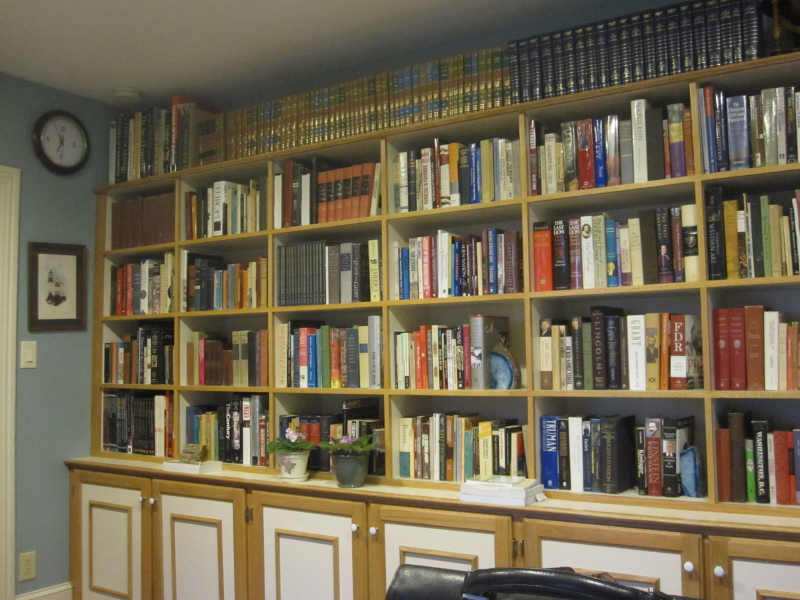
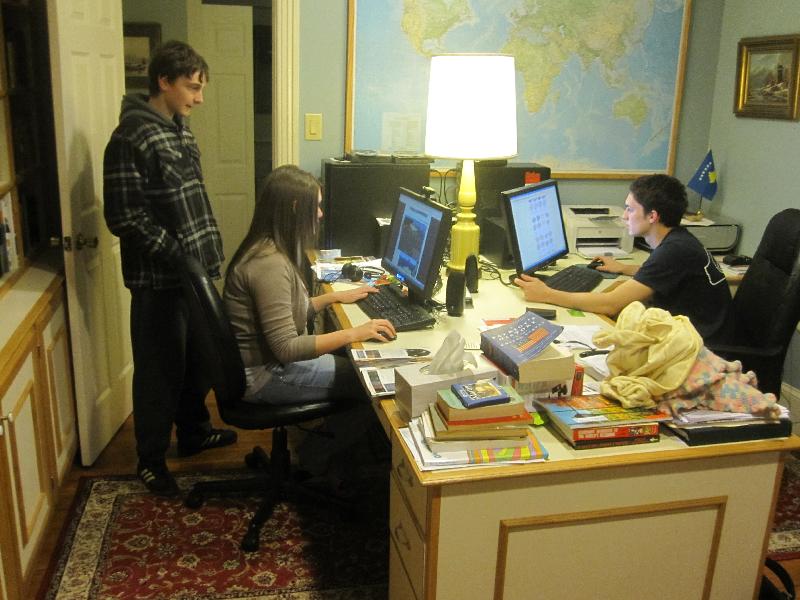
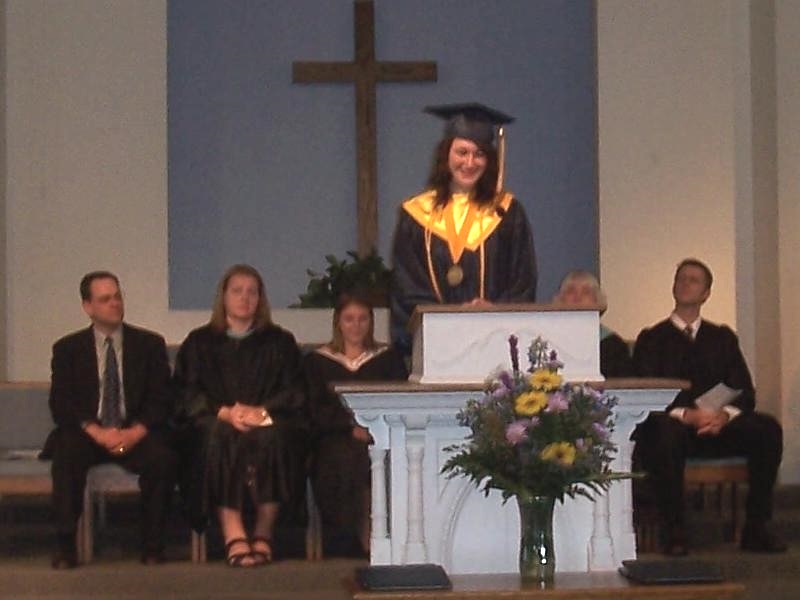
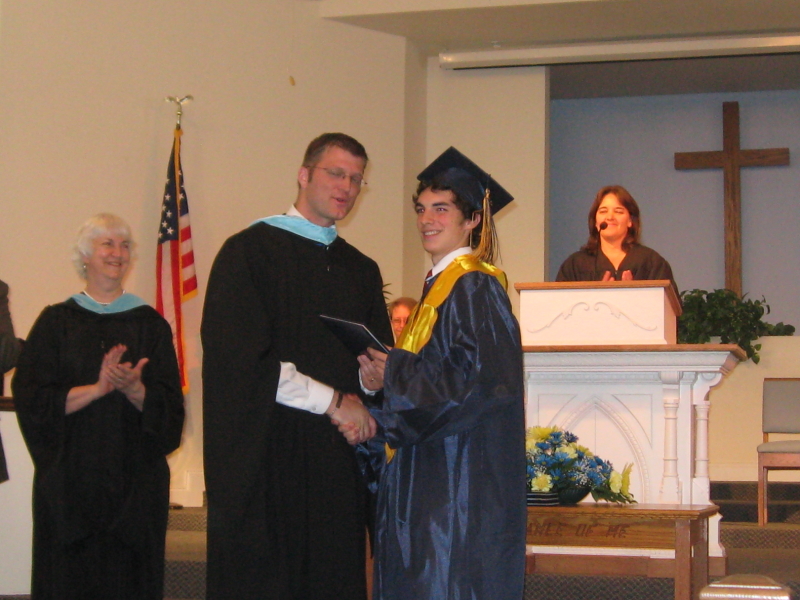
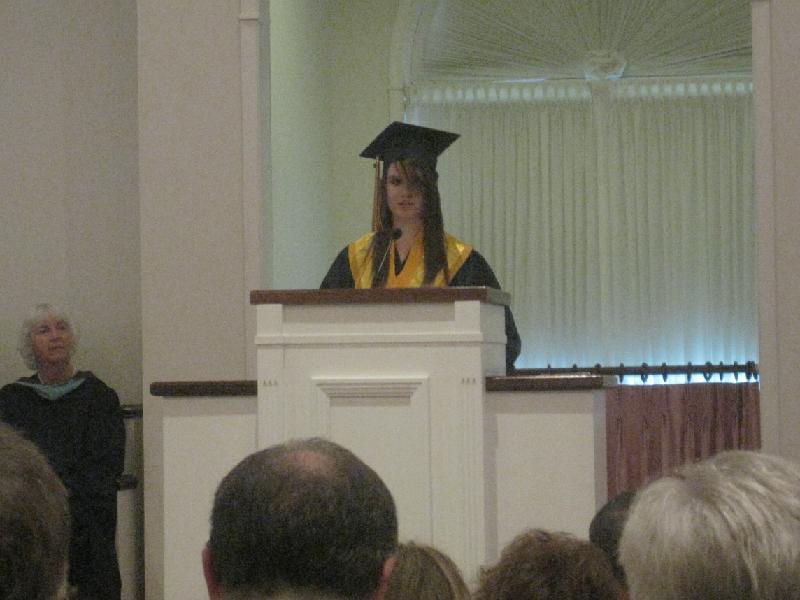
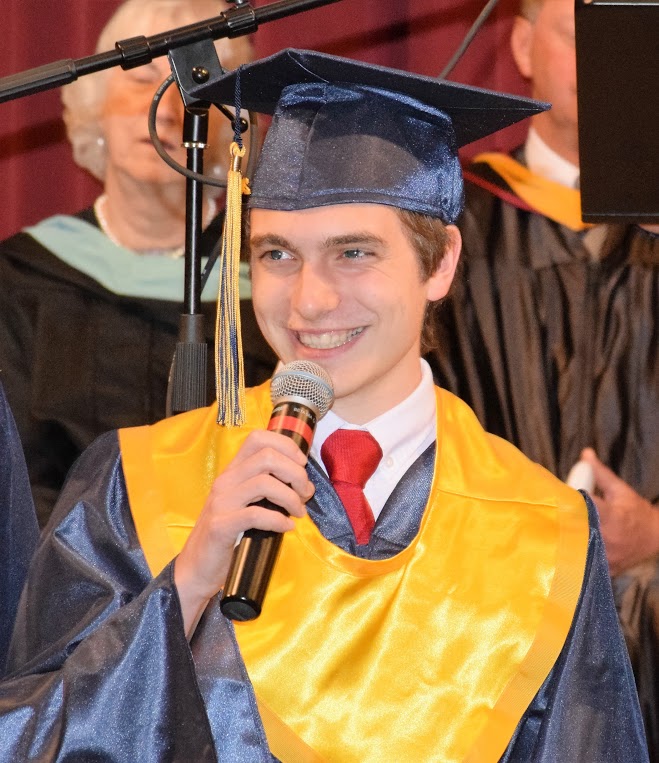
June 2016 - When asked to comment abut what they learned at TKA, instead of gushing on at length like the other students, John answered with a single word: "perseverance." His fellow students all laughed. They understood what John had been put through by a couple of the teachers who (for reasons understood by none of us) took great pleasure in giving him a hard time!
Kathleen and I stressed upon our children the importance of coming to know personally the different ways that other cultures go about life! And in support of that idea, I had the wonderful opportunity to help them build a strong working knowledge of French ... which they had numerous opportunities to put to good use. And of course they heard not only at school but at home over the dinner table all sorts of not only social-political analysis, but much discussion of spiritual matters and what that meant to both America and the world. In so many way, by the time they graduated from TKA, they had a huge working knowledge of the world and its ways.
But ultimately, it was time for them to be off ... to do the world now on their own. College of course awaited them. But even beyond that, there was a huge world out there waiting for them. And they all went at that world in their own ways ... big time!
Rachel was the first, of course, to head out on her own. She was admitted to the Penn State main campus as a freshman, studying the humanities. And not surprisingly, she did quite well.
But her second year troubled her ... largely for social reasons rather than a matter of academics. And she came home, tired and depressed after the first semester of her sophomore year. She refused to return to her Penn State world for the spring semester. Then she decided to transfer ... to St. John's College in Annapolis – a very unique college that offers only a single humanities course of study, built heavily on the Great Books. But it would not be until the coming fall that she could start up there.
She loved St. Johns! But she ran into trouble when she overstepped the new attendance restrictions (interestingly, they had no grading system ... or grade restrictions), getting sick one too many days, forcing her to have to reschedule two of the four courses for the coming school year. But rather than just continue to follow the other two courses she, once again, simply came home ... deciding simply to start completely anew the next fall.
But that's when she met Rimi ... who challenged her to explore a more spiritual world – which seemed to be the true dynamic challenging her life. Indeed, he invited her to come to Kosovo ... and learn directly about spiritual warfare.
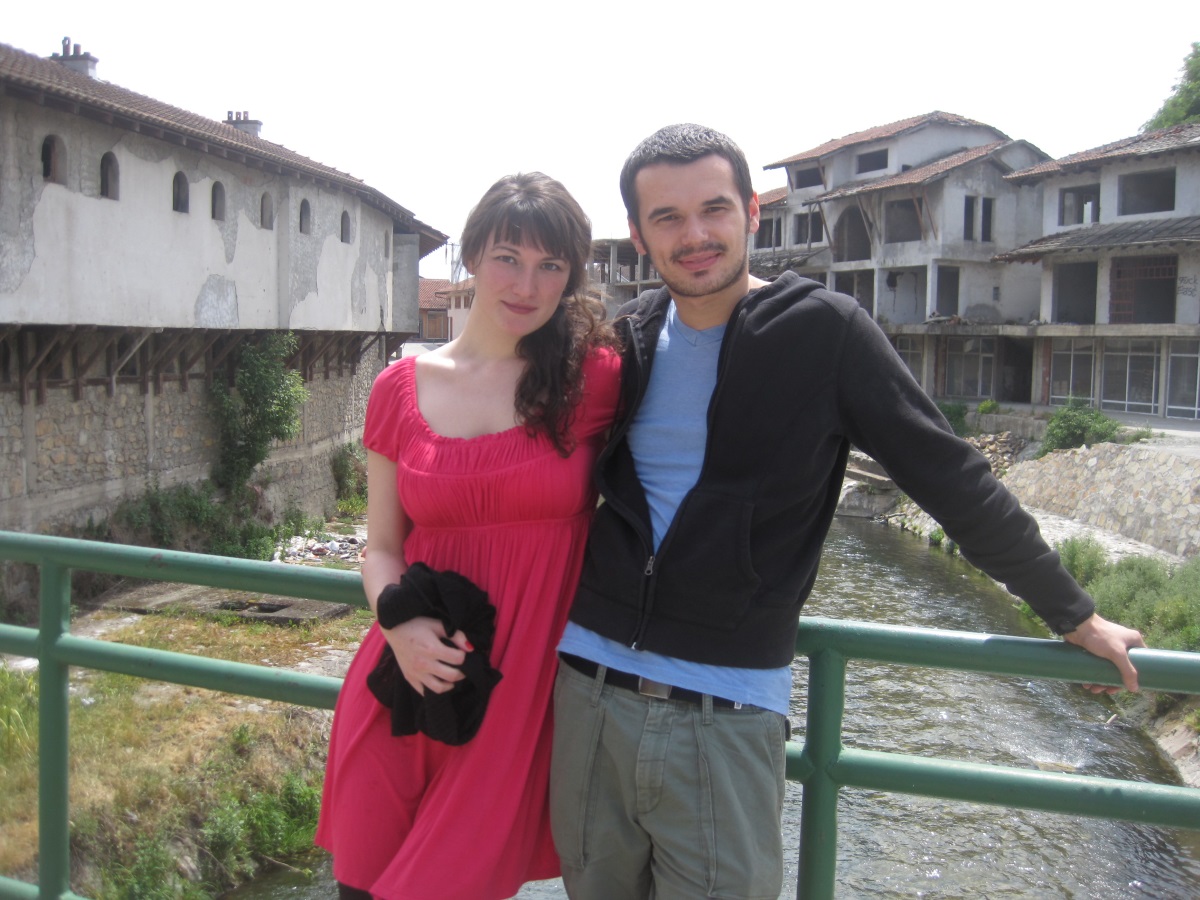
February-July 2010 - Rachel in Kosovo with Rimi learning first-hand about serious spiritual warfare ... from a young man who had been through the hell of ethnic cleansing (Serbian "Christians" had slaughtered numerous members of his nominally Muslim family) ... but who nonetheless was led to the Lord Jesus Christ by an American history teacher at the University of Pristina (Rimi was a philosophy major there).
Rachel returned from Kosovo that July ... a very focused individual. Part of that focus was the decision of Rimi and Rachel to marry that very next month, August.
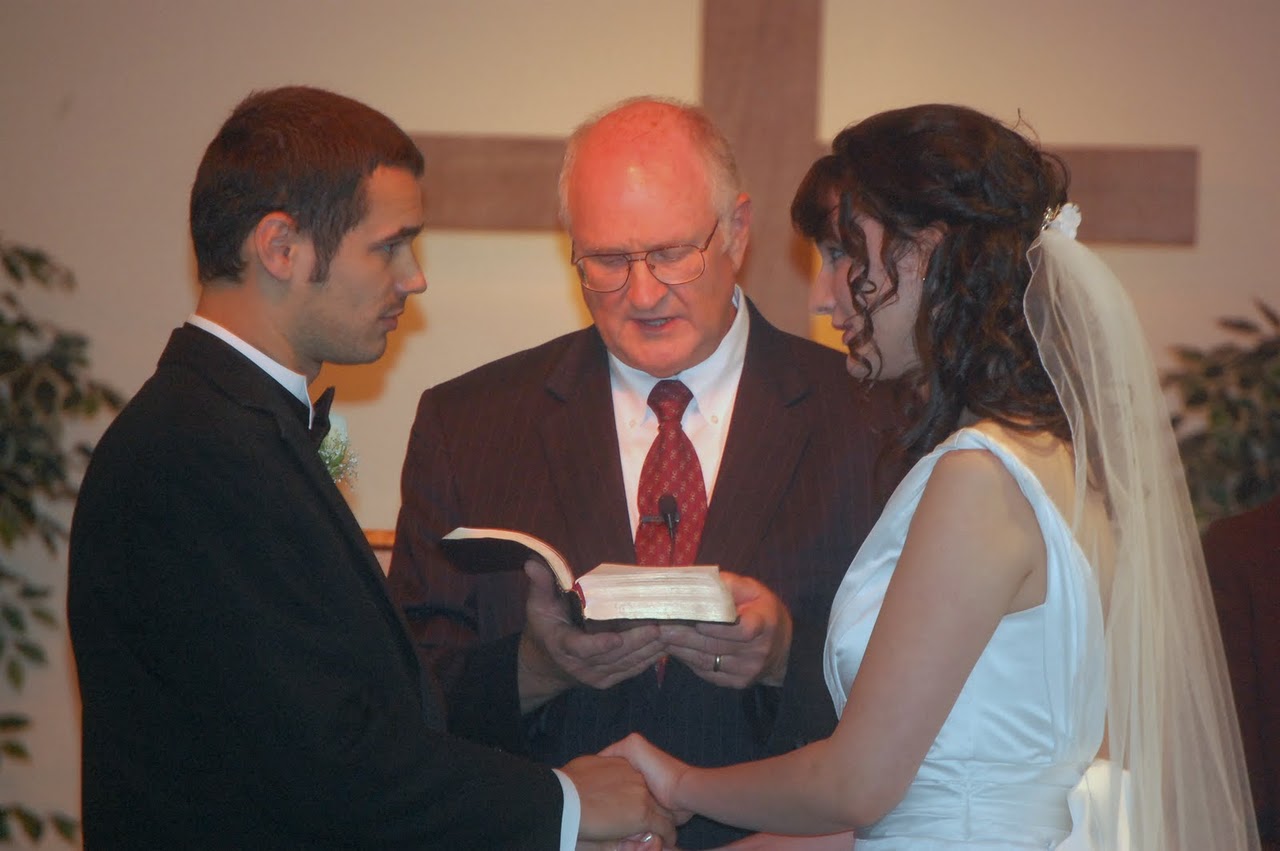
Rachel and Rimi, thanks to a number of various grants, would soon take off to Hawaii, for Rimi to undertake master's study in theology at the University of the Nations ... then return to Pennsylvania for Rimi to write up his thesis (and work at a warehouse to support the family). At this point their daughter Anna was born. But then (again, thanks to a number of special grants) Rimi, Rachel and Anna headed off to Gordon-Conwell (just north of Boston) for Rimi to undertake formal seminary training ... and Rachel to work on completing her college degree (Gordon College and some of the local colleges in the area, plus finalizing her degree work at Penn State online). They would return to Pennsylvania, for Rimi to take a position as an associate pastor at a local Methodist church, just a block away from the Hodges house (!) ... although they would reside, along with yet their next child Peter, at the church's own parsonage. And here they would dig in to do Christian ministry for the next five year.
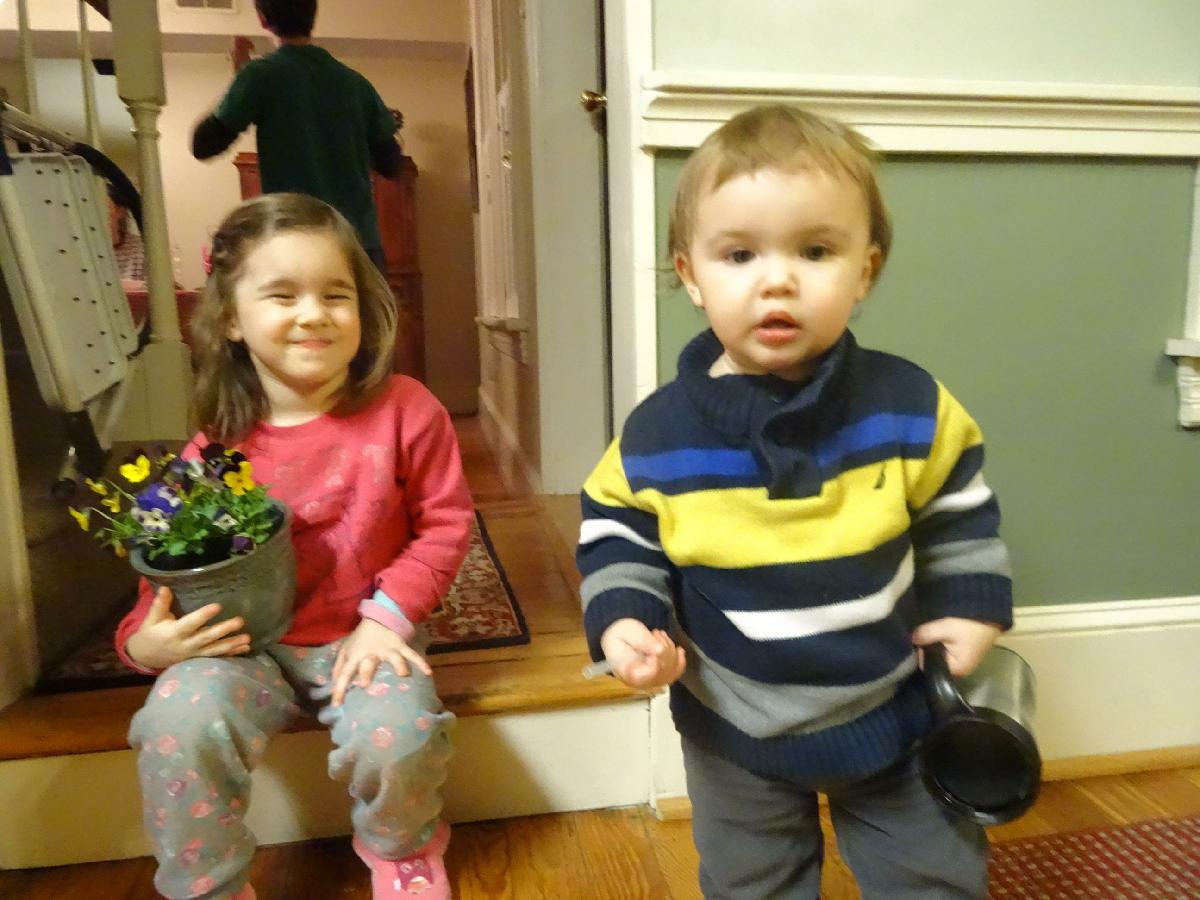
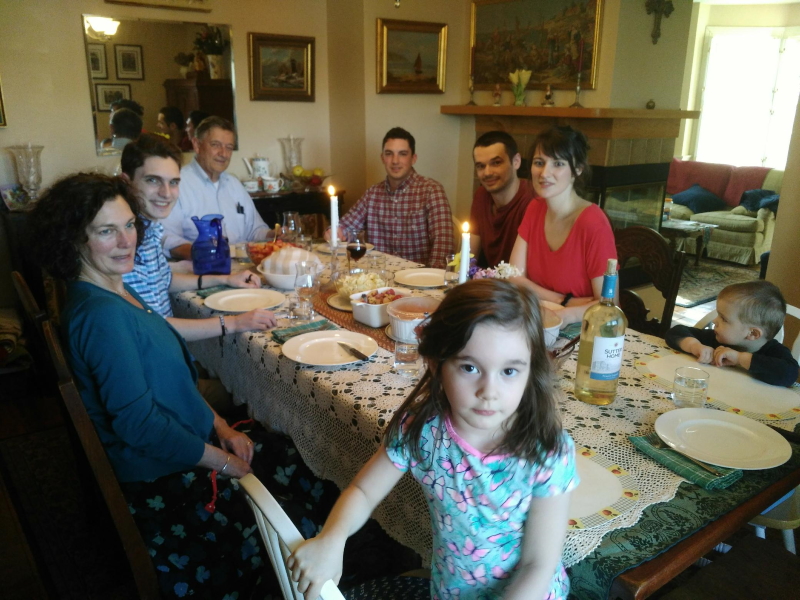
about to have Sunday dinner together after Easter worship at Rimi's Methodist church
(Elizabeth taking the picture)
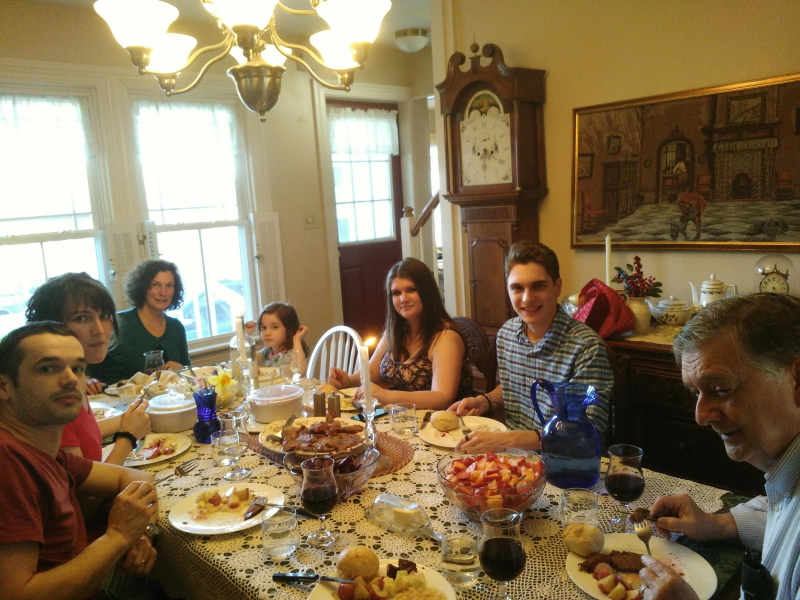
(Paul taking the picture)
But in the meantime, it would not be long before Rimi would look to a doctoral program in theology ... this time abroad, in England at the University of Birmingham ... where he could work online, plus work directly in Birmingham (and enjoy some great vacations with his young family!) during the summers. He would take up as his dissertation the matter of the "signs and wonders" that accompanied the ministry of the Methodist circuit riders as they brought the gospel to the American frontier families in the early 1800s. It would be tough going ... with some serious challenges along the way. But eventually his dissertation would be approved, Rimi would receive his Ph.D. degree, and his dissertation would eventually (2021) be published by Wipf & Stock as The Supernatural and the Circuit Riders: The Rise of Early American Methodism)
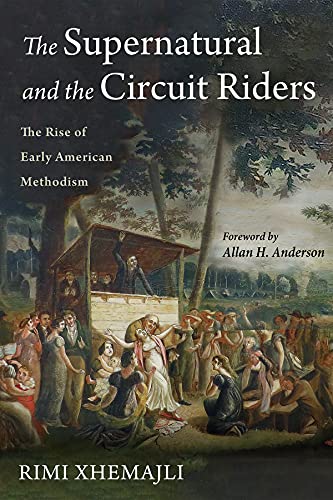
Paul headed off in the fall of 2009 to Temple University in Philadelphia, to follow a pretty standard educational program in political science and history. What was not standard was the education he got from the "streets" of Philadelphia themselves. By choosing to attend Temple University, Paul placed himself in a very dynamic Black-White cultural mix.
His first or freshman year he lived in a campus dorm ... and attended on Sundays a quite Black Presbyterian Church located nearby. That offered him a most positive introduction to the dynamic.
But the next or sophomore year he moved off campus, to a very nice townhouse apartment in all-Black neighborhood, and there got to experience first-hand the level of violence that characterizes such neighborhoods. In his very first weeks in the neighborhood, he got to witness from his window one young Black shoot and kill another young Black ... and learn that nothing much by way of consequences would follow this event – because it simply did not have the right political characteristics. Another time he was driving to campus and stopped at a light, just in time to see a Chinese restaurant owner chasing and shooting at some Black kids who had just fled his restaurant. Again ... nothing like this would stir the interest of the press.
He thus learned how Black Lives Mattered ... but only when a White was involved – not as a victim (which was not infrequent) but when a White (usually a cop) was the "cause" of a shooting tragedy (the event always taken out of the larger context which had the policeman act the way he did). This was all very instructive to Paul about how such politics is designed to go.
The next or junior year (2011-2012) he moved back to an apartment next to campus ... and then took the spring semester of 2012 off to head to Europe, to write a research paper on the Libyan situation ... and to study German at the Goethe Institute in Freiburg and then Italian at the British Institute in Florence. Here he became close to a number of European students in the process, in some cases very fancy company. In any case, this would deepen even further his awareness of and involvement in the larger or surrounding world.
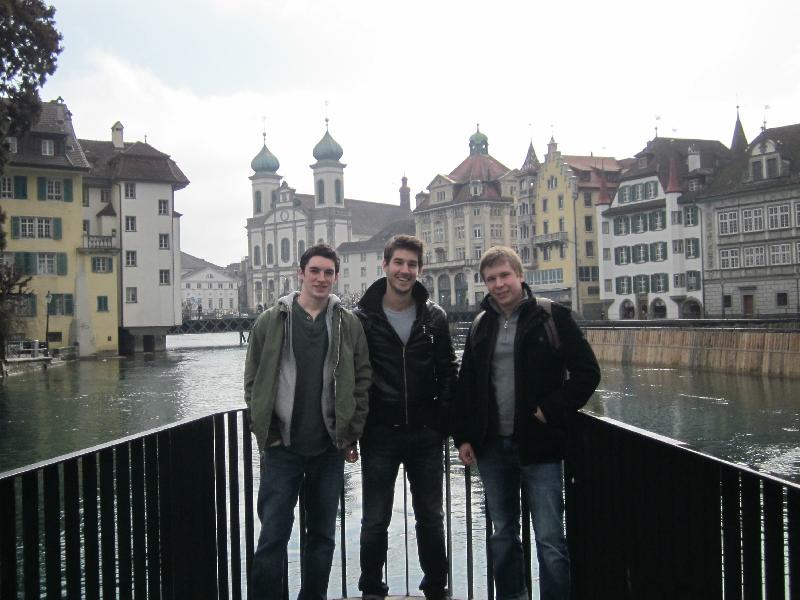
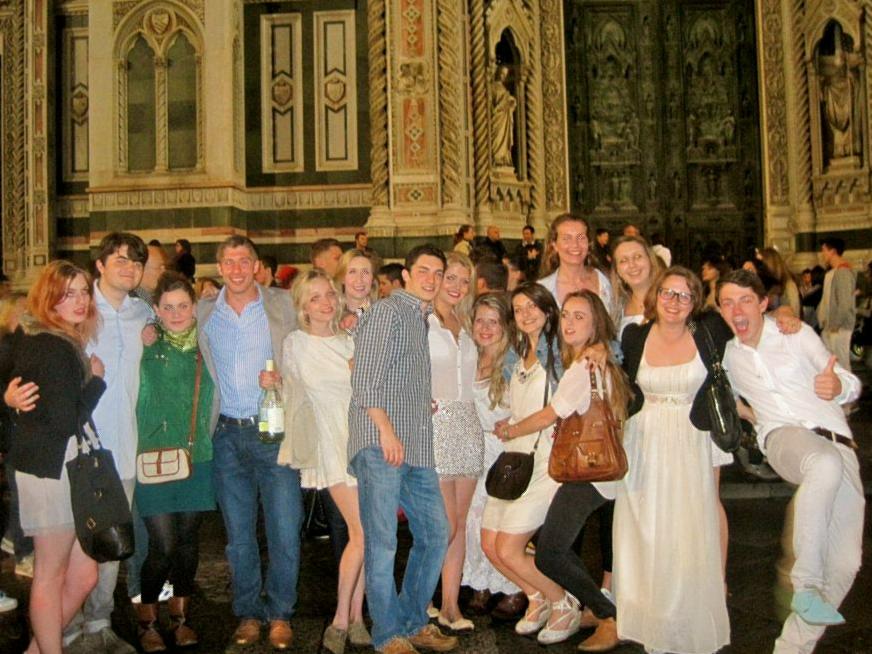
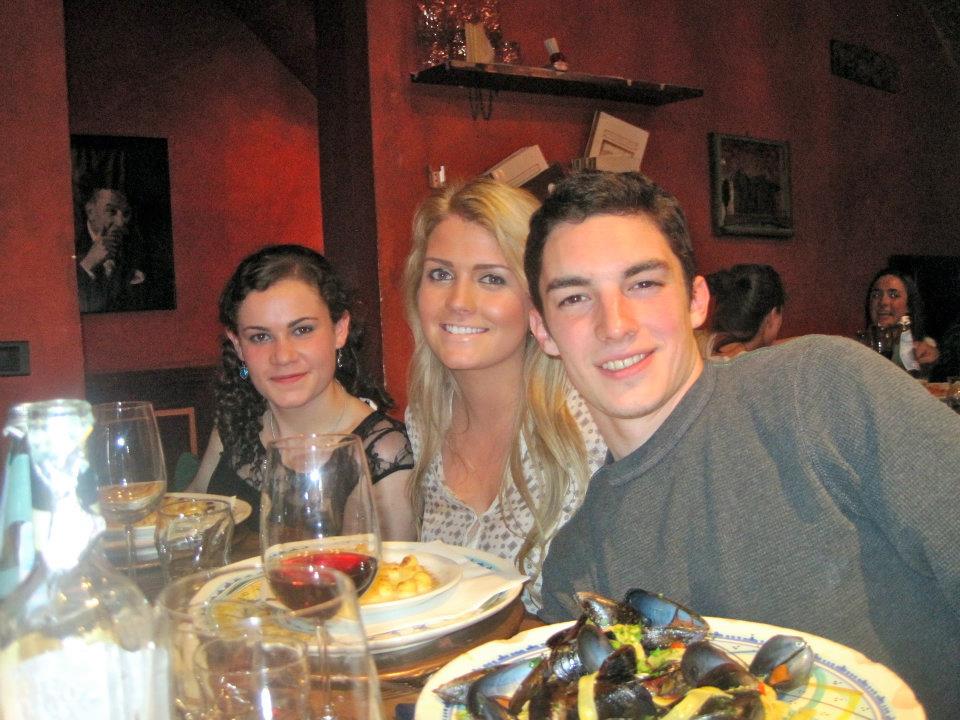
Also it was that while he was in Florence that he learned that back at Temple a group of masked Black males had entered at gunpoint a neighboring apartment where friends of Paul's hung out (Paul too most likely if he had been there at the time), to rob them of whatever goodies they could get ... in order to support their obvious drug habit. Here too, nothing ever came of the event. Life simply moved on in Philadelphia along its normal trajectory!

Upon his return to the states he finished his studies at Temple ... and then with an old TKA friend, Mikey, he took up the challenge of developing and marketing a newly engineered grow-light (at the very expensive end of the grow-light spectrum). Then the two of them moved to Bethlehem, where they were awarded the privilege of setting up their new "Soltech Solutions" operations in a business startup facility supported by various grants. And to pay his personal bills, Paul took up work as a waiter at the quite classy Hotel Bethlehem (he had developed some experience along these lines working summers in Princeton's Nassau Inn). And with the help of a new teammate, Clark – whom Paul met at Temple University and then also worked with at the Hotel Bethlehem – they began to upgrade considerably their online presence. And step by step, the grow-light business began to grow (slowly).
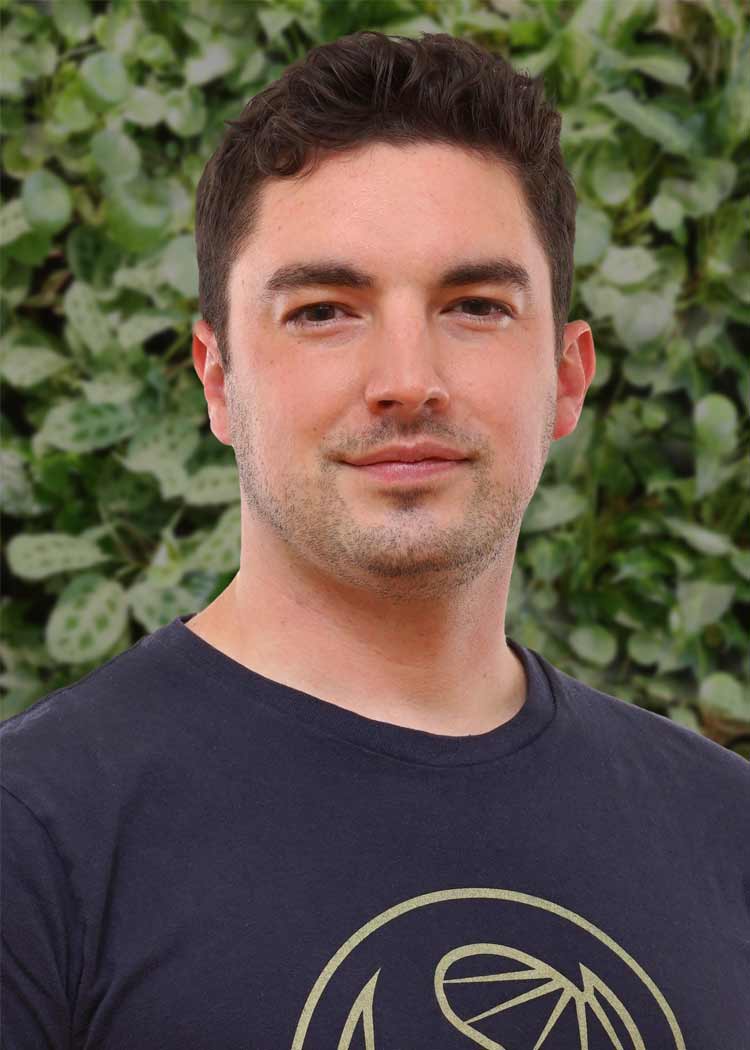
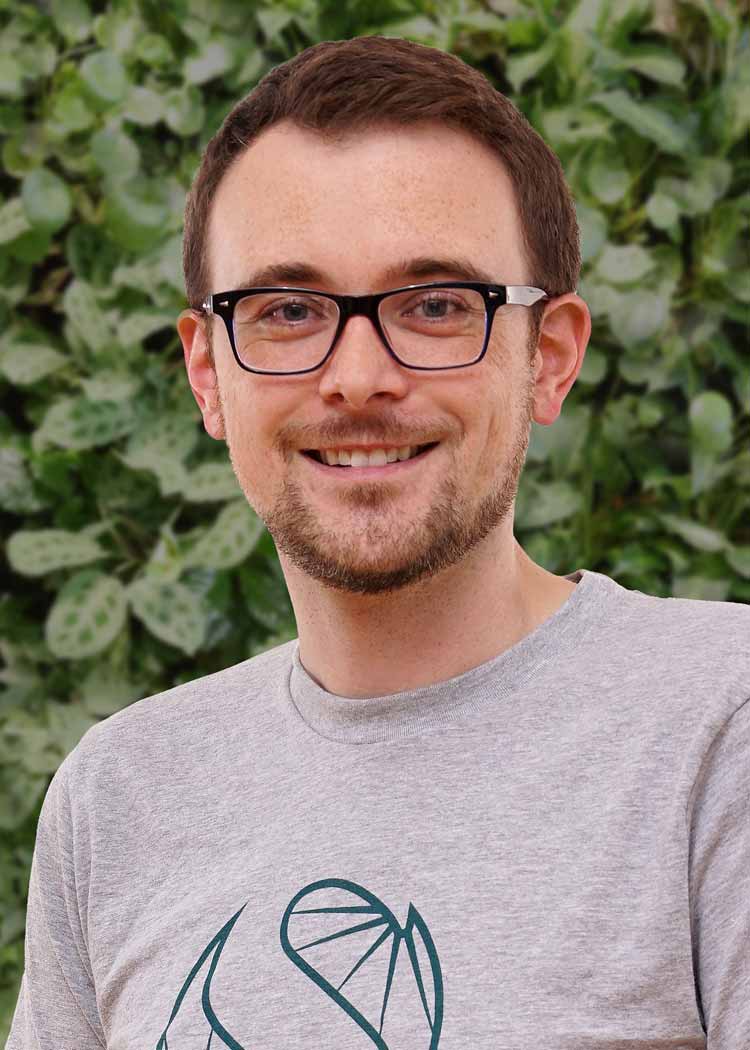
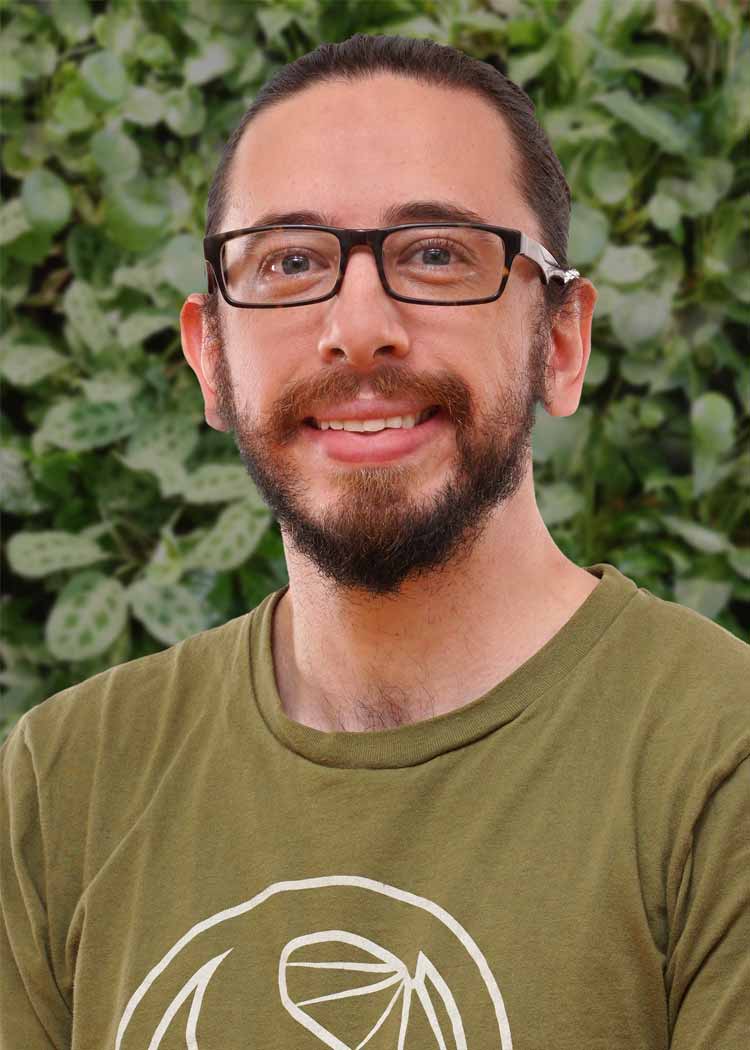
Paul, Mikey Planer, and Chris Clark

The boys (plus John) at the Allentown home show with their new "Aspect" light - 2016
Elizabeth graduated from TKA two years after Paul (in 2011) and headed off to study computer programming at Lafayette College in Easton (right on the Pennsylvania border with New Jersey, quite close to Bethlehem). It was officially a Presbyterian College. But I could see no acknowledgement of the fact in visiting the campus ... pretty much in keeping with today's collegiate attitude about Christianity and its role in society.
At the end of her freshman year (May 2012), she flew off to Florence to join Paul at the British Institute.
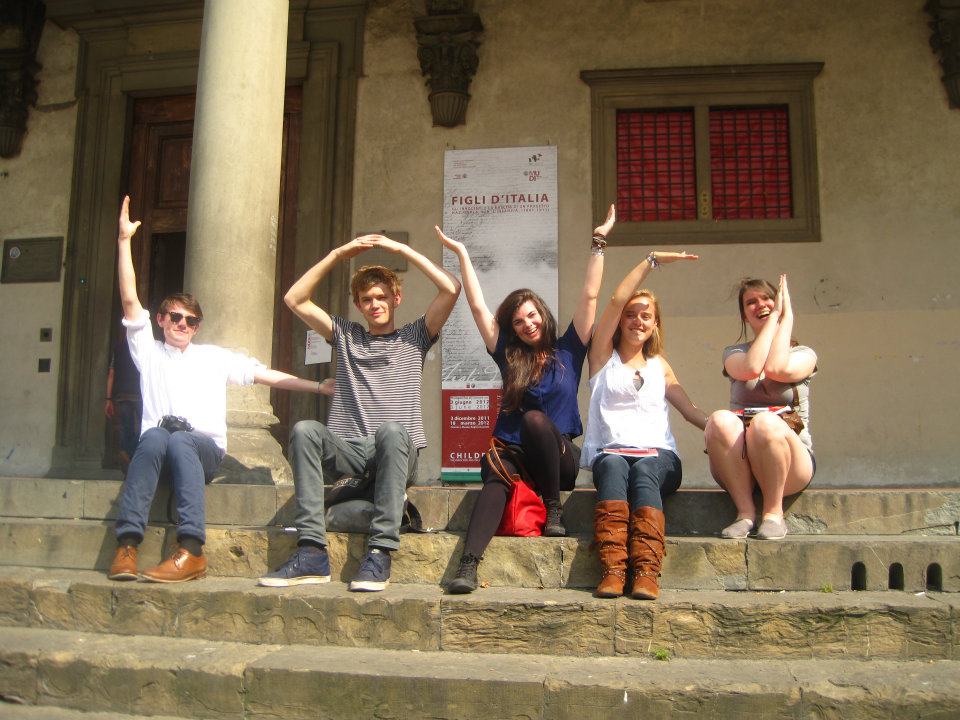
Then she and Paul did some traveling across Europe ... all the way to Ireland - to visit their mother Kathleen's Maher ( In Irish: Mheachair) family ancestral home at Cashel in County Tipperary!
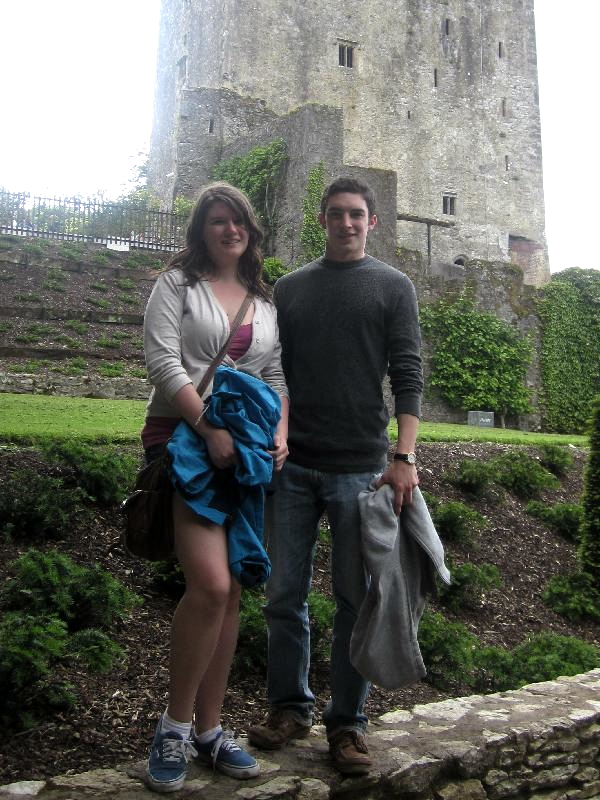
Upon their return to the States, they both headed off to their respective campuses to squeeze in some summer academic credit (Elizabeth actually working in their computer lab) before startup of the fall semester. Things continued along for her quite well that next or sophomore school year.
But at the beginning of the following or junior school year (2013-2014), when I got the new billing for Elizabeth's fall term, I was furious. They had jacked up tuition costs enormously.
I refused to play their game ... and brought a much-distressed Elizabeth home. What then to do? She worked at a friend's automobile dealership ... until at the beginning of 2014, when I shipped her off – back to Florence – to continue where she had left off (Italian language study) ... plus take on some additional art and sculpture courses. This put her in a much better mood ... because she came to love her situation there in Florence (and Florence came to love my very outgoing Elizabeth!).
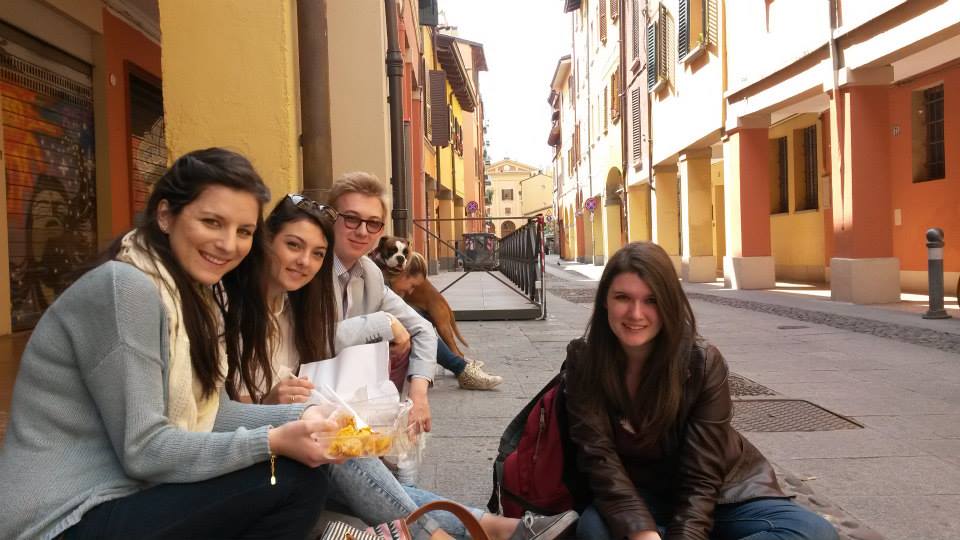
When Elizabeth returned to the States, I was a forgiven father, almost anyway ... for she then signed up to finish her college (computer) studies at the Indiana University of Pennsylvania (IUP) – all the way over on the other side of the state! So we would be seeing her now only on special occasions.
Approaching graduation (2015), she was quickly hired by PNC bank headquarters in Pittsburgh (also on the other side of the state!) as a computer tech ... making a very nice salary – and also making Pittsburgh her new home (it still is!).
One of the key factors in solidifying Pittsburgh as home was the relationship she eventually also took up with a community of artists ... after they discovered some of her artwork displayed in a Pittsburgh bar. This friendship, plus a growing art business of her own now, has really worked well for her.
But Elizabeth has a restless spirit ... and loves to travel widely. For instance, she rented a car and drove it around the entire shoreline of Iceland – by herself, and often outside the reaches of civilization (sleeping in the car when necessary). She also decided to try the thrill of parachuting from a plane. Likewise, she joined Paul in India (after visiting Thailand) in order to then fly off to Hong Kong to celebrate with John his 21st birthday.
But on a more normal basis, she would just simply hop into her car and – over an "extended weekend" – head across several states, just to see what was happening elsewhere. Thus it was in November of 2020 (with the rest of the country in lockdown mode thanks to the Coronavirus!) that she also decided to join Paul and a friend, Dave, in Montana ... not flying there but driving the whole way, via (of all things) New Mexico and Arizona! That's how Elizabeth goes at life!
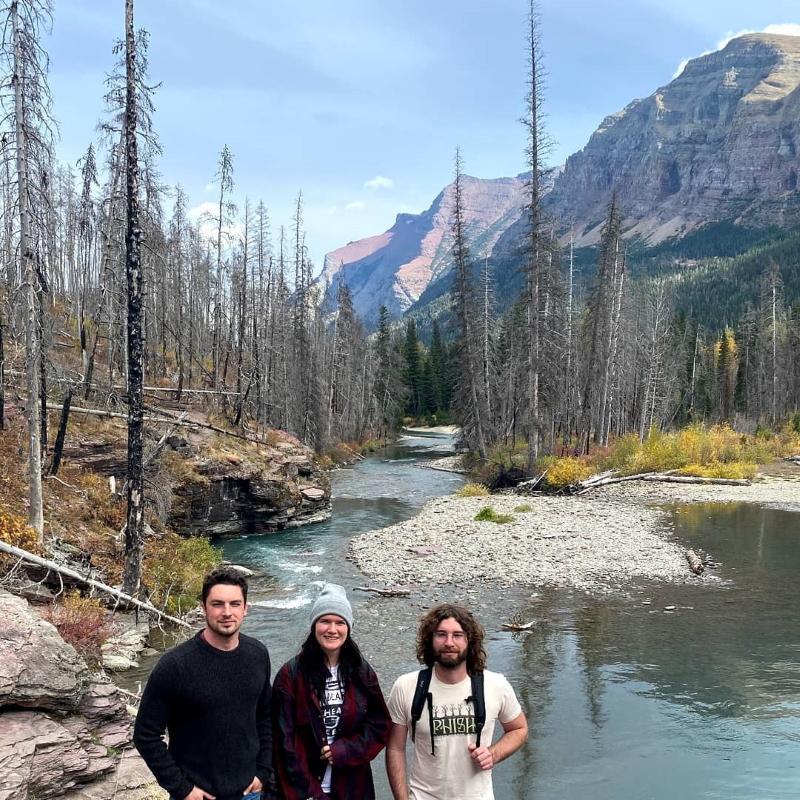
John, after graduating from TKA, headed out to Elizabeth's Indiana University of Pennsylvania ... but stayed there only one semester before transferring to Penn State University, Lehigh Campus (in Allentown, right next to Bethlehem) ... and found an apartment in Bethlehem, close to where Paul was living. In general he enjoyed the experience, especially the history and political science courses. But he found courses in his self-designed major (some form of communications technology program) to be boring ... as he already knew as much – if often not even more – about the subject than his professors.
Into that world stepped his Vietnamese friend, Phuong, a classmate of his at TKA (and his class's valedictorian) ... that he had taken to their senior prom. When the summer of 2017 (following his freshman year) came around, he joined her in Vietnam ... and the two of them traveled the country together from North to South (she was actually from Hanoi).
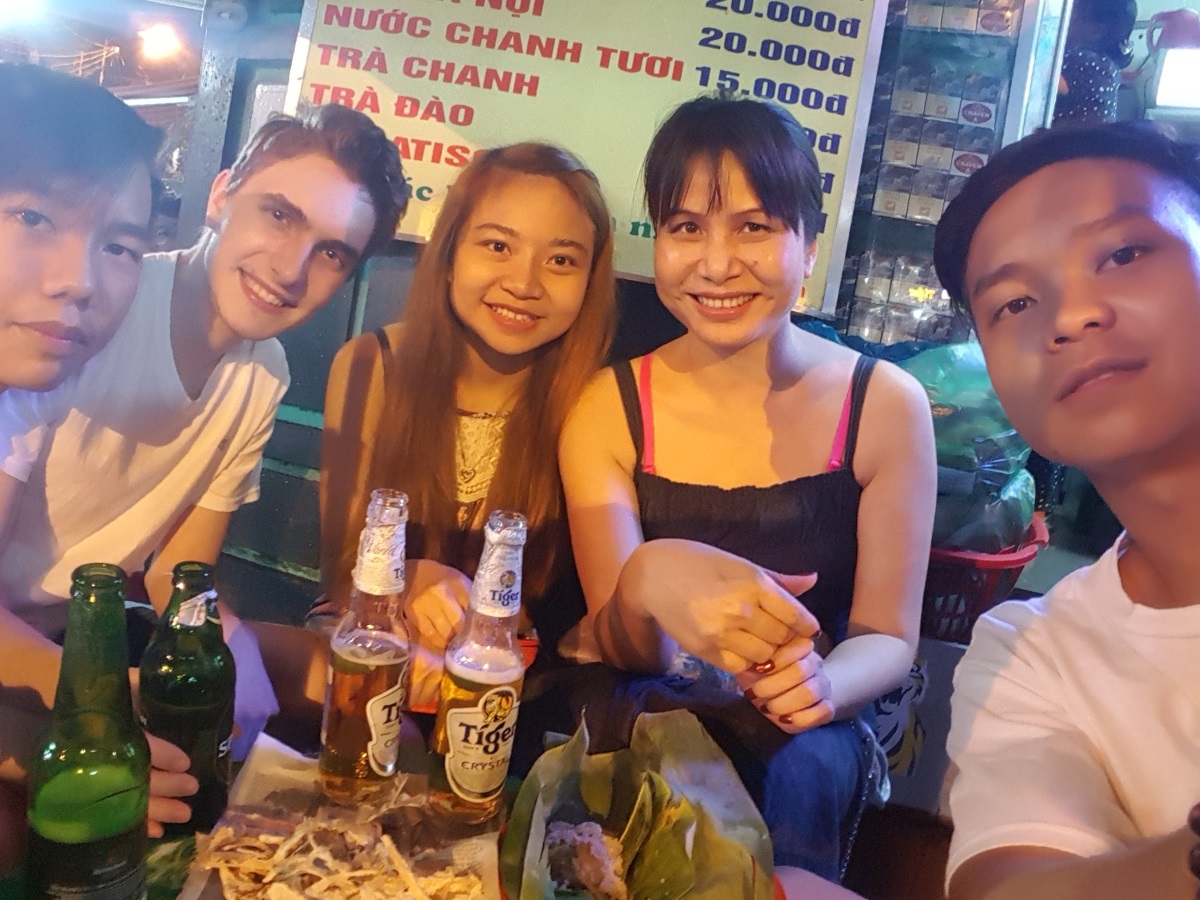
Then the next year John busied himself trying to decide whether it would be Russia or China where he would spend part of his junior year. In the end, China won out. And thus in the fall of 2018, off he went to Shanghai to study Chinese. He loved the experience.
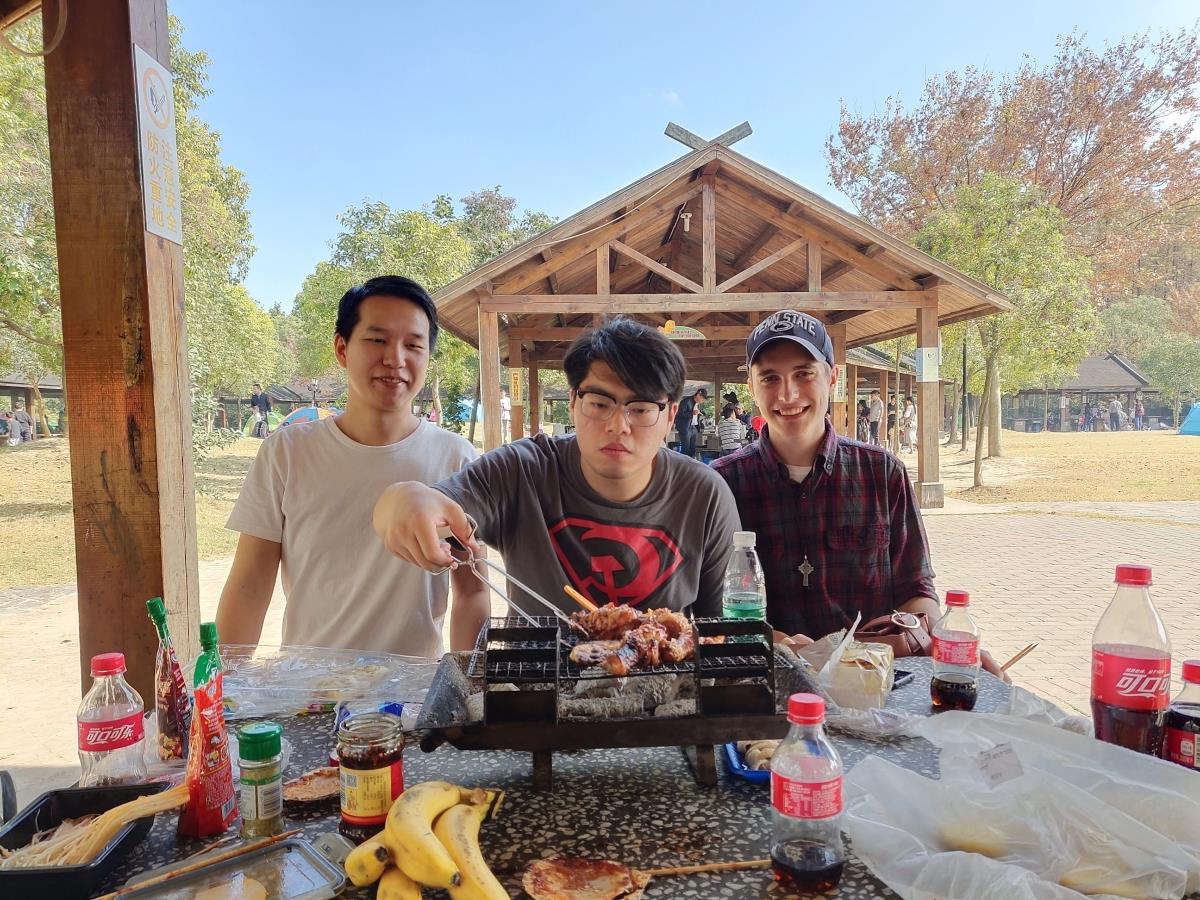
It was also a very sweet note that he celebrated in September his 21st birthday in Hong Kong, joined there by Paul and Elizabeth, and their friend Ben.
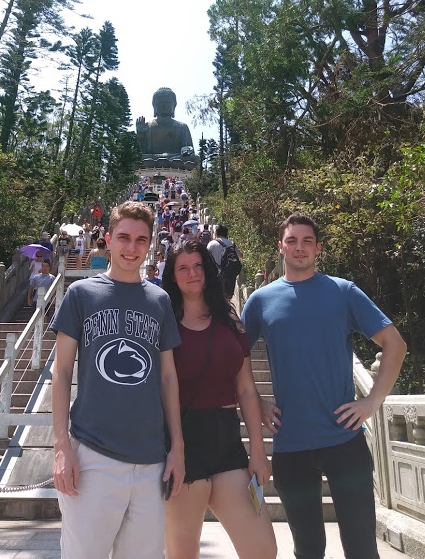
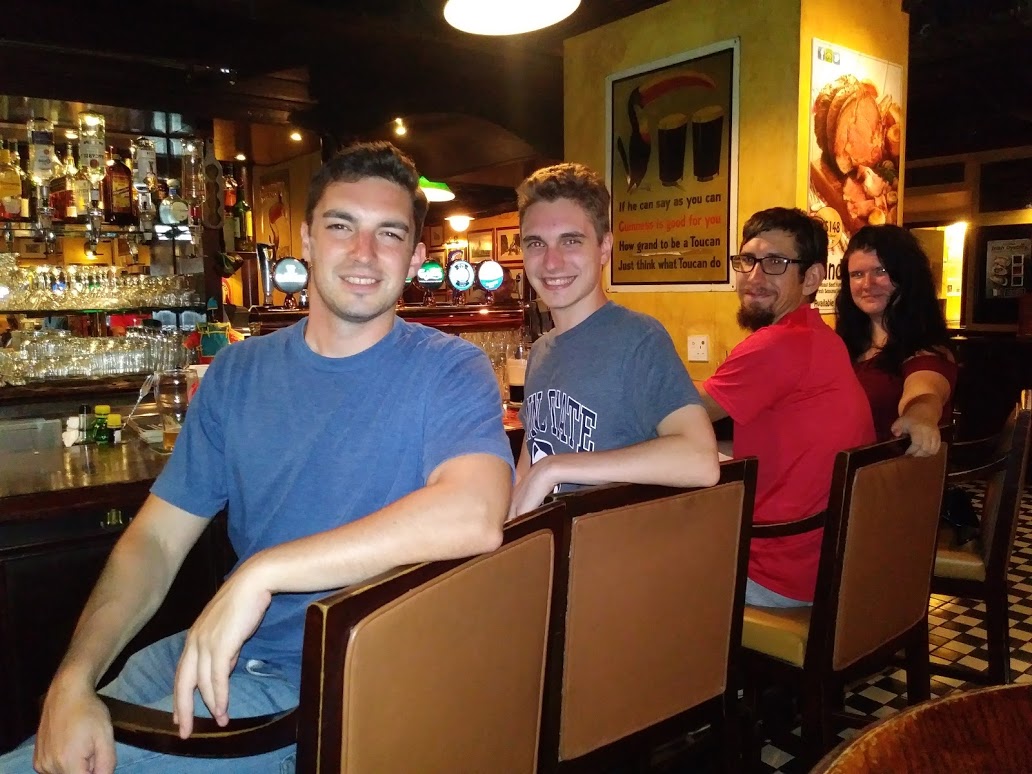
Meanwhile John's "friendship" with Phuong was deepening ... and it eventually became quite clear that the two of them had larger plans for a life together.
Phuong had been working on her six-year doctorate program in pharmacy at the University of Rhode Island and was progressing nicely. But the legal status of foreigners in America at this time was a bit shaky ... so the two of them simply decided to move ahead ... and do what Rachel and Rimi had done: get married. They both were quite young. But that seemed not to be an issue for either of them. So ... with our blessings (and Phuong's parents as well), they set the end of May 2019 as the time to get married, at Rimi's own Methodist church, by its senior pastor Fisher. And I would be invited to do a special blessing at the ceremony.
And so it happened! And the wedding was grand to behold. In fact, it was a huge affair, with fellow TKA students attending in large numbers, coming even from China to do so. And his friend Miles came down from Rhode Island, to serve as the DJ at a wonderful reception held on a local restaurant's huge patio.
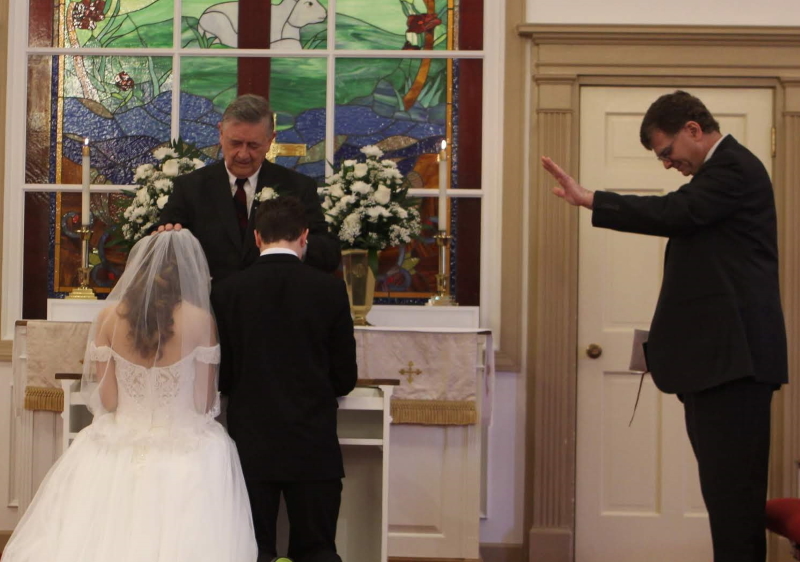
presiding pastor Fisher joining me in the blessing
Then John and Phuong headed off to Rhode Island, for her to continue her pharmacy studies and for both of them to start their new home together (actually in a teeny one-room apartment!). John would, meanwhile, continue his Penn State studies online from their home there in Providence ... a tricky and quite uneven process that seemed to drag out unnecessarily.
A huge change of directions for me. As I sat there looking at a teaching contract for the 2019-2020 school year, for the first time ever I found myself hesitating to sign it. I knew that something new was stirring in my heart.
I finally realized that what was holding me back was a very strong sense that it was now time to turn my attentions to writing up all the material I had developed over the years, in particular the American history portion ... in the hopes that it might help put some serious moral and spiritual vision back into the heart of American politics. Thus it was that early June of 2019 I had my last day as a TKA teacher – finishing out the school-year at graduation. I would now become a full-time writer or author.
I would miss my students greatly.
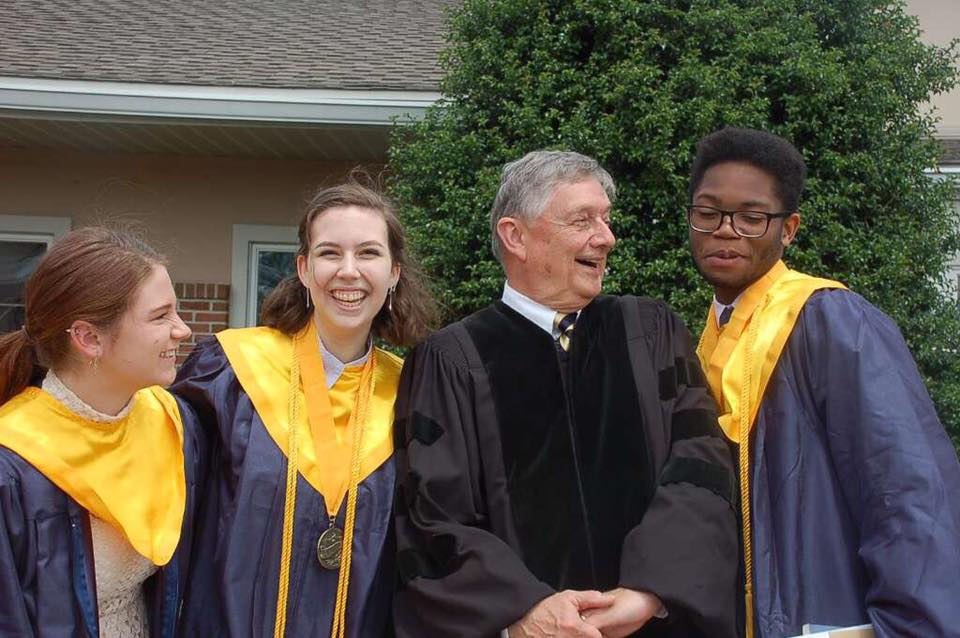
The three-volume American history. Ultimately this effort to put my work to writing fairly quickly resolved itself as a three-volume history of America ... in particular its moral-spiritual as well as social-political development. And thus also this website!
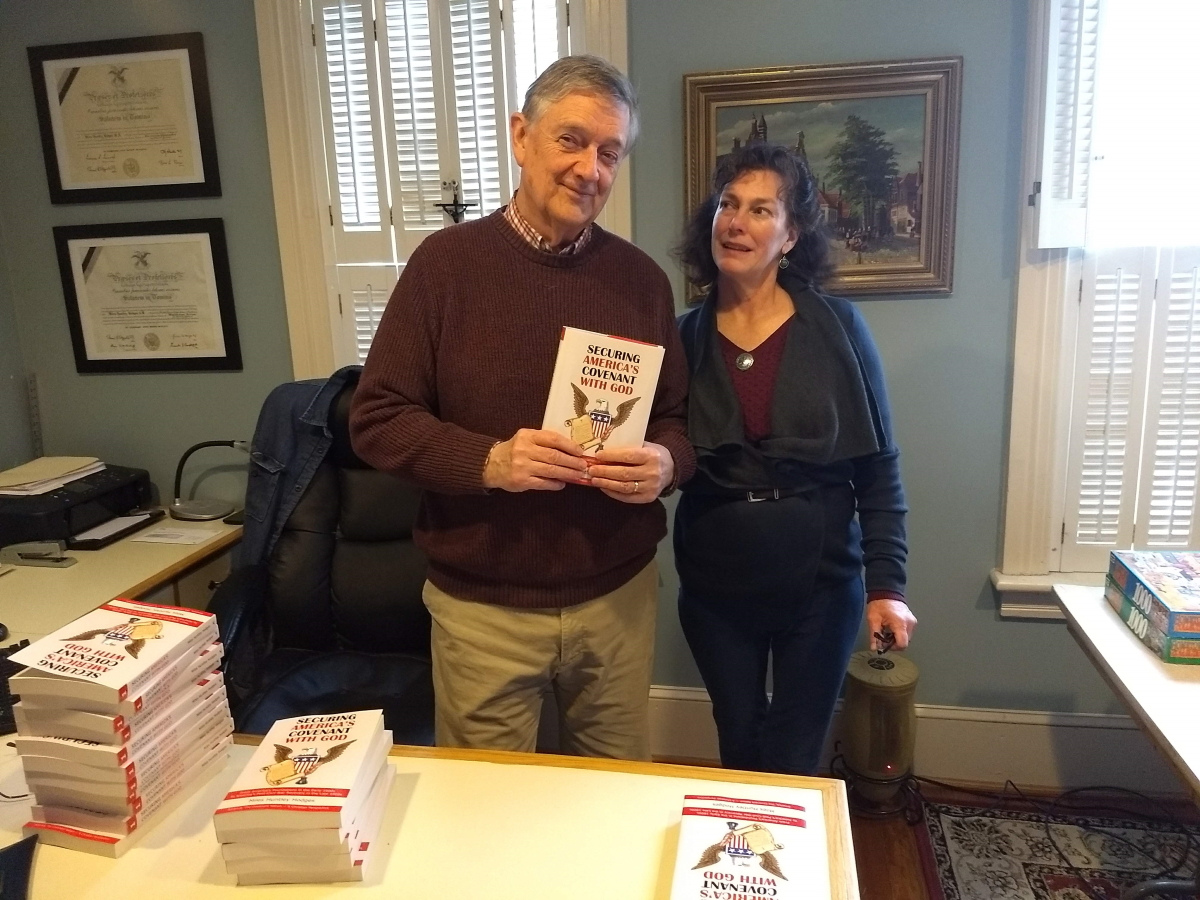
Then in the following year (2021) I decided to produce a single-volume abridged version (about half the number of pages as the 3-volume series) of the American history. At the same time, I took up the task of writing up my own autobiography ... sort of explaining myself and why I took the particular approach to my portrayal of this American nation that I love so much (and worry about so much!). And then I also decided to do a reshaping of the multi-volume series, from three to two volumes, making it fit more logically as text for a two-semester course ... and cheaper for the students. It also gave me the opportunity to finish out the Trump section and start up a section on Biden.
At this point I have no idea who (if any) will ultimately pick up these writings. But I have done what I believe it is that God called me to be and to do. And I leave the larger results of this work to him. Nonetheless, I realized that this still leaves me the responsibility to do some fair marketing of these works. This is a task that I know virtually nothing about. But I've been in just such situations many times before, so I guess I will soon get the marketing game figured out!
Rimi and Rachel's ministry. Meanwhile on a different front, Rimi finished out five years as an associate pastor at the nearby Methodist Church and was hired by the local Lighthouse Church as its new pastor in the fall of 2019 ... when the pastor there quit over a struggle with some of the old order as to who was actually leading the church. Half the congregation exited with the former pastor.
Rimi would have his hands full in dealing with such dynamics ... which obviously had not been resolved with either the departure of the former pastor or Rimi's arrival there. By a half-year into the dynamic, Rimi was coming under the same attacks as the previous pastor.
Finally, in late August of 2020, he made his own departure from the chaos. He and Rachel immediately started up a new Christian fellowship – which they identified as the New Awakening Church and Ministry. And the start-up was quite miraculous, because over half of the remaining congregation at the Lighthouse Church joined them in this new endeavor. People would gather of a Sunday morning at Rachel and Rimi's own home – at first outside on their lawn, and then when the autumn chill came on, in their house itself.
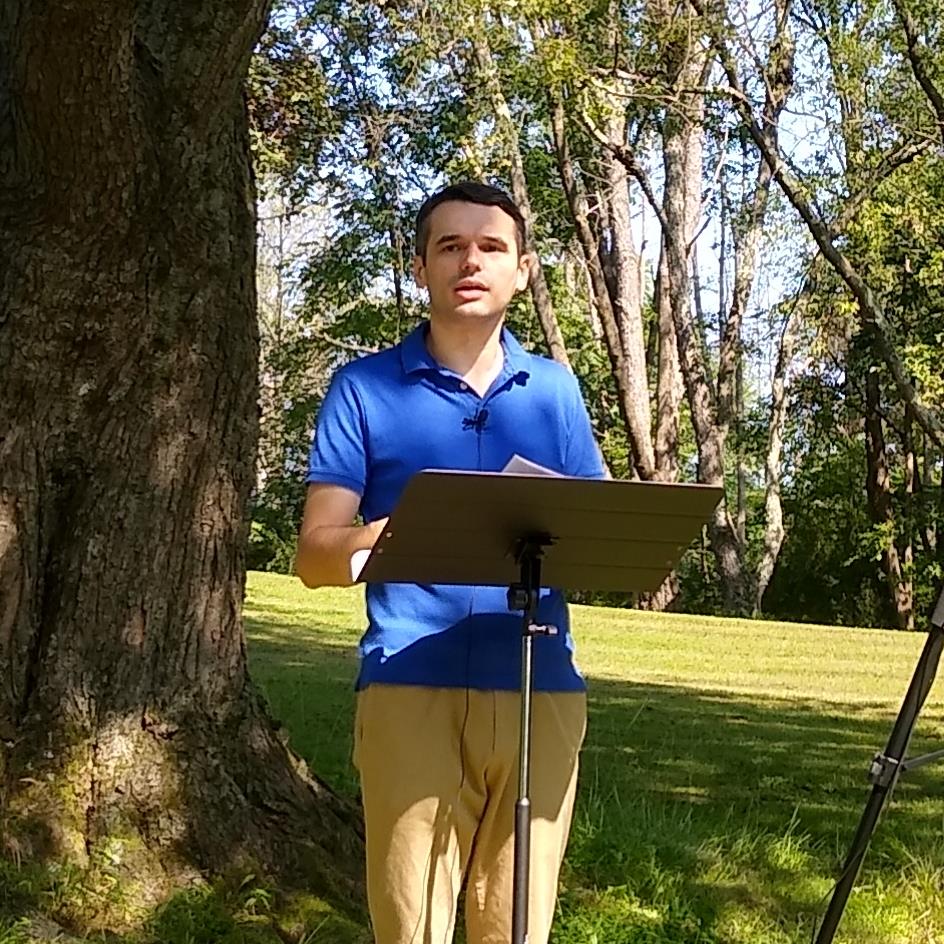
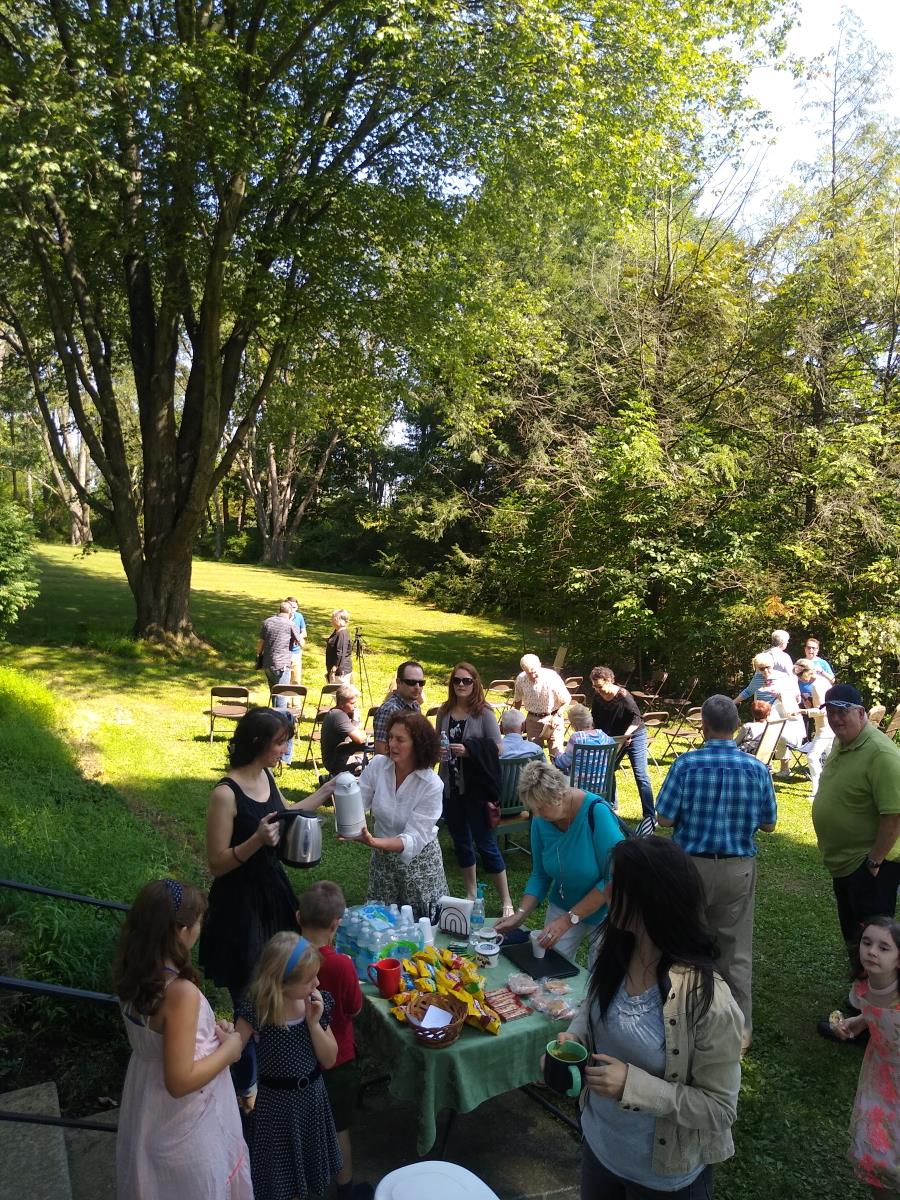
Finally in November they moved to a huge exercise room at a local fitness club – and have been building the congregation there and online quite admirably since then! God is so good!
www.facebook.com/newawakeningchurch/
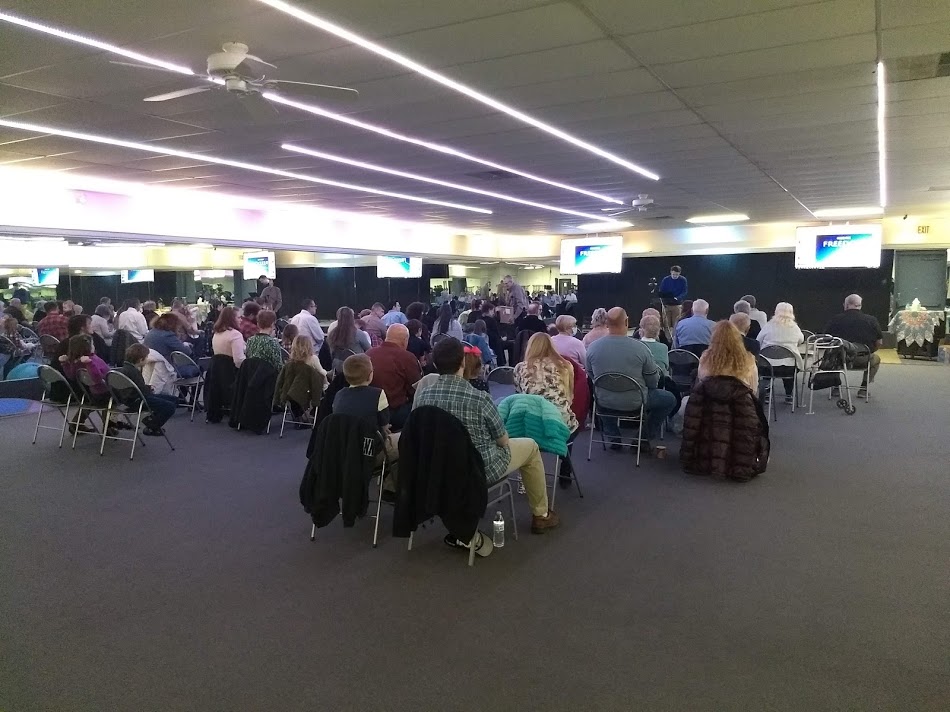
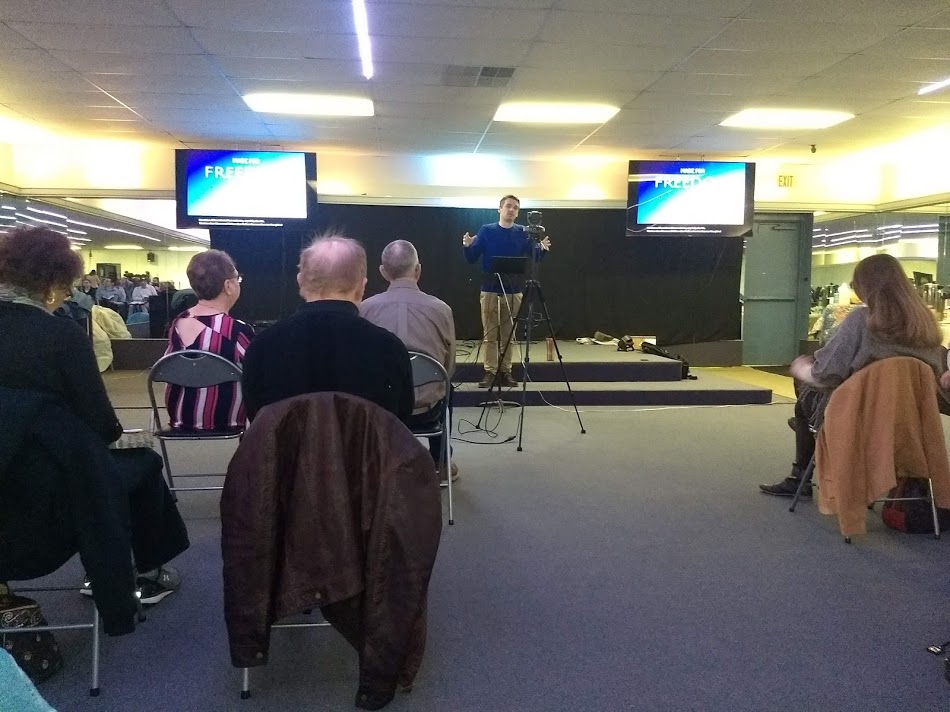
And also at this point, Rachel just finished her work on a Master's degree in literature at Oxford University (in England ... thus mostly by way of the internet!) an enterprise she loves dearly – right alongside her work as something of a business manager for the New Awakening Church ... and homeschooling their two children! What a workhorse! She was then encouraged by her teachers at Oxford to continue her studies right on into a Ph.D. program at Oxford. She thus applied, was accepted, and scheduled to begin her Ph.D. work in the autumn of 2023.

At the same time, Paul's business has really taken off ... becoming noticed widely across the country by way of various plant and interior-decoration programs on TV and online ... that have praised Soltech's products – and interviewed Paul quite frequently. As a consequence, they had to expand their staff considerably due to the vastly increased demand for their solar lighting products.
If interested, you can discover much more about this at soltech.com
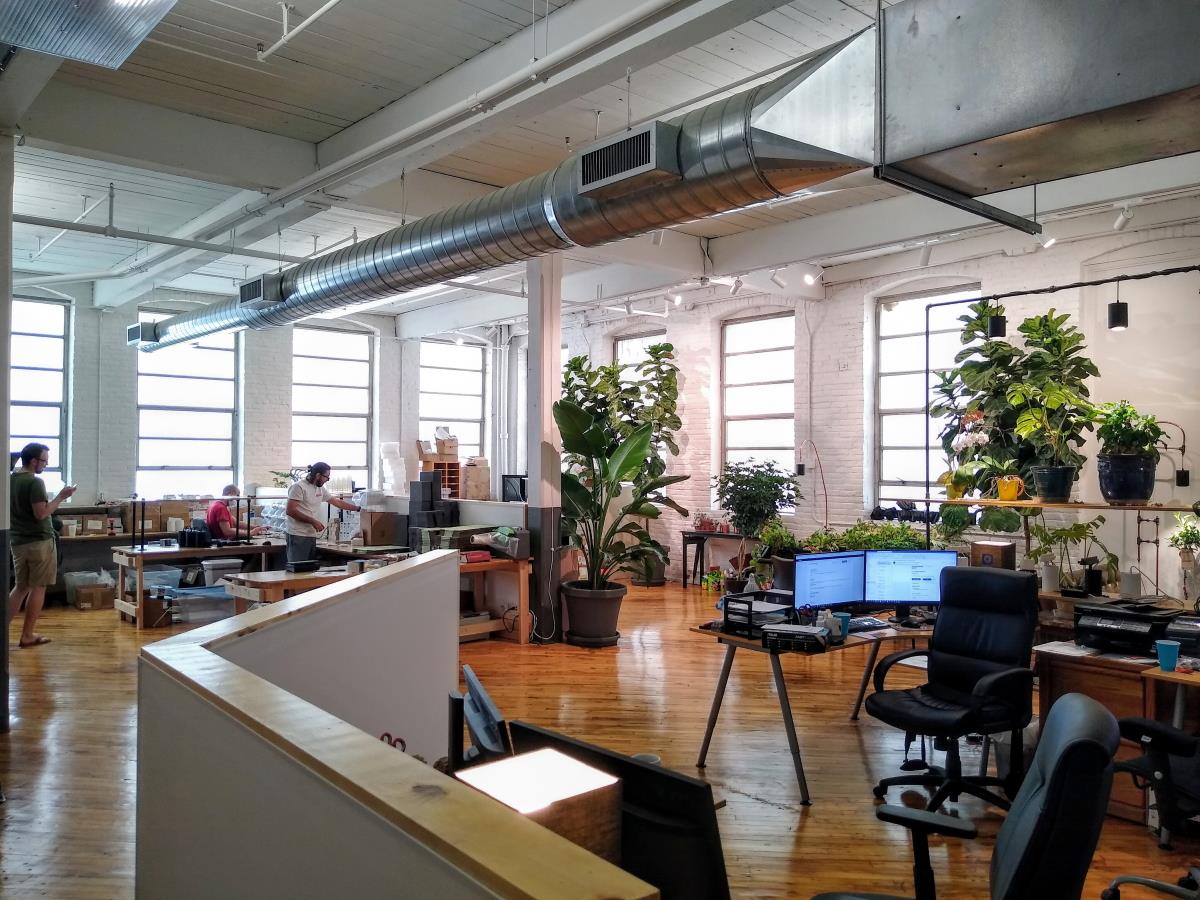

And wouldn't you know that on that most unusual automobile trip to Montana and back in November (2020) a very strange thing happened. As Elizabeth headed back across the Midwest, she decided to swing by Kansas City. There she stopped at a tiny out-of-the-way bar ... where she found herself in the glad company of two young men, President Eisenhower's grandson Merrill and his good friend Ryan. But ultimately it would be the fairly quiet Ryan that would command the dynamic, asking Elizabeth if he could show her around Kansas City.
And that was the startup of a relationship that has just recently resulted in the announcement of their engagement!
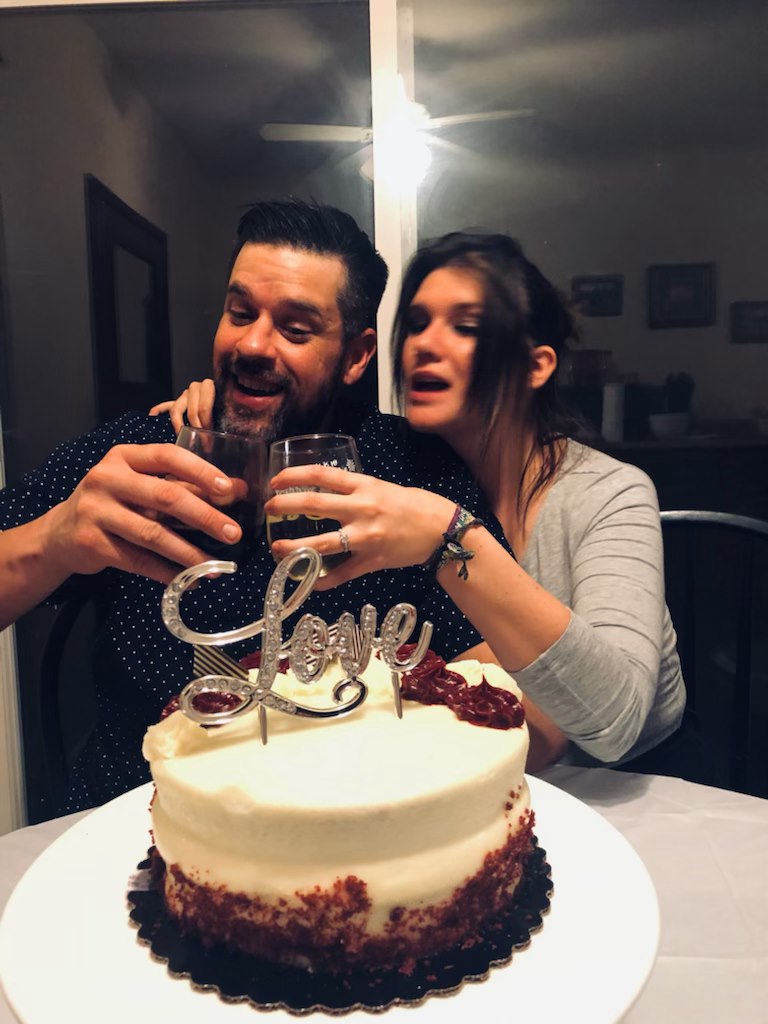
Right now Elizabeth has changed jobs, working totally online as a computer tech for a health insurance company based in Rhode Island, visiting extensively Kansas City with Ryan ... but with plans for the two of them soon to return to Pittsburgh. And there? That is yet to be determined!
Finishing up their studies. Meanwhile, Phuong started the internship part of her program, first in Providence for the remainder of the year 2020-2021, and then in Pennsylvania (the Allentown-Bethlehem area) in order for her to finish up in early 2022. And John was finally able to finish his degree program at Penn State in early 2022.
At the same time John became increasingly busy with a new startup online consultancy business operating also from Pennsylvania ... in the area of computer research and marketing, an activity which now occupies him full time (and more!).
Finally completing her internship in Pennsylvania, Phuong then took a position back in Providence ... while John remained behind to continue his consulting work – involved deeply at the time in website redesign with Paul's company (Soltech) in Bethlehem.
Tragically, Phuong decides to move on ... alone (2022). During those early months of 2022, Phuong distanced herself from John, even when moving to Pennsylvania for her internship there ... choosing to live alone at that time. And then in returning to Rhode Island to take up her new job at the beginning of the summer, she informed John that she was not interested in having a family with him ... and instead wanted a "no-fault" divorce.
John honored her request (or demand) ... finding himself having no other recourse except to "persist" in the face of yet another heart-crushing disappointment in life.
John develops his own research team. At the beginning of September of that year (2022), John arrived in the Philippines, where he would reside for the next three months – meeting with old friends and research colleagues that previously he had known only over the internet. Besides just getting to know these individuals on a more direct, face-to-face basis, he was looking to build up a team of researchers who would work with him in developing his internet research program. The trip proved to be a grand success.
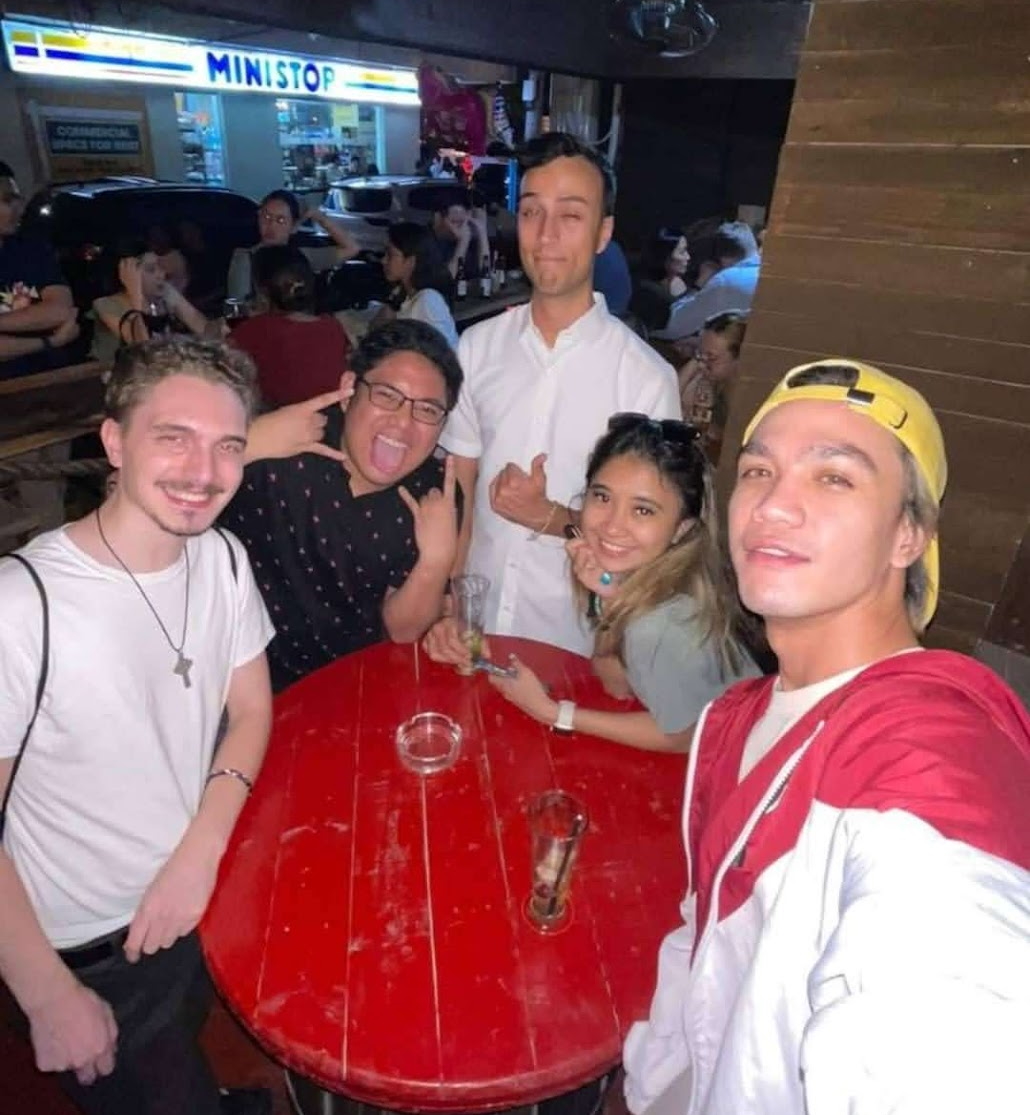
John, Kyle, Luther, NJ (Niña Jean), and AJ (Aaron John)
And now John is working with a number of such associates or consultants (located in other parts of the world as well) in the contract work he has recently taken on. And he loves it!
He too has now "moved on."
[And indeed, the story continues. John has proved himself to be an outstanding reorganizer of a company's marketing operations ... especially finding ways to go at the process more efficiently.
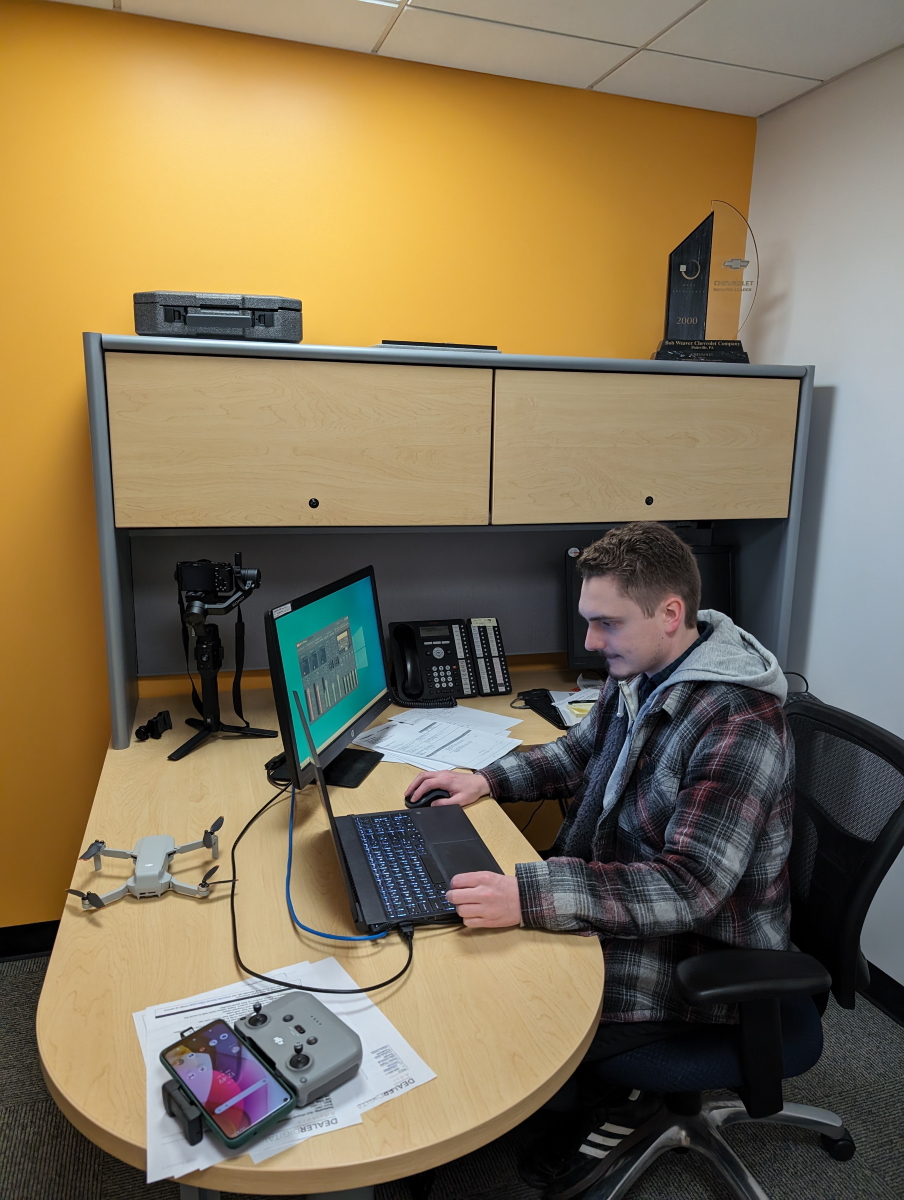
Here he is, in his office, just having returned from doing a shooting via drone of a new (electric) car model.]
Excerpts from The Spiritual Pilgrim
(excerpt from pages 36-38)
An event that occurred about this same time in my father's life [the mid-1960s] brought my father into this same "Realist" world. A reporter for the St. Louis Post Dispatch, St. Louis's leading newspaper and also owner of one of its main TV stations, asked my father if he would be willing to be interviewed about the pollution-abatement work my dad was doing. My father had been appointed several years earlier by the Illinois governor to serve on his new pollution control board as its technical expert, whose input was considered to be very valuable in finding practical ways that Illinois industries could take up strong anti-pollution measures – without bankrupting themselves in the process. Indeed, my father's work was becoming so well-known that he had been back and forth between St. Louis and Washington, consulting with congressmen about his work, and what could be learned of a practical nature from that work. It was, after all, the mid-1960s, and the issue of pollution control was just becoming a big political item.
So my father agreed to sit down with the reporter and discuss quite frankly the problems, the difficulties, the breakthroughs, etc. in trying to deal with the problem. He spent a full hour with the reporter in doing so. And overall, my father thought the interview went well, that the young man now understood the difficulties my father faced in taking on this challenge.
How shocked he was, however, when the interview was soon presented on TV, briefly (a minute or two in length only) in which the reporter had skillfully gone through the interview, cutting and snipping here and there, actually redoing his own questions posed to my father. And then he presented the whole thing as a discovery of a major "coverup," one in which he, this young crusading reporter, caught the evil Monsanto Chemical Company attempting to hide from the public.
My father, ever the engineer, lived in a very orderly world, one of logic and reason. He had no idea that people could be as devious as this young journalist in presenting a pure lie as the truth!
Anyway, he was so upset that he tendered his resignation to the Illinois Pollution Control Board. But the governor begged him to stay, and Monsanto reminded him that his work was invaluable, if the country was going to be able to make the transition, and still stay alive economically. So my father backed down, and continued his work on the Board. But his heart was deeply broken.
He told me this story on one of his visits to DC soon after this event. Ever the Realist, I told him that this was just how politics works. It's all about developing the right kinds of public perceptions that advance your career. That's all the journalist was interested in. He probably couldn't care less about the pollution issue, something however that absorbed my father, heart and soul.
The difficulties involved in trying to live above human deception. Unfortunately, there was nothing you could do about this kind of human behavior. It was/is/always will be part of our human world. All you could do personally was not to allow yourself to be thrown off course by such behavior. It's going to happen, especially if you are involved in something of deep public concern at the moment. You just have to keep going, and not get distracted by such evil.
I knew enough from my own study of history that being able to address public opinion, without being caught up in it at the same time, was what great American leaders of the past (such as Washington and Lincoln) had to do in order to succeed in doing truly great things politically and socially.
Sadly, however, my reading of history at that point did not seem to give me any understanding of why these "greats" were able to do this, of how a deep spiritual strength that these particular individuals commanded was based on a very intimate relationship with God, so that they could avoid being drawn into a dependence on public opinion itself. They reserved that sense of dependence on a very trustworthy God.
Unfortunately, it was only later, much later, that I came to discover the importance of this kind of a relationship with God as the source of enormous strength supporting awesome social leadership.
At the time, I was simply not finding this insight in the history books I was reading, or just found myself not able to understand or absorb the deep meaning of this dynamic when I might have run across it in my readings. Which of those it was that shaped my understanding, or lack thereof, of this component of truly great American leadership I'm not certain. Anyway, that key portion of my understanding of life's "realities" was just not there, not yet anyway.
In any case, living in DC, I myself got to see this self-promoting dynamic, one that had hurt my father so deeply, all around me – every day. It's what feeds DC social life. Nothing other than such politics is ever "produced" in DC. And if you intend to work and function in DC, you had better understand the rules of the game!
And so I got to actually counsel the one individual who had himself inspired me almost every step of my own journey! I learned (as I would someday even from my street guys as well as my students) that counsel is mutual in all significant human relationships! It goes both ways!
(excerpt from pages 100-103)
Frustration. In many ways my life showed a lot of progress since the low point of the divorce. I had found, in my return to the university, that I really was enjoying my work again. I had bought a very nice house in a pleasant downtown neighborhood and felt very comfortably resettled. A new circle of friends was widening rapidly. I was making more than enough money to enjoy the many activities that Mobile offered the community. And, of course, I was feeling once again in deep harmony with the cosmos!
But one area of my life remained highly problematic for reasons never quite clear to me: women! I had been dating Betsey now for a long time – but just couldn't get settled down into a one-on-one relationship with her. She was beautiful, intelligent, energetic, and enjoyed a wide range of interests quite like my own. But something held me back from a full commitment to her – and consequently I found myself over and over again starting up secondary relationships. I don't know what I wanted from a relationship – but these new relationships proved no more successful in providing a solution. As a consequence, I found myself increasing the juggling act by adding to the number of balls I was trying to keep up in the air. This was no way to resolve the issue.
By the summer of 1985, when I added yet another relationship to the program, I was trying to balance about five different relationships. I was out every night of the week, studying Spanish in the mornings, at the We Care Ministry in the afternoons – and growing exhausted in the process.
The "call" in the night. Then one typical sleepless night in July I was jolted awake by a vision or a dream – I'm not sure which. I saw myself holding a set of bagpipes – and as I looked closer, I saw that I was dressed in a black cleric's gown, European rather than American in style. And as I stepped back from the scene, I realized that I was standing on the steps before the doors of St. Giles Cathedral in Edinburgh, Scotland.
No words accompanied this vision – but I knew exactly what it meant. It took me absolutely no time to say "yes" to the vision. I then fell back into a deep sleep, the first I had enjoyed in a very long time.
In the morning I awoke, understanding fully what I had agreed to during the night. I was going to give my life fulltime to the service of God, an evangelist or teacher who would help people like myself come out of their isolation and find their way back into harmony with life, with the cosmos, with God.
Stepping back from my relationships. It was not long after this decision that a second decision came to me – again as something of a vision or "word" from God: cut out all dating for a month and give the whole woman "thing" a break. Anyway, the time was drawing near for me to go off to Central America and interview political figures who were to be invited to my Central American peace seminar which was scheduled for the following spring. I needed the break. And it was okay with my women friends – for they mostly had already given up on the idea that their relationship with me was going anywhere anyway.
Indeed, I found that as I stepped back, a true sense of friendship seemed to replace the unattainable expectations for a "relationship." I was surprised and pleased at this discovery. I also realized that what I had wanted all along was soul-to-soul intimacy with them, not mutual and exclusive "ownership."
The Central-American trip confirms the "call." In mid-August of 1985 I was off to Central America for a month, to visit five Central-American countries and to talk with various leading figures of those countries.
The first country I came to was war-torn El Salvador. My very first meeting was an informal one, with a young priest, José, who was assigned by the archbishop's office to serve as an interpreter during my stay in El Salvador. We immediately hit it off – and found that we had a wide range of issues to discuss, including our respective faith stories.
In the days ahead I interviewed party leaders, businessmen, newspaper editors, academics, clerics, etc. But I found that what I enjoyed most was my time with José. I met his mother and sisters (he was the last surviving male member of the family; one of his sisters was even a young widow) and heard the story of family tragedy brought on by the civil war. But I was also moved by the strength of their character, their continuing joy in the midst of such violence, their ability to carry on rather normally in the midst of such mayhem.
At one point I accompanied José in bringing the gospel message and communion to a small parish he had charge of in the mountains (a very dangerous place, by the way, as government troops and leftist guerrillas regularly swept back and forth through these remote areas, killing anyone looking suspicious to them). Here too I heard the same stories – and saw the vitality in the people's eyes and hearts despite the constant tragedy that accompanied life in their country.
In them I saw the countless generations of little people who have carried on life – despite the mighty plans of the "great leaders" to save these same little people. Indeed frequently, as I listened to these leaders, I kept wondering how close some of them really were to these people in whose name they carried on their great crusades (some individuals, however, I sensed really were very close to the common people). I got the distinct idea that their countrymen would be a lot better off if people like them would give up trying to "save" the others – and instead would let them work out their destinies themselves. Their "little people" seemed to possess enormous durability and fortitude of their own. What they needed was inspiration and a bit of guidance. They did not need to be dictated to!
Into my fourth week of interviewing (I was in Honduras at the time) I found that my mind kept coming back to José and his family in El Salvador. So I cut the program short and returned to El Salvador – just to check out my feelings (or instincts) further about these things. That final week in El Salvador confirmed all that I was beginning to understand. God really was with these people – and was somehow going to see them through this present crisis – almost despite the efforts of well-meaning individuals to save them.
Faith over politics. You can imagine what light this cast on my "peace seminar" concept. As I returned to the States, I found that my heart was no longer in this enterprise. I would have more gladly put on a program to bring some of these "little people" north to tell us Yanquis what they knew about the power of life, the enormous potency of their faith, their ability to find ingenious ways to survive, despite our well-intended efforts to save them all.
Ironically (or was it so ironic?) I returned to Mobile to the news that the university president's office was frightened at the prospect of so many major personalities descending on the campus at once. They were deeply concerned about the huge costs involved in assuring security for such a conference. So they made me scale the project way back. Thus, for example, even though former President Jimmy Carter was willing to participate for only a negligible fee, I had to uninvite him. However we had made the ($25,000!) commitment with Henry Kissinger and so we would honor that – turning the event into a Kissinger extravaganza (their idea, not mine!), and that alone.
Ordinarily I would have been crushed. But given what I had come to see and understand in Central America, I actually greeted the news with relief. It meant that I was going to have to uninvite a number of North American and Central American dignitaries – but I really didn't mind. Somewhere in El Salvador I had lost my desire for such a conference anyway. It all worked out for the best.
My last year at the university. I had made up my mind soon after my nighttime call that I was going to definitively cut my 14-year tie with the university upon my return with the fall term. This coming year would definitely be my last at the university.
But what a wonderful year that last year was. Perhaps it was because I knew I was going to be moving on to new things. But I was more relaxed, more alive than I can remember having been in a long time. I enjoyed my classes immensely. I felt so "connected" to everything – even as I was preparing to cut my ties.
The year went by quickly. Christmas came quickly and I headed off to the West Coast to join my parents and sister for Christmas, then to return to Mobile, via El Salvador, where I spent a week with José and his family and friends. Christmas also marked the beginning of the heavy Mardi Gras society balls – which I participated in, juggling things between Debbie, Kit, Mary, Marcia and, as always, Betsey. Nothing much had changed on that front!
(excerpt from pages 219-220)
There were, naturally, a number of courses already set out for me to teach in the "history" category, as well as a geography course. And naturally, there were textbooks ready to go to work with. But I soon found that the different courses and their textbooks just did not quite add up to the comprehensive view that interested me the most, and what it was that I wanted to get over to my students. I wanted to build in them a broad and deep Christian worldview, based on a wide investigation of the broader world out there that awaited them. And that world, to me, was both highly international, and deeply historical across the world's many cultures. In short, I wanted to teach them how as a Christian they were to appreciate and go at the larger world, in a rather sophisticated fashion.
Thanks to my website, some of the material I wanted to teach was already available, easy to download and then print out on the school's copy machine. And I intended to build up that material in the days (and years) ahead of me.
When I had things organized the way I wanted (actually by my second year there) I started them out with an historical survey of Western Civilization. Then I introduced them to the world's other cultures, past and present, reaching even all the way back to paleolithic and neolithic times. I also directed them in an in-depth study of America's own history. And then finally, in their senior year, I finished the series with a broad study of "social dynamics," that is, the social, economic and political dynamics in the life of any society.
And as a supplement to this "history" series, I developed a 4-year French language course of study (at least two years of foreign language study was required for graduation anyway), writing my own material for the first-year startup, and then quickly switching to some rather sophisticated French reading, including a full novel the senior year.
And I required a world map test, repeated each year (forcing them not to forget what they had learned), Western and American history ID tests (being able identify the century that a cited event took place, and, if occurring since the beginning of the 20th century, the exact decade that this occurred), and then an extensive written essay on a number of questions I required of them.
But each of these grading events was preceded by games and other exercises to get them ready. I would even review for them the essay questions, and what it was I was looking for in their responses. I tried to make things as easy as possible, because I knew that I was asking them to demonstrate a level of knowledge that would be more likely expected in a college course. But I refused to dumb things down just because these were high schoolers (I was teaching only high school after the first two years there). I rather preferred to bring them up to the high expectations that I knew full well awaited them as they moved on in life.
And I can say, the response was amazingly positive on the part of my students, for word soon got back to TKA about how all of this advantaged them greatly when they moved on to college. For instance, one young lady was so happy to be the only one in a college course that knew where Syria was, and proved herself when the teacher challenged her to go to a world map and actually point out the country. No big deal for her.
And my students used to laugh when fellow college students complained about having to write a college essay of some five to ten pages. They had been doing that all the way through their high school days. In fact I finally had to put a page limit on their essays, when some of them presented essay papers 20 to 25 pages in length. Having to grade 50 to 80 essays each quarter, I found myself totally consumed for over a full week in just grading these essays.
My own daughters and sons were of course in those classes. And, just as much as I wanted to give them the very best education possible before they headed onward in the world of learning, so too I was just as interested in seeing their classmates highly prepared in that same way.
And we all sensed that this was what this learning process that we were engaged together on was ultimately about. These students were not just young people I was paid to teach. These were my "offspring," both biologically and by academic adoption. We were family!
(excerpt from pages 240-242)
As the "baby of the family" John had the usual dynamics to deal with, although he handled these quite nicely.
Where he ran into trouble was at TKA, where for reasons we never were able to understand, the primary school teachers came to some kind of mutual agreement to make life as hard as possible for John.
[Footnote: One of them, his 5th grade teacher, came up to me on the last day of school (she herself was also finishing up at TKA), and totally surprised me by telling me tearfully that God had told her to apologize to John for the way she had treated him. That meant a lot to John!]
Part of the problem was that John is very intelligent, making schoolwork a largely boring experience for him. This got him in constant trouble with his teachers (just as was the case for me in the third and fourth grades!), who would punish him for his inattention by making him do remedial schoolwork during recess, rather than play with the other kids – about the worst thing you could think of doing to John. And our protests got things nowhere. Even Barbara, the school director, appealed to the teachers to let up. But that was just not going to happen. So John had to learn early-on just to take punishment quietly as part of his world. It left a rather deep impression on him.
Once John reached high school, he found the pace to be more to his liking. As far as French was concerned, I started up a new French series only every other year (teaching a full load of French, history and social studies forced me to be selective in how I structured the development of each of these fields), and I had only French 2 (and French 4) scheduled for the coming year. So rather than wait until the following year to start up the French series with French 1(which would have allowed him only three years of French study) he undertook to study French on his own during the summer before his freshman year, and thus was able to jump into French 2 that fall.
And that would be typical of how John would go at things. John would come to understand that his best teacher was himself! And that would extend through his college years.
Like Elizabeth, John did all the standard Hodges stuff – soccer, music (trumpet and piano), travel abroad with TKA, and a deep interest in everything from history to computers. But, like Elizabeth, computers would become his primary focus, though interestingly, the social-political aspect of the world of computerized communications.
Once again, in his senior year (2015-2016), he ran into trouble with a teacher – who was in charge of guiding and grading the writing of the student senior thesis and its public defense (public as far as the school itself went). He picked the subject of internet security, and all the problems that came with the growing world of internet communications. He even created a virus and showed how easily these kinds of things can get into the program. But his teacher accused John of stirring up hysteria, of "McCarthyism," and threatened to flunk him. Of course she knew not the first thing about the subject itself.
Nor was she very supportive of him at his oral defense, more grudging than happy at giving him a "pass," so he could then graduate. But John took matters like the moral soldier that he had over the years learned to become, never arguing back, but just quietly pushing forward.
Indeed at the graduation ceremony, when the 20-or-so graduates were asked to summarize thoughts they had about their TKA experience – and all the fellow students gushed on about how wonderful it had all been – when it came to John, he offered only a single word on the matter: "perseverance." All his classmates laughed. They knew exactly what he meant
This is a podcast hosted by my son-in-law, Pastor Rimi Xhemajli (pronounced Juh My Lee!), in which he leads me in a wide-ranging discussion about how exactly it is that I see our world taking shape. Enjoy!